|
Our brothers careers have been productive, constructive, spirited, and prosaic. They displayed impressive skills, talents, and abilities They were, and we continue to be, a beautiful and lively expression of our enduring fraternal beliefs, and that underlying harmony is far-reaching in expectation for all brothers’, undergraduate and graduate. It is the core of what our fraternal founders asserted in 1848 and 1874 and 1899: to live active, commendable, and responsible lives, and to build up community. Clearly and compellingly, they added, and continue to add, positive value at the local, state, national, global, and fraternal level because they engaged life fully and responsibly. In short, they were authoritative pillars throughout life. They were-are exemplary in their citizenship, character, and their sense of dutiful responsibility, and, in many instances, they were leading voices in their career fields. They prove that success of any kind does not occur by luck or accident, and we remember them because they continue to provide that message for our time. Their spirit permeates our brotherhood, and it always will. We have long been, from one generation to the next, proud to be Omega Mu Fijis. We continue to cherish our fraternal friendships, our shared memories, and our evolving, forward-focused history at the University of Maine. These things, above and beyond everything else, are the underlying rooted connections that make us proud to be Omega Mu Fijis. Why, after all, should we believe otherwise? We have always exhibited a can-do fraternal spirit since 1874. And, to be sure, all present and future generations of Omega Mu Fijis will continue to do the same, with fraternal enthusiasm and commitment. As a brotherhood, we always see the path behind us and the way forward with equal clarity, and our future remains bright at 79 College Avenue because we fearlessly move forward, always guided by sound fraternal principles, and because of that we are an exceptional brotherhood because we remain committed and hardworking to assure that our Omega Mu brotherhood will continue to be the jewel at the University of Maine. Perge. Omega Mu Portrait William A. Hill, 1908 Omega Mu Years Artist William A. Hill is a proud legacy in our Omega Mu brotherhood. Although he studied engineering at the University of Maine, he shaped a beautiful life as an impressionist painter who understood that life-long success, whether in engineering or art, is a labor of love, and he did so with persevering affection. As an artist, William A. Hill was greatly influenced by Lester Stevens, an exceptional impressionistic style painter from Rockport, Massachusetts. Like Stevens, William A. Hill was best-known as a landscape and seascape painter, creating quiet, motionless, even contemplative, scenes of towns, bridges, and churches. His pantings are filled with colour, the interplay of light and shadow, an enveloping atmospheric feel of seasons, and a melancholy, considered silence. The first painting below is reminiscent of Monet's sequential Grainstack painting series, and the first bridge has an ever-so subtle feel of Cezanne, while the last bridge distills some of the artistic spirit of Monet, as well as several Van Gogh brushstroke flashes. Although William A. Hill was not a free-spirited, radically innovative painter seeking his own expressive style, he did incorporate the very best ideas of Impressionism and Post-Impressionism. Taken altogether, in subject and artistic form, William A. Hill had an artistic taste for painting simple, beautiful paintings of New England, uncrowded by human emotion, that have enriched the lives of many people. Although he was not remotely famous as an artist, with his art being derivative of Cezanne and Monet, William A. Hill was a capable and confident artist. And, lastly, and most importantly, he lived a life meaning and purpose as an artist, and he did so with determined, expressive integrity, our enduring fraternal expression since 1874. And, even now, in the same degree, we continue to hold fast to that clear and distinct fraternal art of creating and sustaining life-long meaning and purpose in our Omega Mu brotherhood, ever and always. Our Omega Mu brotherhood continues to thrive. And, whatever else that there may be in a given life, our Omega Mu fraternal life, as undergraduate and graduate brothers, is a gift, a finely honed generational gift, still, 147 years on, and that is not an inconsequential thing in the span of life. That is our constant human principle, and there is no way to overstate its life-long human value. Reasonably and fraternally stated, that is the best art. Perge. Lester Stevens William A. Hill's Paintings “What if the space be long and wide, That parts us from our brother’s side A soul-joined chain unites our band, And memory links us hand in hand. (Phi Gamma Delta fraternity song) Fraternally,
Chip Chapman, ’82 Perge
0 Comments
Our brothers careers have been productive, constructive, spirited, and prosaic. They displayed impressive skills, talents, and abilities They were, and we continue to be, a beautiful and lively expression of our enduring fraternal beliefs, and that underlying harmony is far-reaching in expectation for all brothers’, undergraduate and graduate. It is the core of what our fraternal founders asserted in 1848 and 1874 and 1899: to live active, commendable, and responsible lives, and to build up community. Clearly and compellingly, they added, and continue to add, positive value at the local, state, national, global, and fraternal level because they engaged life fully and responsibly. In short, they were authoritative pillars throughout life. They were-are exemplary in their citizenship, character, and their sense of dutiful responsibility, and, in many instances, they were leading voices in their career fields. They prove that success of any kind does not occur by luck or accident, and we remember them because they continue to provide that message for our time. Their spirit permeates our brotherhood, and it always will. We have long been, from one generation to the next, proud to be Omega Mu Fijis. We continue to cherish our fraternal friendships, our shared memories, and our evolving, forward-focused history at the University of Maine. These things, above and beyond everything else, are the underlying rooted connections that make us proud to be Omega Mu Fijis. Why, after all, should we believe otherwise? We have always exhibited a can-do fraternal spirit since 1874. And, to be sure, all present and future generations of Omega Mu Fijis will continue to do the same, with fraternal enthusiasm and commitment. As a brotherhood, we always see the path behind us and the way forward with equal clarity, and our future remains bright at 79 College Avenue because we fearlessly move forward, always guided by sound fraternal principles, and because of that we are an exceptional brotherhood because we remain committed and hardworking to assure that our Omega Mu brotherhood will continue to be the jewel at the University of Maine. Perge. Omega Mu Portrait Allen Rogers, 1897 Sophomore Declamations Honorable Mention - Allen Rogers "Poem....Allen Rogers" "L'Avare,.....Allen Rogers" "Address to Under-Graduates, Allen Rogers." Senior Commencement Speakers. "Evolution of Chemistry, Allen Rogers" Teaching Career Allen Rogers taught chemistry at the University of Maine from 1897-1900 Allen Rogers earned his Ph.D in Chemistry at the University of Pennsylvania in 1902, and then he taught organic chemistry at Penn for two years. Allen Rogers taught chemistry at the Pratt Institute for the remainder of this career, and in 1920 he became Head of the Department of Industrial Chemistry. Chemistry building at Pratt Author World War I During World War I, Allen Rogers served as a major in the United States Chemical Warfare Service.
Allen Rogers was awarded the prestigious Grasselli Medal in 1920 “What if the space be long and wide, That parts us from our brother’s side A soul-joined chain unites our band, And memory links us hand in hand.” (Phi Gamma Delta fraternity song) Fraternally,
Chip Chapman, ’82 Perge Our brothers careers have been productive, constructive, spirited, and prosaic. They displayed impressive skills, talents, and abilities They were, and we continue to be, a beautiful and lively expression of our enduring fraternal beliefs, and that underlying harmony is far-reaching in expectation for all brothers’, undergraduate and graduate. It is the core of what our fraternal founders asserted in 1848 and 1874 and 1899: to live active, commendable, and responsible lives, and to build up community. Clearly and compellingly, they added, and continue to add, positive value at the local, state, national, global, and fraternal level because they engaged life fully and responsibly. In short, they were authoritative pillars throughout life. They were-are exemplary in their citizenship, character, and their sense of dutiful responsibility, and, in many instances, they were leading voices in their career fields. They prove that success of any kind does not occur by luck or accident, and we remember them because they continue to provide that message for our time. Their spirit permeates our brotherhood, and it always will. We have long been, from one generation to the next, proud to be Omega Mu Fijis. We continue to cherish our fraternal friendships, our shared memories, and our evolving, forward-focused history at the University of Maine. These things, above and beyond everything else, are the underlying rooted connections that make us proud to be Omega Mu Fijis. Why, after all, should we believe otherwise? We have always exhibited a can-do fraternal spirit since 1874. And, to be sure, all present and future generations of Omega Mu Fijis will continue to do the same, with fraternal enthusiasm and commitment. As a brotherhood, we always see the path behind us and the way forward with equal clarity, and our future remains bright at 79 College Avenue because we fearlessly move forward, always guided by sound fraternal principles. Perge. Omega Mu Portrait Ted Curtis, 1923 Ted Curtis was a legendary brother in our Omega Mu brotherhood, and with energy and determination he lived a good life. Ted was, in truth, a living journey-through-time history of our brotherhood, and he stood tall in his effectiveness, influence, relevance, and zestful love in his life-long service to the University of Maine, and in his gracious, sure-handed dedication to our Omega Mu brotherhood. The university and our brotherhood remained close to his heart for his entire life because he believed in serving something larger than himself, and he exhibited our fraternal ideals in everything that he did for both: hard work, integrity, honor, faithfulness, kindness, and responsible care as the Faculty Manager of Athletics for every University of Maine student athlete for thirty-six years, in coaching the perennially successful University of Maine ski team, and in providing behind-the-scenes counsel, guidance, and history lessons for the undergraduate brothers of Omega Mu through many decades. Year-after-year, his genuine professional sense of duty had a far-reaching effect for the good as an administrator working behalf of thousands of young men and women participating in intercollegiate athletics at the university, and being a valued, inspiring mentor to hundreds of Omega Mu undergraduate brothers from the 1930’s-1980’s. He gave them confidence and encouragement during periods of success or struggle, at all times. He made real, significant contributions in everything that he did because he was always perseverant and determined. Most importantly, he radiated pride and compassion for all things Omega Mu as an undergraduate and graduate brother: brothers, traditions, our history, the Castle. In addition, he was Omega Mu’s longest serving Purple Pilgrim, and his signature fraternal belief was a rugged hope and trust for a sustained fraternal presence at the University of Maine; that we would never fade away; that we would thrive for decades and decades to come. Ted Curtis was a man of many faces, and he ably juggled all the responsibilities because he was guided by a sustaining grace in his service to the University of Maine and our Omega Mu brotherhood. His dedication was complete, total. In short, he went over-and-above in his call of service, and in doing so he had a lasting impact on the life of the university and our Omega Mu brotherhood. And furthermore, with an equal degree of time, heart, energy, and commitment, he worked for the Y.M.C.A., and he served as a senator in the Maine legislature. In everything that he did, Ted Curtis embodied and championed, in fraternal strength, confidence, and purpose, the fraternal values that we still hold in high regard. After all, our fraternal heritage at the University of Maine, which is an unbroken chain since 1874, is unique because of the brothers like Ted Curtis. It is with a constancy and firmness of Omega Mu spirit that we continue to believe, in our historic totality, that responsible, tradition-grounded, fraternal life does shape determined, great leaders in many fields, and Ted Curtis was one of those Omega Mu brothers. Ted Curtis will always have our deepest fraternal respect and admiration. Omega Mu Years Ted Curtis is the first brother on the front row, left, in both photos. Ted, in the library of the house, second from the left on the second row. University of Maine Faculty Manager Ted was the Faculty Manager for the University of Maine from 1930-1966. TED CURTIS, A LEGEND, IN UNIVERSITY OF MAINE ATHLETICS University of Maine Baseball Coach University of Maine Basketball Coach Legendary University of Maine Skiing Coach Ted, wearing the nice hat, was the coach of the University of Maine ski team for 36 years. The University of Maine ski jump was on the other side of the Stillwater River, directly across from campus. Ted Curtis Trophy University of Maine Ski Team Olympians Bringing The NCAA Skiing Championship To Sugarloaf University of Maine Tennis Coach University of Maine Cross Country and Track Coach University of Maine Sports Hall of Fame Memorial Gymnasium University of Maine Ted Curtis played an integral role in designing the Memorial Gym. Christmas Tradition For Needy Children In the Castle During the 1930's. Ted started the Omega Mu tradition of holding a nice Christmas Party for the needy children of Orono and Old Town. Chaperone at Omega Mu Black Bear Award For his faithful service to the University of Maine, Ted Curtis received the Black Bear Award in 1956. Senator in the Maine Legislature University of Maine Honoring Ted Curtis Pig Dinner Ted kissing the proboscis, above and below. Ted Curtis at Pig Dinner Ted Curtis, far left. Omega Mu Chapter of Phi Gamma Delta Fraternity “What if the space be long and wide, That parts us from our brother’s side A soul-joined chain unites our band, And memory links us hand in hand.” (Phi Gamma Delta fraternity song) Fraternally,
Chip Chapman, ’82 Perge! Our Omega Mu veteran-brothers who served in the military are cherished and constant fraternal friends, and we would like to say thank you for the steadfast, purposeful commitment you made to our nation to defend those four freedoms we all believe in: “Freedom of speech, freedom of worship, freedom from want, and freedom from fear.” For those brothers who were killed in defense of these freedoms, they will always occupy a consecrated place in our linked fraternal heart because they exemplify the idea of superlative commitment, strength, and fortitude for the good to the end itself. The greatness of their collective purpose and will, on our nation’s behalf, will never be forgotten. By their “clear-eyed faith and fearless heart,” these brothers have left us a fraternal legacy that echoes what we often say about Omega Mu Fijis: “Perseverance and determination are omnipotent.” Their code of integrity, courage, duty, responsibility, and self-sacrifice on behalf of our nation is a powerful legacy that we will always be proud of as Omega Mu Fijis. Whether it was at Red River, Marianna, San Juan Hill, Santiago de Cuba, Sulu Archipelago, Chateau-Thierry, Verdun, El Guettar, Elba, Monte Della Vedetta, the Battle of the Bulge, Rabaul, Inchon, Pusan, Chosin Reservoir, Pork Chop Hill, Hue, Easter Offensive, Phu Cat, The Iron Triangle, Hamburger Hill, la Drang Valley, Bien Hoa, Khe Sanh, Beirut, Libya, Rumaila, Al-Batin, Medina Ridge, Kabul, Kandahar, our Omega Mu brothers have demonstrated devotion to duty in defense of freedom and liberty. They are the stability of our nation, and we, the Omega Mu brotherhood, revere, honor, and salute their persevering and determined spirit within our great nation and our historic brotherhood. We will always be grateful for the military service of every Omega Mu veteran from the Civil War to the present. We thank you. Civil War Nelson H. Martin Spanish - American War Charles S. Bartlett Edmund Clark Mark L. Hersey George W. Hutchinson Charles C. Scott Boxer Rebellion Mark L. Hersey Philippine-American War John N. Merrill Mark L. Hersey Mexico Mark L. Hersey World War I Era Clarence J. Abbott Earle B. Adams William. R. Ballou Willett C. Barrett Melvin S. Blethen Ira M. Bradbury Lester M. Bragg Everett. H. Brasier Clifford Brown Ralph L. Brown Clarence P. Bryant Stephen S. Bunker Alfred S. Burns Leon P. Carle Charles V. Catell Lewis J. Catheron George. H. Cheney Ernest L. Coolbroth Allen B. Cooper Herbert B. Cousins Ernest V. Cram George P. Creighton Hugo S. Cross Nathan C. Cummings Laurence E. Curran Arthur J. Dalot James H. Davidson Manley W. Davis Marathon Doak Albert W. Drew Robert B. Dunning Omar K. Edes Glenn E. Edgerly Ralph W. Fannon Frank F. Farwell, Jr. Donald T. Flint Ralph J. Flint Heywood S. French Philip Garland Clifford P. Gould Albert L. Gray Edward C. Hall Preston M. Hall George H. Hamlin, Jr. Arthur A. Hammond Ernest F. Hanson Bartle T. Harvey Lee I. Harvey Leroy H. Harvey Theodore W. Haskell Lloyd G. Hay Samuel L. Hitchings Mark L. Hersey Edward M. Hodgkins Bryant L. Hopkins Lawrence M. Hunt Harry L. Jackson Arthur F. Kaulfuss Charles W. Kalloch Ballard. F. Keith William H. Knowlton Edwin L. Ladd Ernest Lisherness Preston H. Martin Willis G. Martin Warren McDonald Clyde H. Merrill John N. Merrill George E. Mincher Milliard G. Moore James L. Morse Thomas A. Murray Evans B. Norcross Fernando T. Norcross Earle. S. Peckham Benjamin C. Perry, Jr. Charles L. Phillips Stanley G. Phillips Niles C. Pinkham Norman D. Plummer Morrill S. Pope Edmund H. Rich Allen Rogers Sherman Rossiter Alfred M. Russell John. I. B. Sawyer Anthony P. Schneider, Jr. Walter E. Scott Albert L. Shaw Victor H. Shields Paul F. Slocum Leon W. Smiley Charles F. Smith Everett L. Smith Raymond J. Smith Roy F. Stevens Stanley A. Stevens Charles E. Stickney George F. Sweet Loring M. Tapley Philip W. Thomas Carl J. Thompson Robert F. Thurrell Lewis B. Tolman Horace H. Towle Charles J. Vickery John P. Waite Sumner Waite Perley F. Walker Raymond C. Wass Ralph W. Wetherbee World War II Era Charles D. Allen John R. Anderson Ernest F. Andrews Donald M. Ashton Eugene L. Bailey Guy R. Bailey Irving S. Bailey Thomas M. Baisley, Jr. Clarence A Barrett Bruce S. Billings Nathaniel A. Billings Joseph S. Boulos H. Louis Boyle, Jr. Donald T. Brackett Kent F. Bradbury Merrill R. Bradford William V. Bratton John W. Brookings David A. Brown Arnold B. Brownell Edward C. Bryant Andrew R. Bunker Dana E. Bunker Harry Butler Philip Cabot Neil M. Calderwood Charles W. Camack John D. Carlisle Norman D. Carlisle Robert Carlisle William T. Cavanaugh Joseph J. Cervone Richard Y. Chadwick Joseph B. Chaplin, Jr. Leon A. Cheney Arnold H. Clark Donald S. Clark, Jr. John T. Clark Sumner S. Clark John C. Clement, Jr. Fred M. Cogswell, Jr. George B. Cotton George P. Creighton Nathan C. Cummings Philip E. Cummings Louis E. Curtis Cecil J. Cutts Robert A. Dalrymple, Jr. Frank W. Danforth, Jr. Lawrence C. Day William H. Demant Franklin D. Dexter George T. Digby James F. Donovan Harold R. Dow James F. Dow Hamilton H. Dyer, Jr. Omar K. Eades Arthur F. Eastman Henry B. Eaton, II Robert H. Eddy Vaughn B. Everett Harry P. Files John R. Finch John M. Forrester, Jr. Charles K. Foster, Jr. Calvin Friar Horace P. Frost Howard R. Frost Stanley T. Fuger Charles E. Furbish Herbert F. Gent, Jr. Albert F. Gerry Charles B. Gilman, Jr. Sidney G. Gilman Charles L. Glover Sherwood F. Gordon George R. Grange Laurie J. Greenleaf Stewart W. Grimmer William K. Hadlock Frank W. Hagan, Jr. Martin Hagopian Preston M. Hall Harold I. Hamm Edwin C. Hanscom Robert H. Hanson Donald C. Harper Robert N. Haskell James E. Hastings Fletcher A. Hatch, Jr. Gordon R. Heath Leon F. Higgins, II George P. Hitchings Malcolm P. Holden John L. Holter Sheldon K. Howard Francis E. Howe Louis W. Howe, Jr. Hugh W. Hunter John A. Hussey Robert S. Hussey Alfred Hutchinson Robert M. Irvine William L. Irvine James M. Jackson George H. Jewett, Jr. Frederick J. Johnston Franklyn L. Jones Charles W. Kalloch William P. Keenan George F. Kehoe Alfred J. Keith Bruce W. King Bernard A. LaBarge Leroy A. Ladner Albert M. Larsen, Jr. Robert A. Larson Richard G. Lawson Alfred J. Lee Kenneth S. Luden Lawrence W. Lyford George H. Mader Alfred P. Mallet Donald F. McCusker Donald L. Mooers Robert M. Moore Richard P. Morrison Joseph M. Murray William S. Murray Malcom G. Nichols Clifton S. Nickerson Osgood A. Nickerson Robert W. Nutter Joseph R. O’Neil, Jr. Burt S. Osgood, Jr. David D. Page Charles L. Pfeiffer John L. Porter Ernest S. Ridlon Clayton M. Robertson Arthur L. Rourke Robert S. Shean John R. Sheedy Frederick J. Shepard, III George C. Shepard Robert L. Simons K. Rogers Simmons Walter E. Smart Richard M. Smith Garrett D. Speirs, Jr. Howard J. Stagg, III Charles E. Stickney John J. Suslavich Oscar M. Taylor Philip H. Taylor Arthur L. Teall Roger F. Thurell Edmund B. Titcomb Harry T. Treworgy John D. Utterback. Jr. Lewis B. Varney Sumner Waite George B. Walker James F. Ward David W. Warren, Jr. Robert P. Webber Linwood A. Wessell Clifford H. West, Jr. Danforth E. West John G. Whalen Frank R. Williams Douglas J. Williamson Linwood G. Willins Cuthbert B. Wilson Winslow A. Work Korean War Donald L. Addition Merrill D. Bartlett George P. Creighton John D. Hawley William B. Hill William P. Keenan Carlton M. Lowery William A. Oliver Charles C. Otterstedt, Jr. Cuthbert B. Wilson Vietnam War Era John J. Atwood Ralph Bonna Darrell H. Brooks Stephen R. Carlisle John Q. Carr Terry L. Chadbourne Joseph T. Cuccaro Robert A. Duetsch Christopher C. Eaton Stuart W. Gerald Emerson L. Gorham, Jr. Robert E. Harrison Stephen J. Hayward Robert E. Hess John L. Hone Charles E. Huff James D. Jenkins Francis S. Keenan John H. Kimball Joseph A. Lacasse John M. MacBrayne III Robert L. Maxwell Michael J. McInnis Frank A. Moran Philip B. Norton Raymond W. O’Keefe Charles C. Otterstedt, Jr. Gary Priest George T. Ranks John J. Rhodes, Jr. Wayne A. Robbins Allen Rogers John M. Rohman Lawrence T. Ronco Paul Roy David T. Smith Kenneth P. Stetson, Jr. Winfred A. Stevens Paul L. Stimpson Aloysius Sypniewski John H. Thomas Grant P. Watkins Peter H. Werner James A. Wolfe Maynard R. Young, III Post Vietnam War Era John H. Akoury Kenneth C. Bartlett Ricky M. Bean Dana A. Beers Thomas Beutler Rick Blaisdell Jeffrey R. Brinch Matthew W. Caldwell Michael A. Caruso Jay L. Clement T. Christian Cole Dean A. Collins Michael E. Concannon Stephen R. Coupe Steven M. Dunwoody Mark E. Gebauer Michael R. Girardin James E. Hill Jeffrey D. Hutchinson John J. Jansen, Jr. James M. Joyce, III Joseph Leporati William R. McLean Daniel E. Peters Thomas L. Richardson James (Jim) Simmons Jeffrey L. Smith Michael E. Soule Michael G. Splane Stephen D. Sumner Dana H. Wells Our Fallen Omega Mu Brothers Spanish American War Charles C. Scott World War One Willett C. Barrett Ira M. Bradbury William H. Knowlton Anthony P. Schneider, Jr. World War Two Joseph S. Boulos Frederick M. Cogswell, Jr. James F. Dow Hamilton H. Dyer Laurie J. Greenleaf Stewart W. Grimmer George F. Kehoe Robert M. Moore Charles L. Pfeiffer Frederick J. Shepard, III Arthur L. Teall George B. Walker Vietnam Paul L. Stimpson Other Ricky M. Bean Harold R. Dow “What if the space be long and wide, That parts us from our brother’s side A soul-joined chain unites our band, And memory links us hand in hand.” (Phi Gamma Delta fraternity song) Fraternally,
Chip Chapman, ’82 Perge We proudly remember our fraternal past because we are a historic fraternal brotherhood in so many ways, and we are all keenly aware of that fact, proudly so. We are, rightly so, proud of our long-rooted fraternal history at the University of Maine. Upon that fact there is no debate, and I am unequivocally sure that we are all thankful for whatever motivation, coincidence, circumstance, brought all of us to the front door of the Castle to start the pledging-initiatory journey to become Omega Mu brothers. In any case, thank God you went through the front door to become Omega Mu brothers, and in so doing becoming part of the historic lore of our fraternal brotherhood at Maine, steady and true since 1848, 1874, 1899. And as such, it is meaningful commitment that we all share to return to Castle to joyfully celebrate Pig Dinner. And it impossible not to get nostalgic when set foot inside the Castle again because we are the historically unique fraternal brotherhood at the University of Maine. Matter-of-factly, our sustained history is a wonderful testament to each and every brother and our collective perseverance and determination over 123 years, and in two years we will celebrate our 125th Anniversary. Quite simply, we have a winning fraternal history. What lessons can we draw from our fraternal history? Simple, past and present, and for all the years to come, we will always be the preeminent fraternal brotherhood at the University of Maine. Reunions Omega Mu Brother Class of 1873 George Hamlin, 1873 Omega Mu Brother Class of 1880 Franklin R. Patten and Albert H. Brown, 1880 James M. Bartlett, 1880 Omega Mu Brothers First and second on the front row L-R: Franklin R. Patten and Albert H. Brown First on the left in the back row L-R: James M. Bartlett Omega Mu Brothers Class of 1882 Walter Flint and Charles C. Garland, 1882 Joseph F. Gould and Alfred J. Keith, 1882 James H. Patten, 1882 Alfred J. Keith and James H. Patten, 1882 Omega Mu Brothers 1884 William C. Webber, 1884 William C. Webber, 1884, first on the left. Omega Mu Brothers 1885 Freemont L. Russell and Elmer O. Goodridge, 1885 James N. Hart, 1885 Omega Mu Brothers Class of 1888 Nathaniel E. Wilson and John W. Hatch, 1888 Omega Mu Brothers 1889 John Reed and George C. Freeman, 1889 1890 Fifty Year Reunion 1890 Omega Mu Brothers: A. W. Drew, G. P. Gould, A. C. Hardison, E. F. Heath, F. G. Qunincy, F. T. Dow, J. W. Owen. 1897 Fifty Year Reunion 1897 Omega Mu Brothers: Charles Bryer, Justin Clary, and Byron Porter. Omega Mu Brothers 1900 Wallace A. Weston, 1900 Omega Mu Brothers 1912 Class Of 1912 William R. Ballou and Lewis J. Catheron, 1912 Clifford H. George and Walter K. Hanson, 1912 Omega Mu Brothers Over 50 Years Reunion John Reed and John W. Hatch John S. Williams and George H. Hamlin James N. Hart Additional Omega Mu Brothers in this reunion picture are John S. Williams, Calvin H. Nealley and Mellen E. Farrington. Omega Mu Brothers The Mitchell Brothers Fred C. Mitchell and Charles A. Mitchell Lester H. Mitchell and Robie L. Mitchell “What if the space be long and wide, That parts us from our brother’s side A soul-joined chain unites our band, And memory links us hand in hand.” (Phi Gamma Delta fraternity song) Fraternally,
Chip Chapman, ’82 Perge |
Archives
December 2024
Categories |
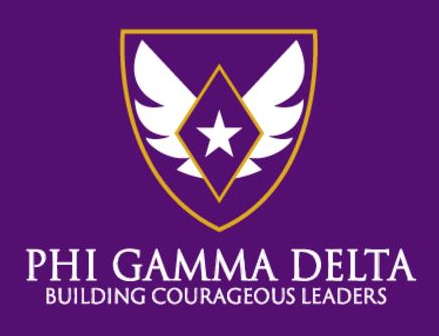
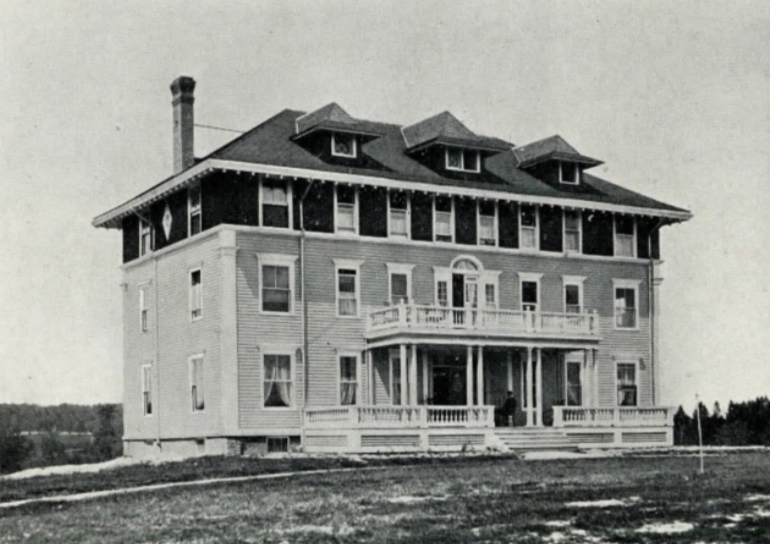
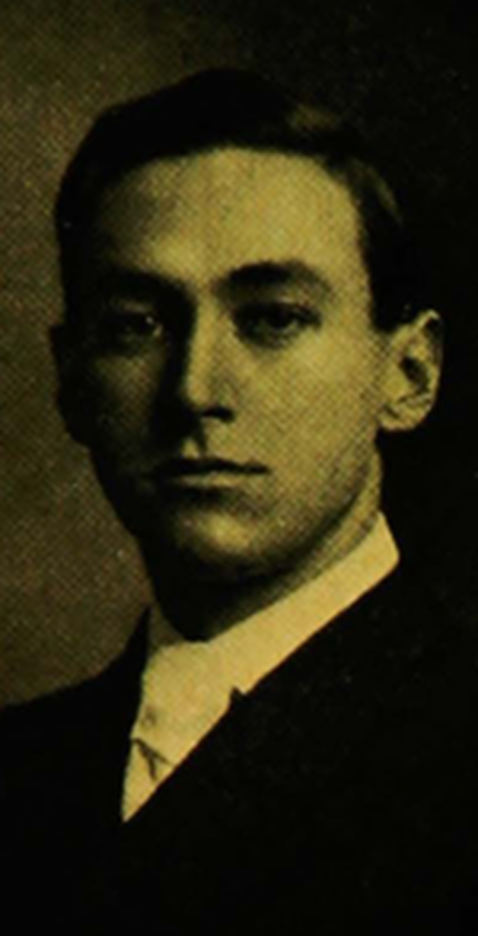

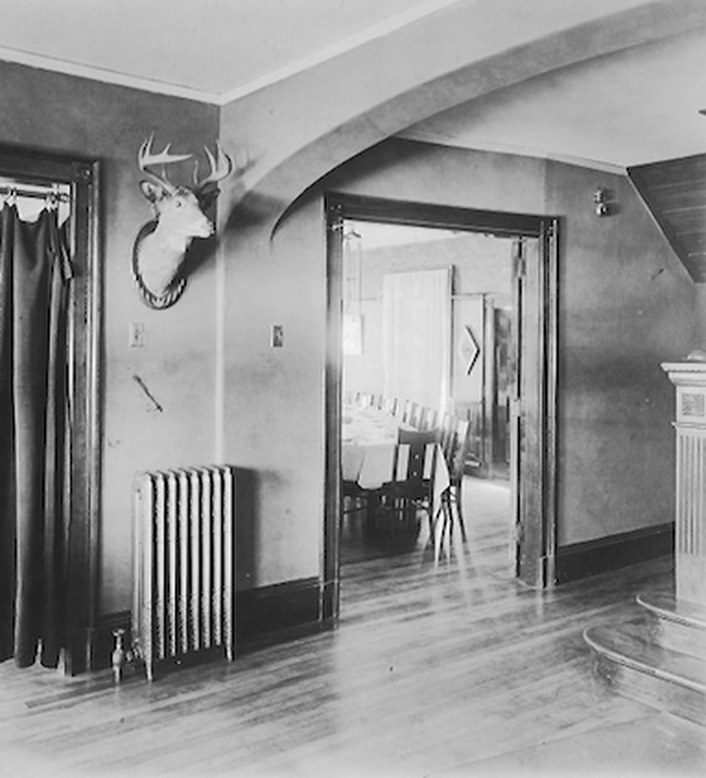
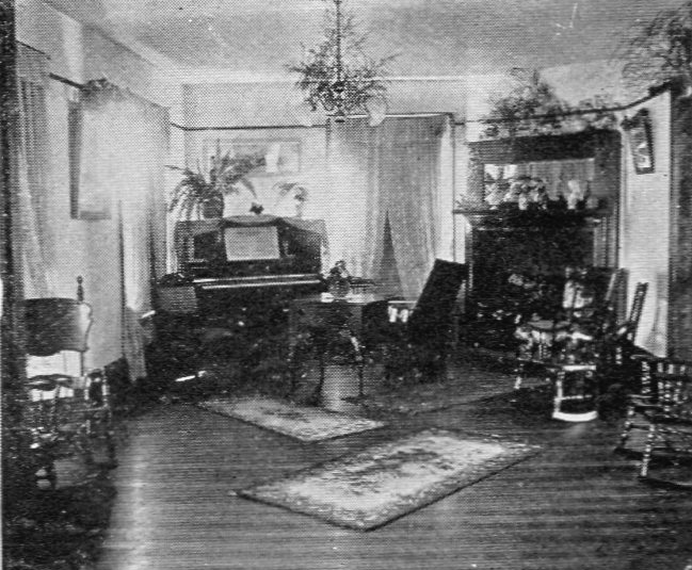
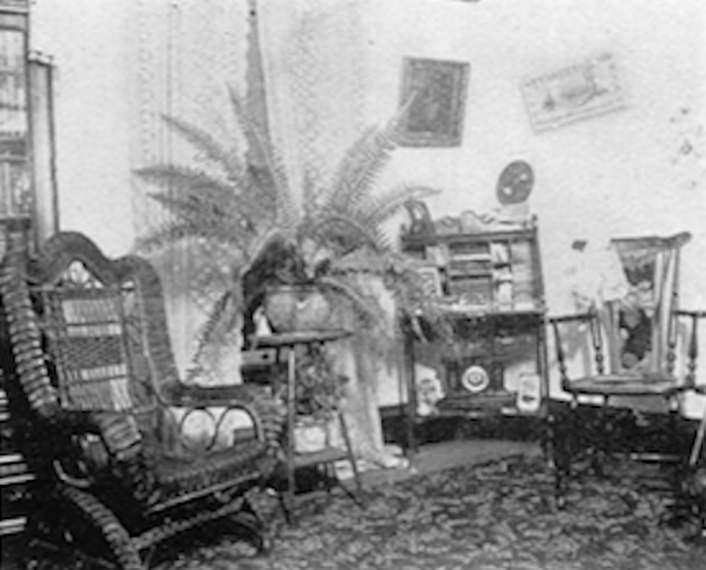
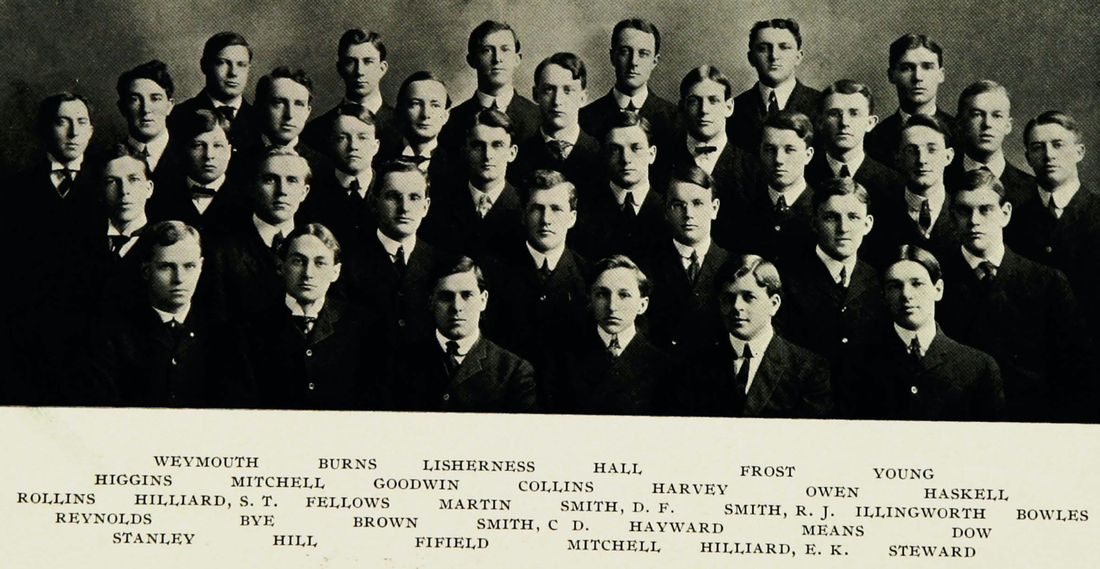
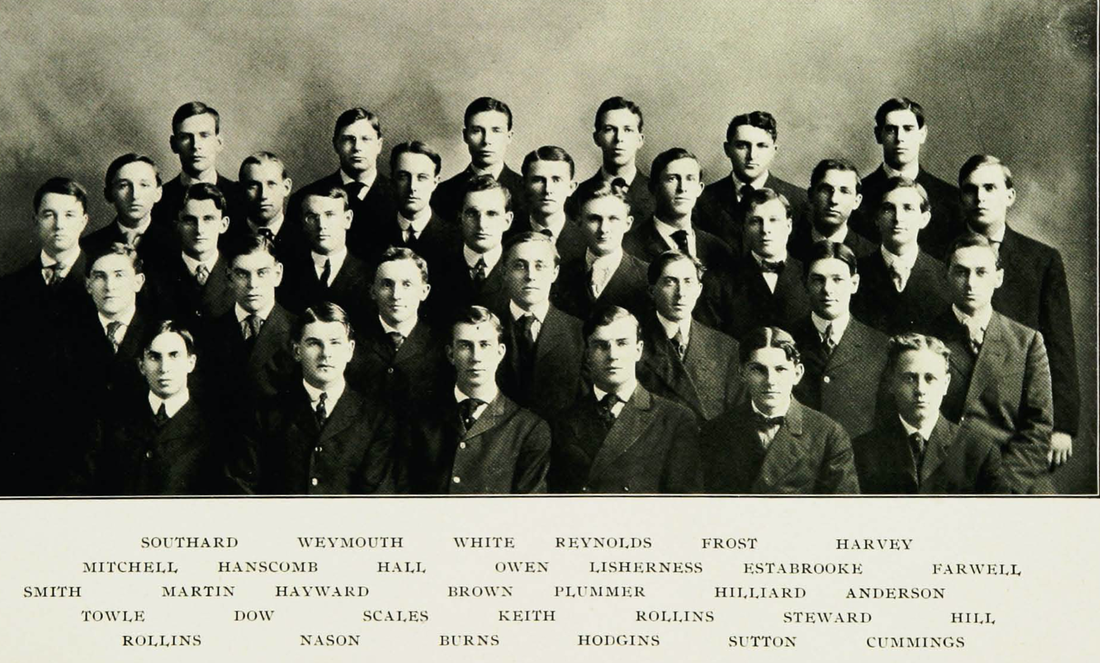
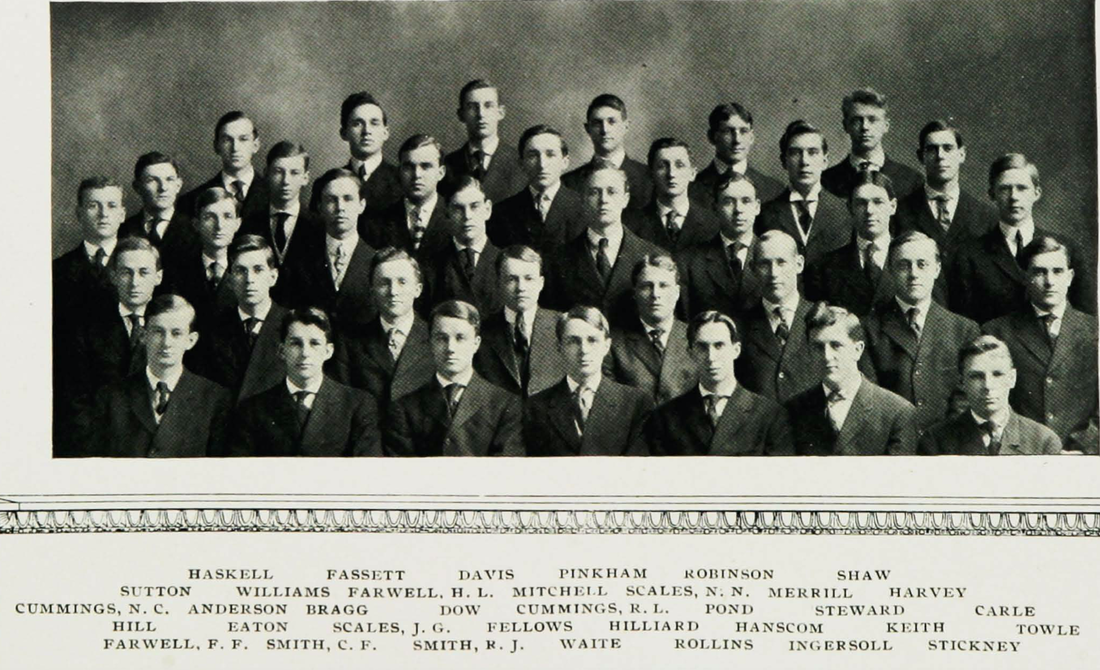


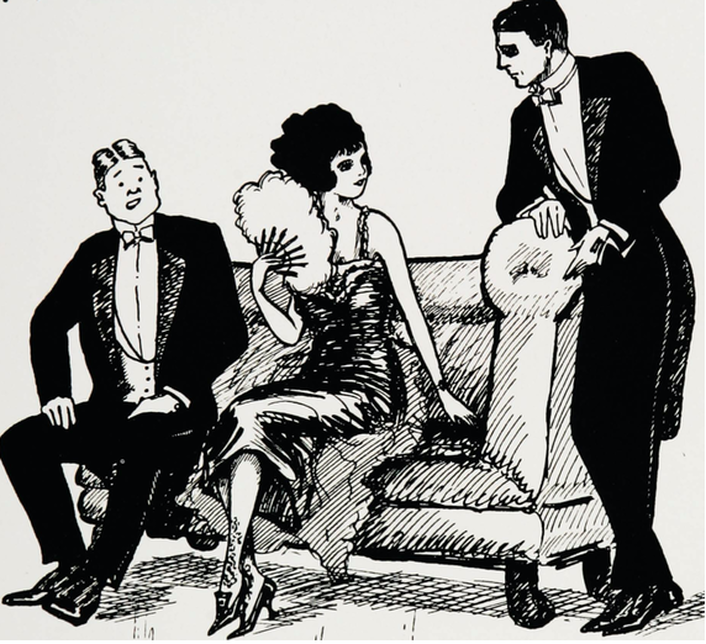
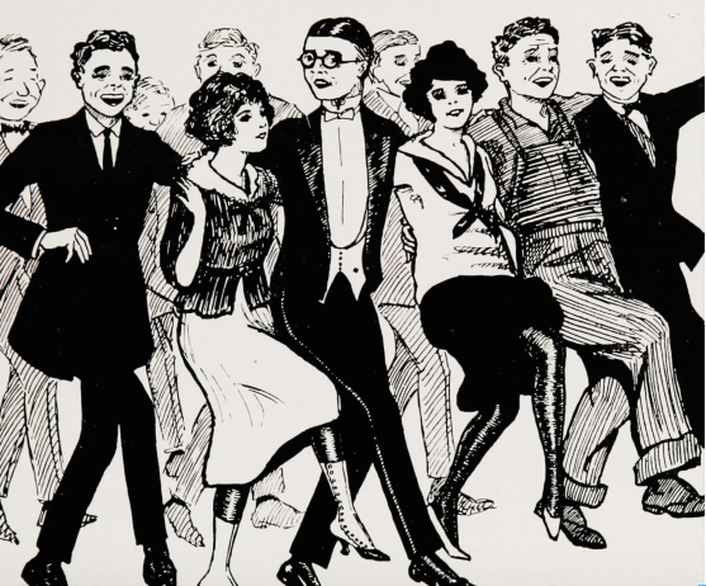


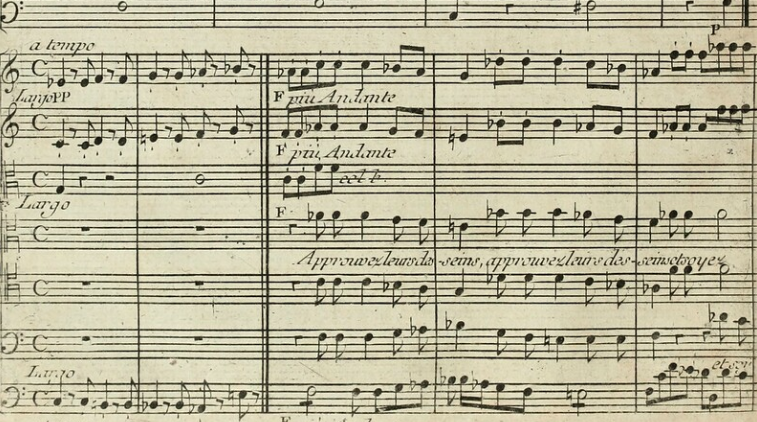
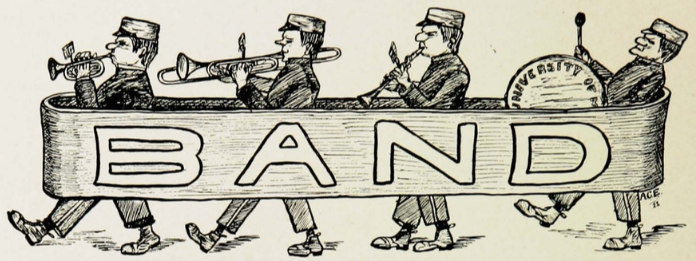

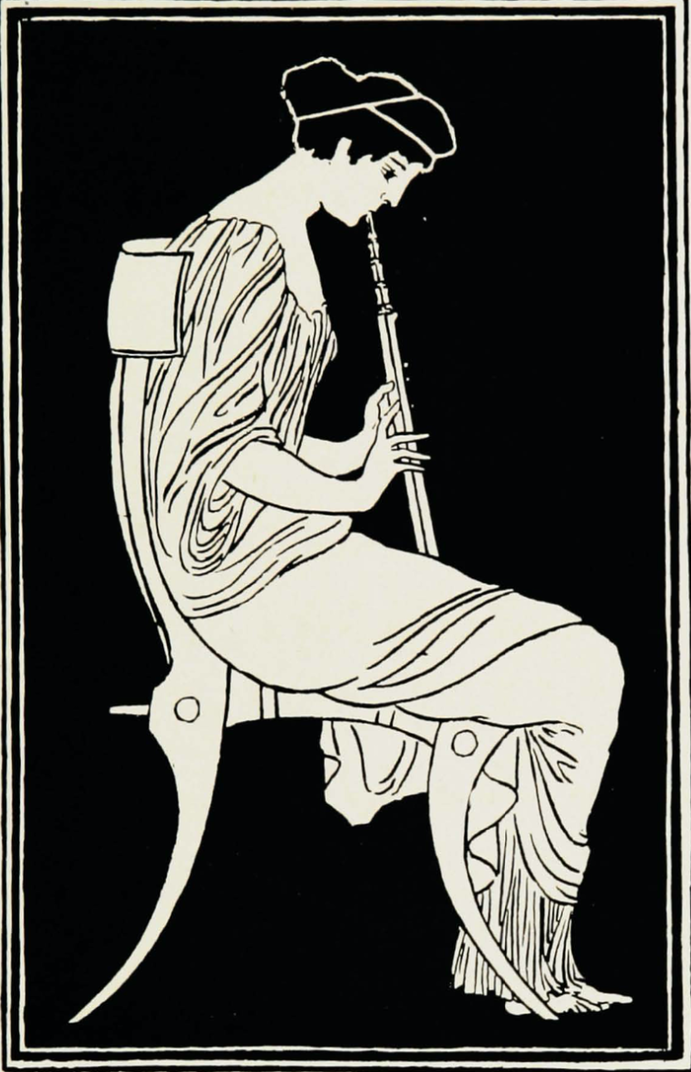


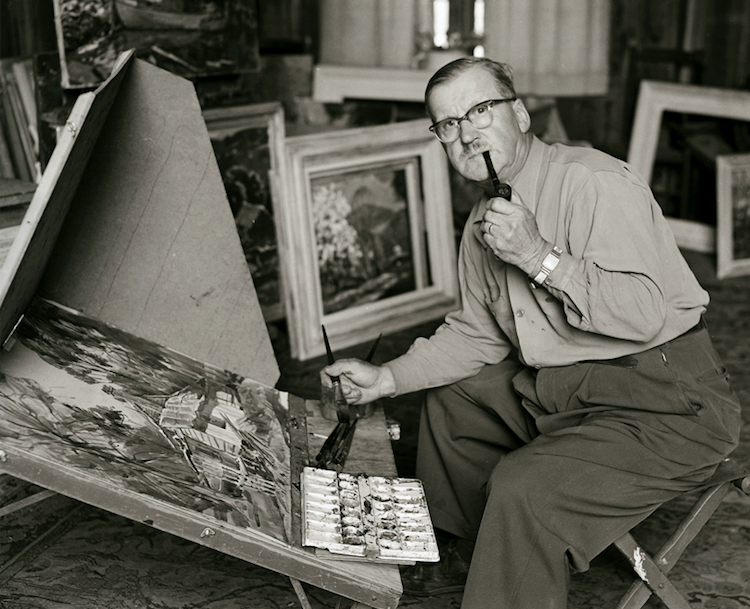
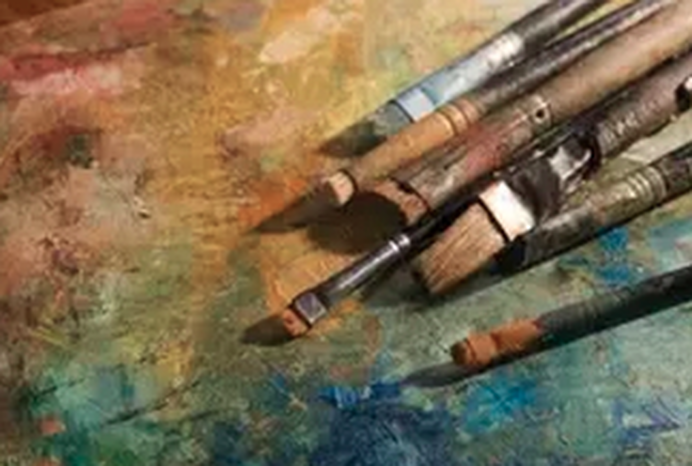
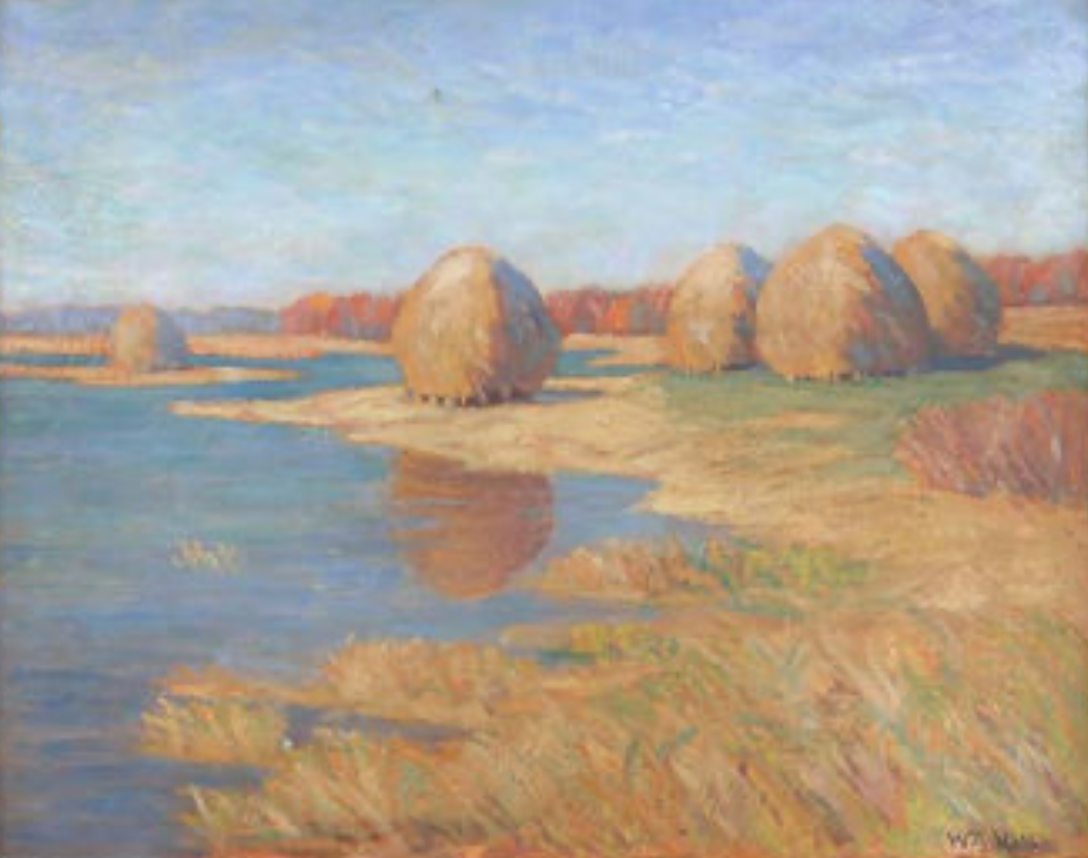
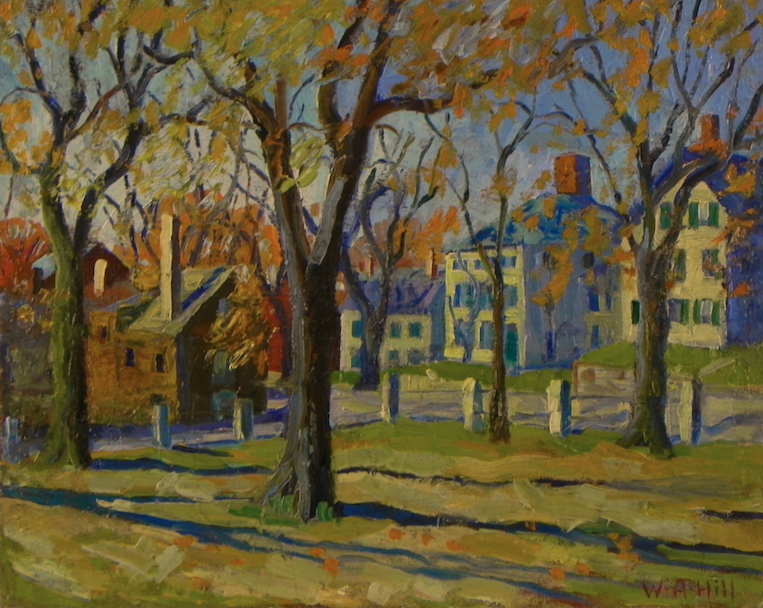
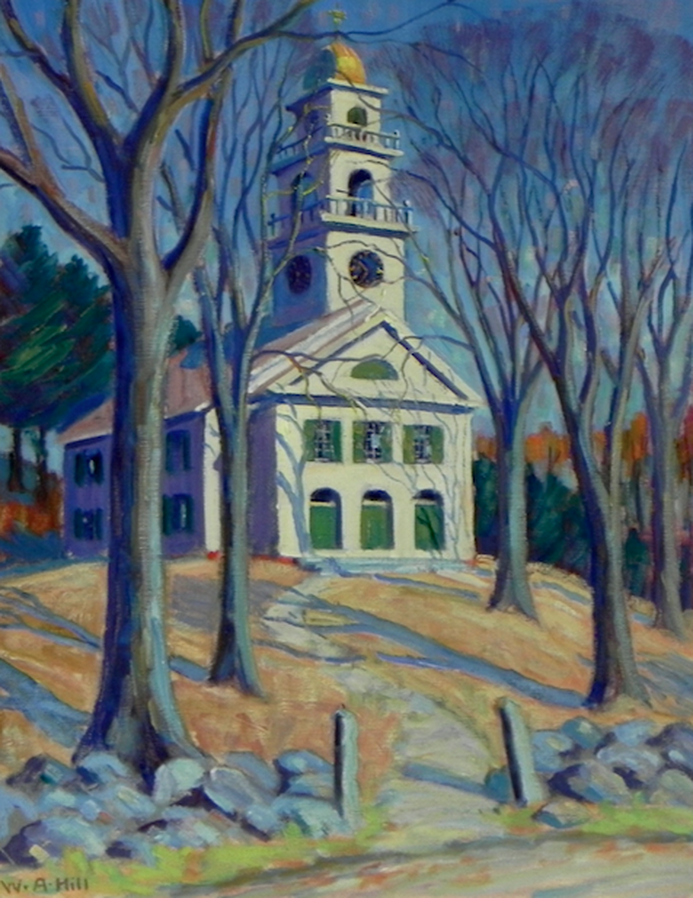
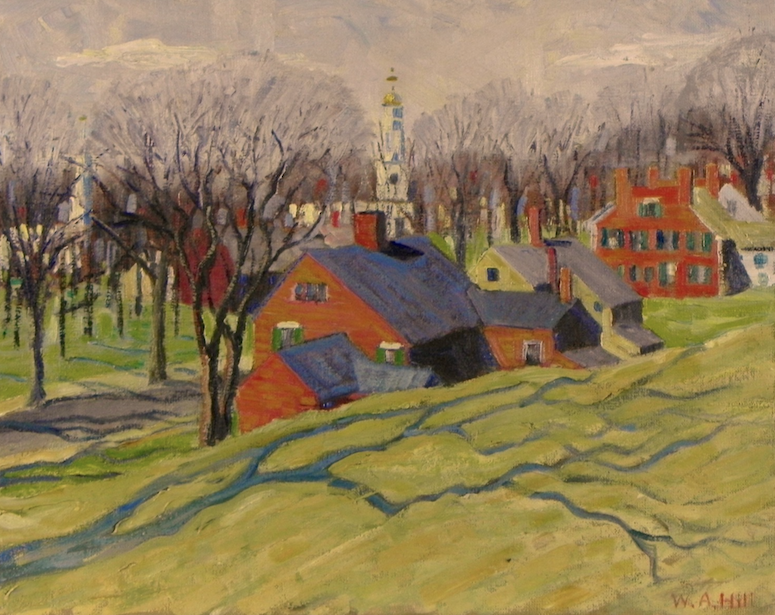
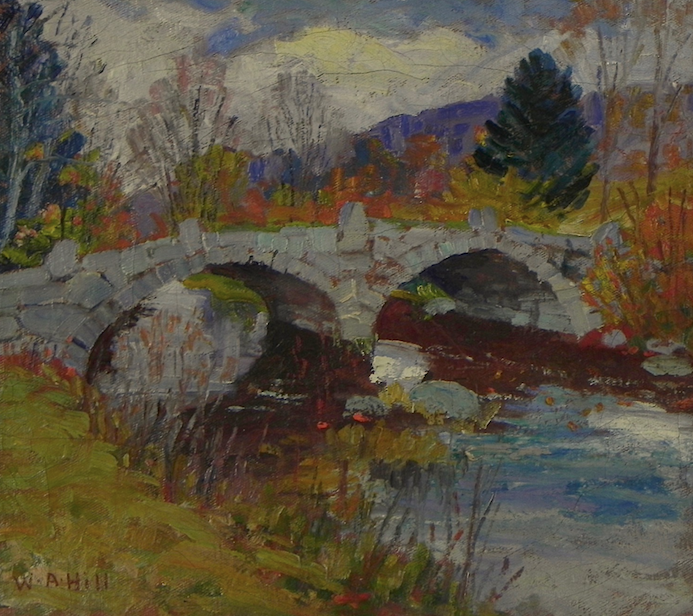
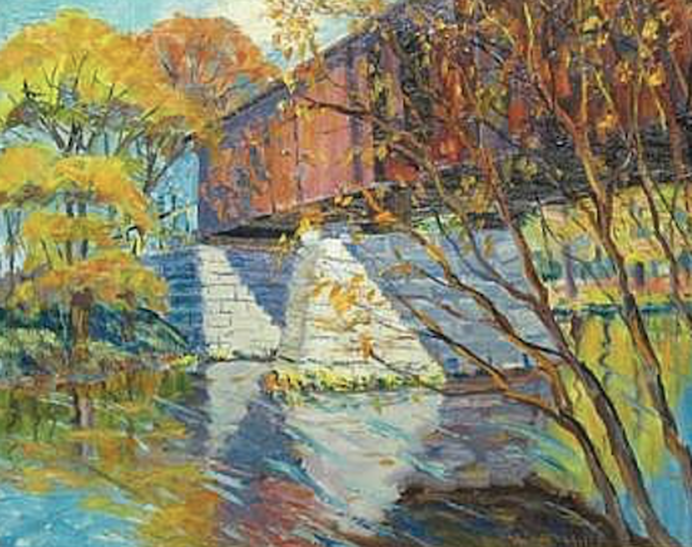
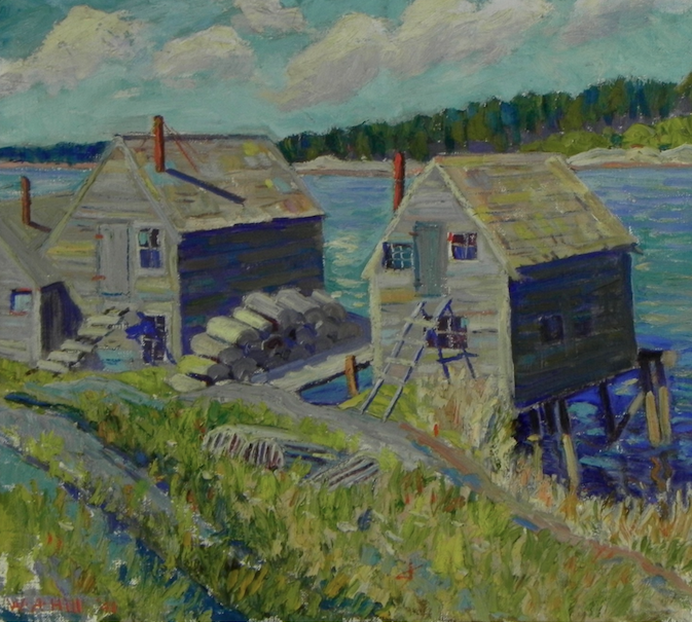

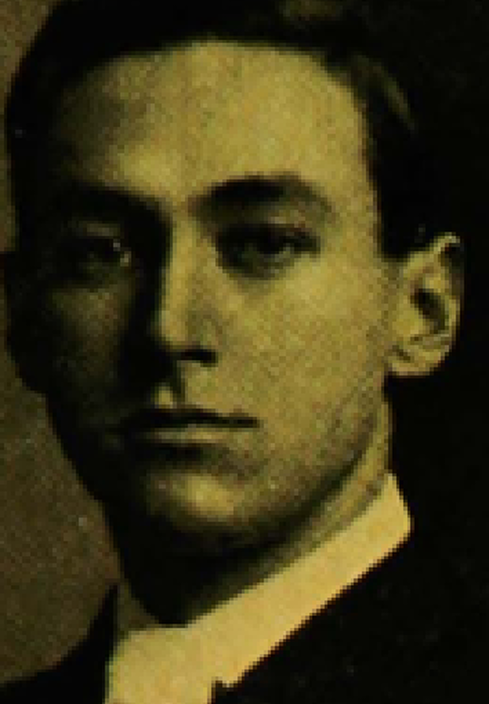

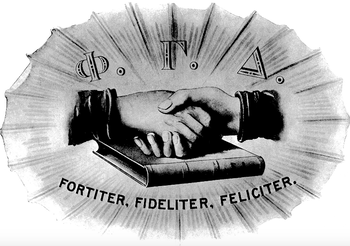

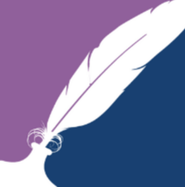
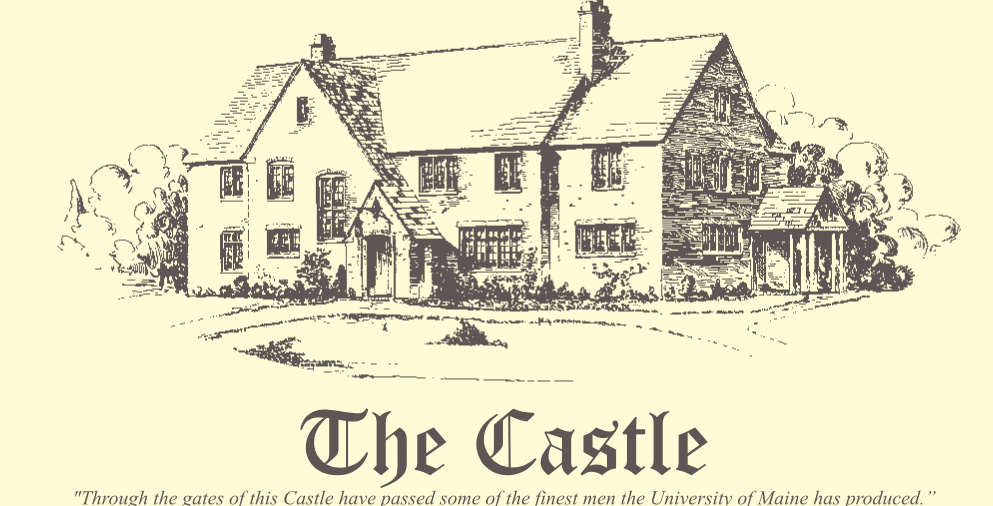
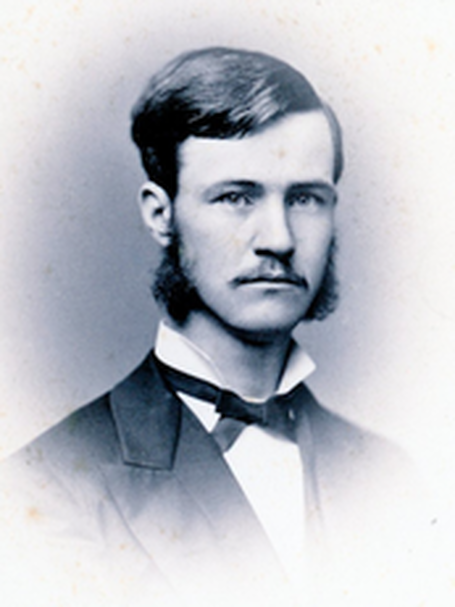

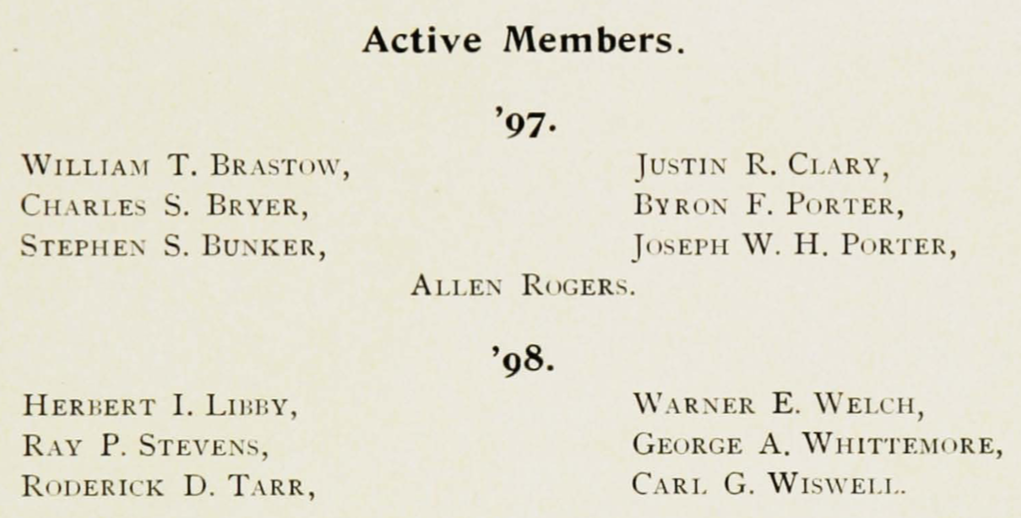
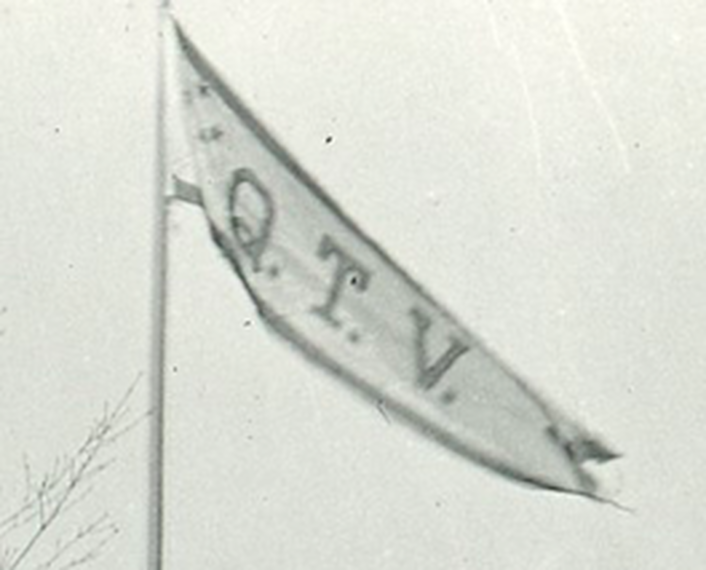
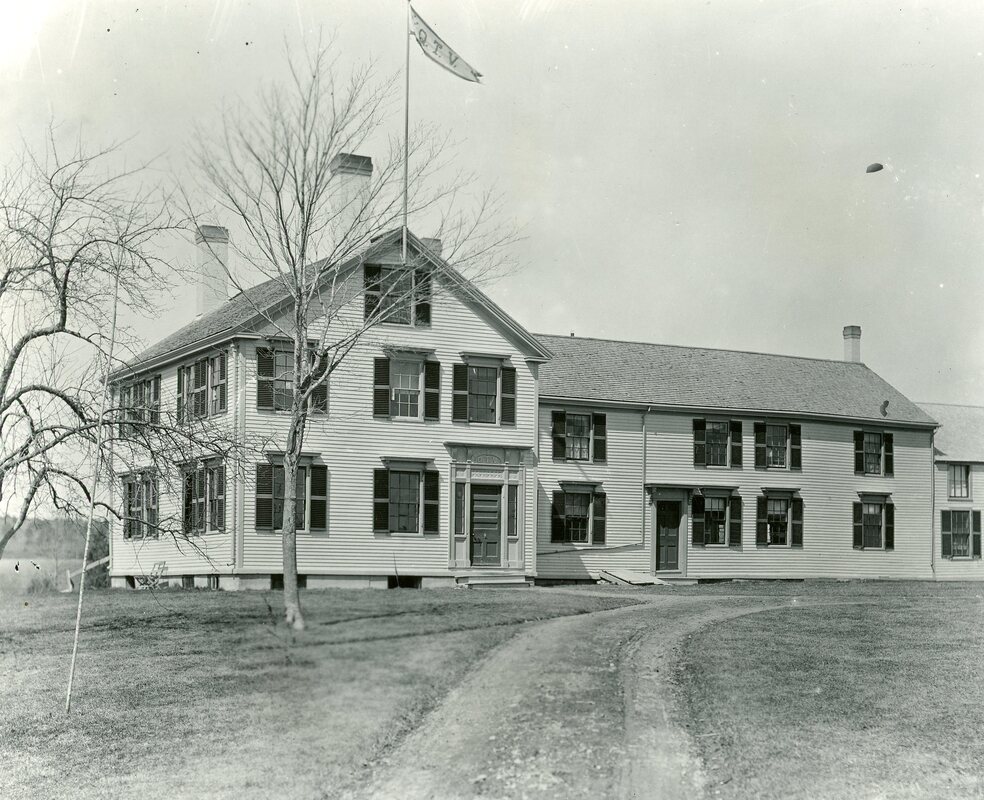
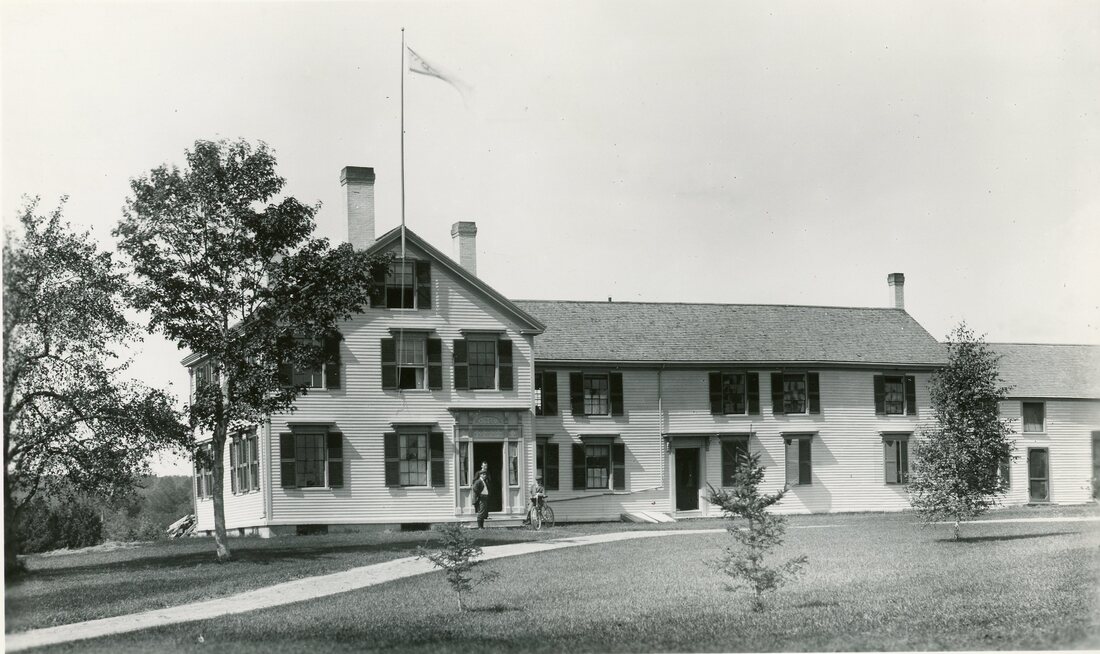
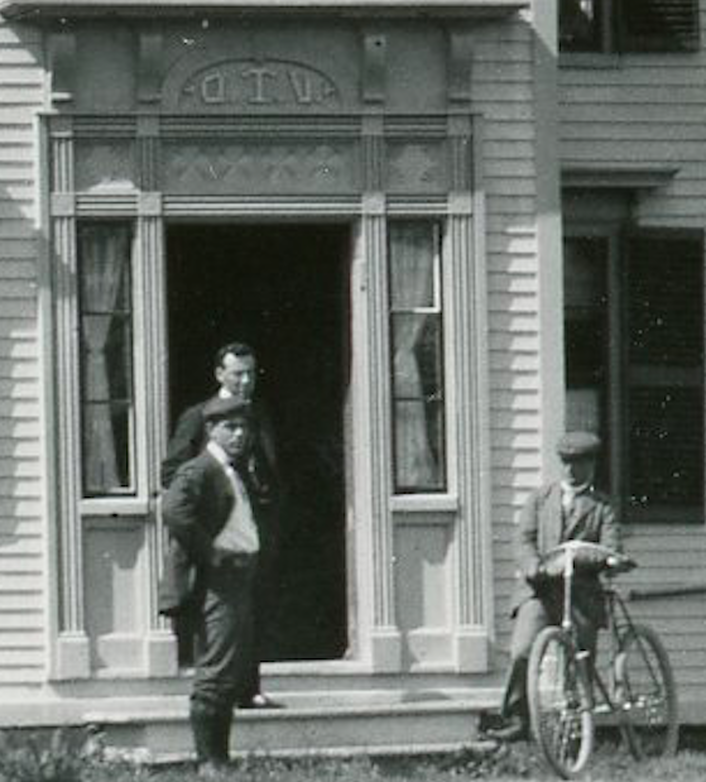

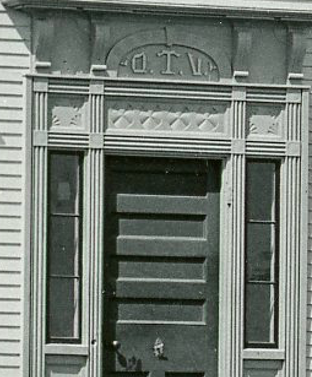

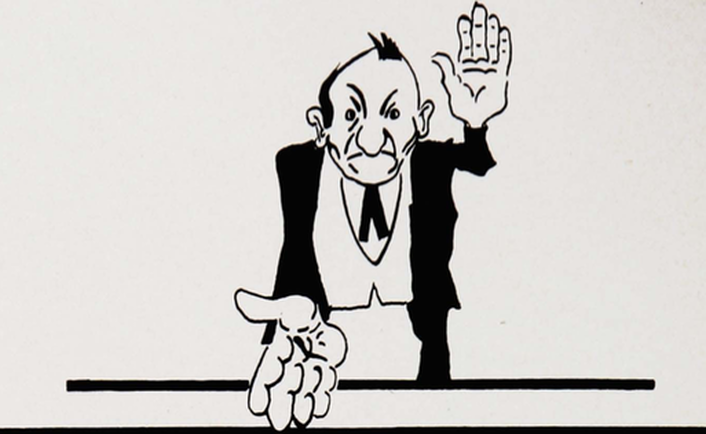

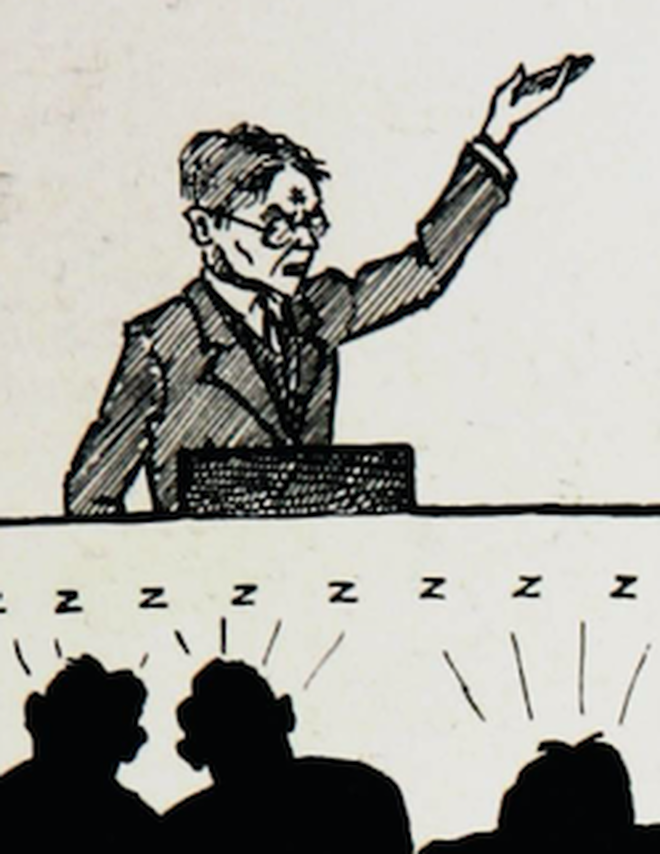
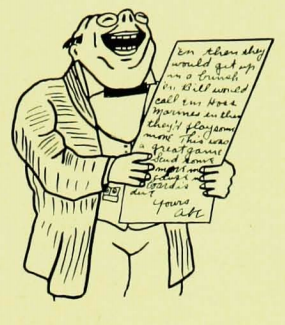
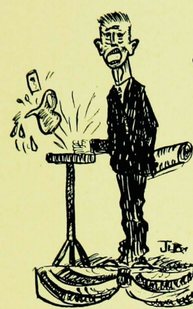

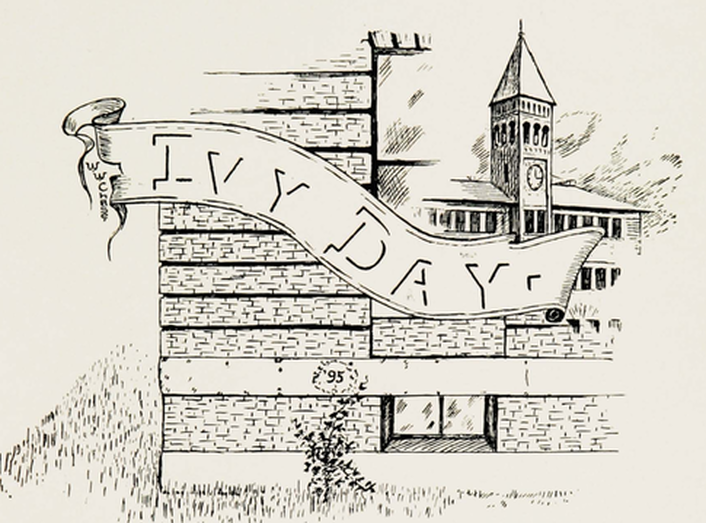
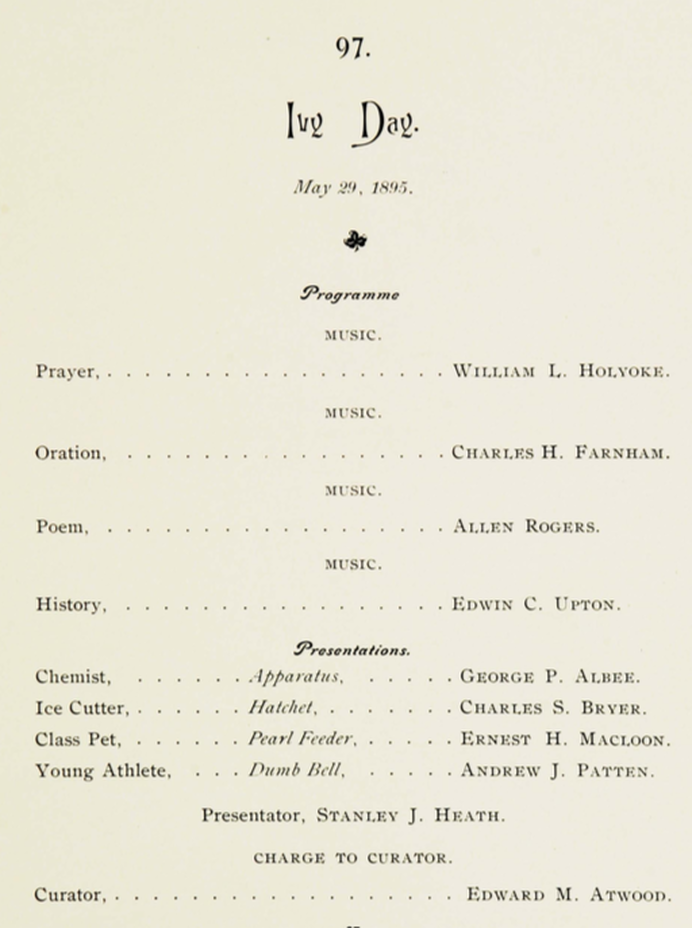

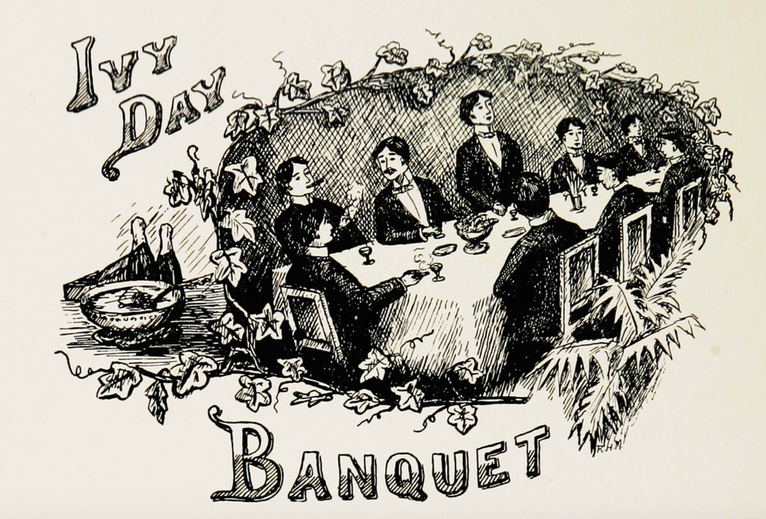
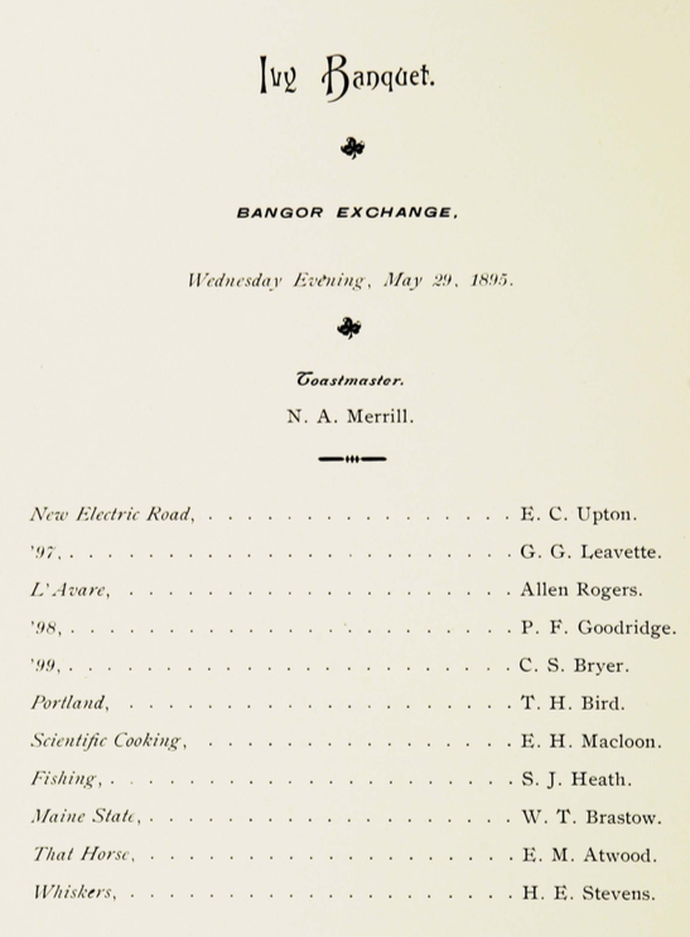

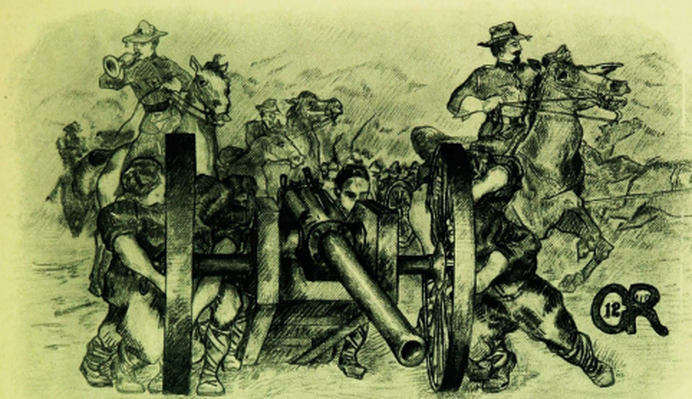
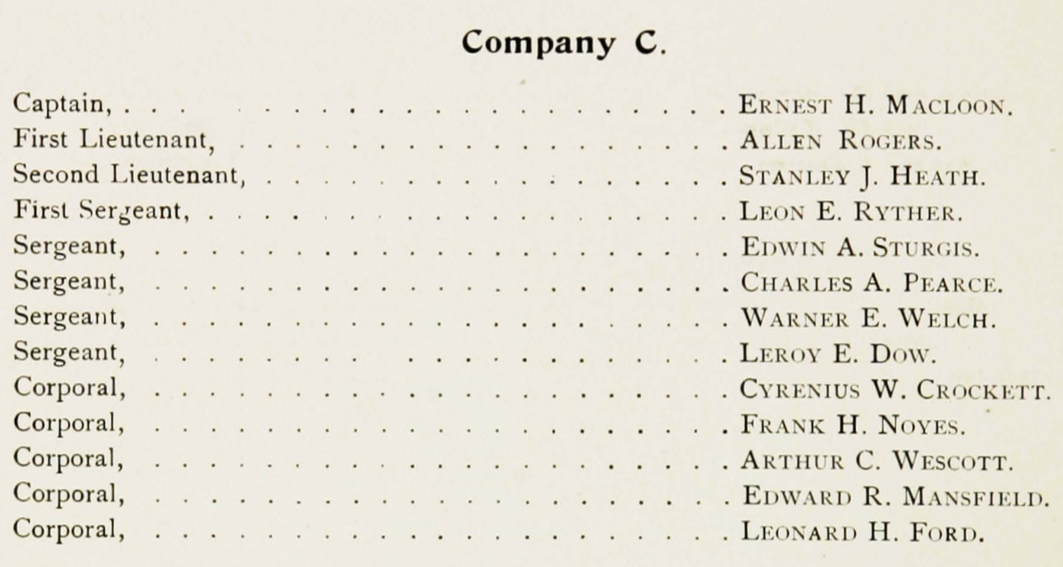

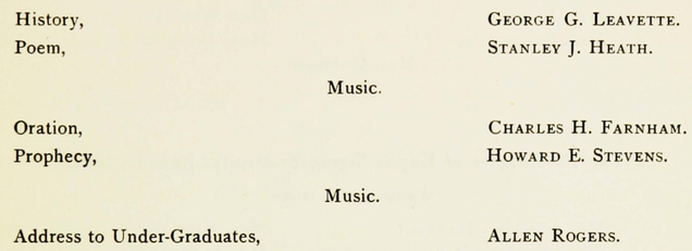
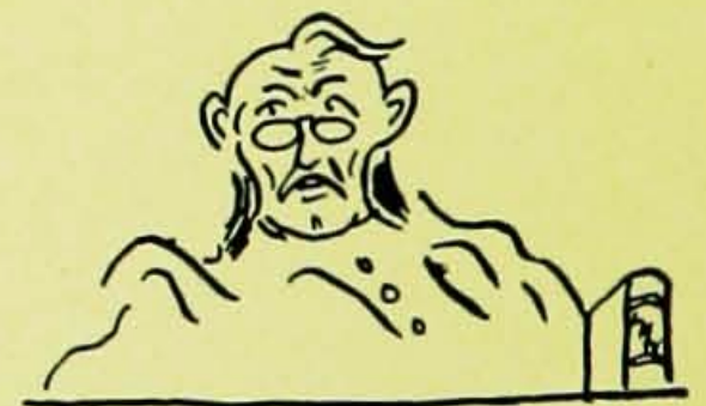

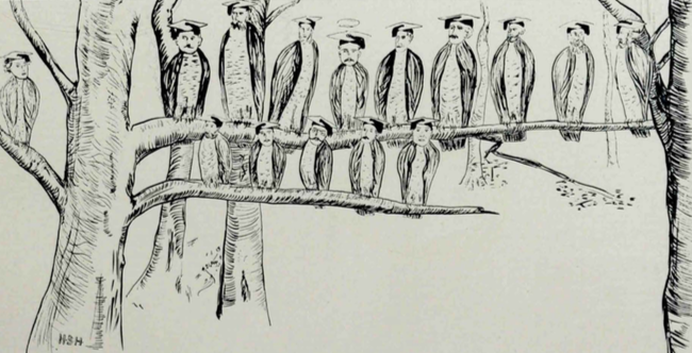
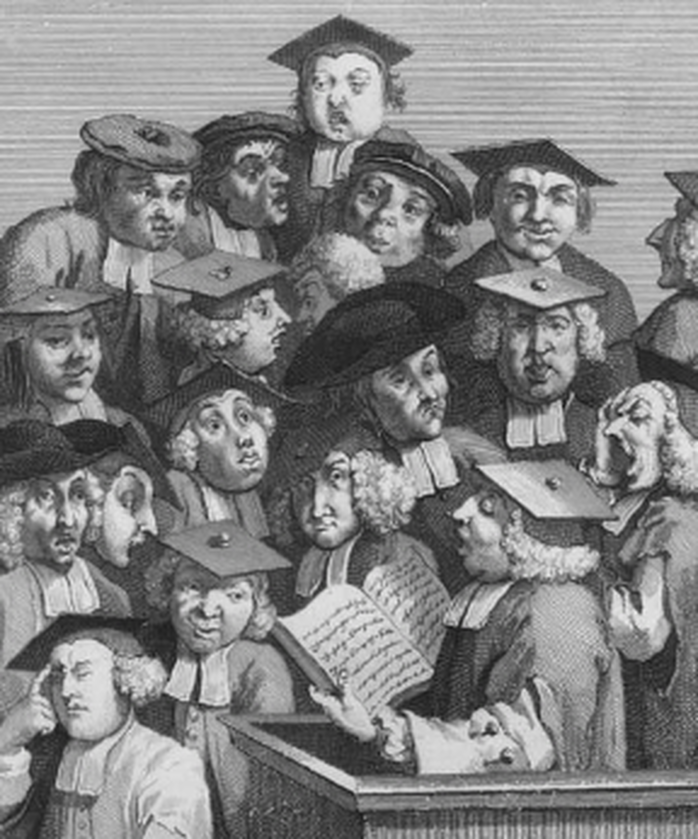
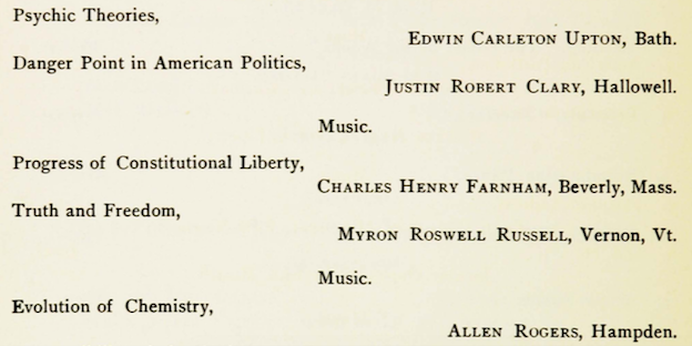
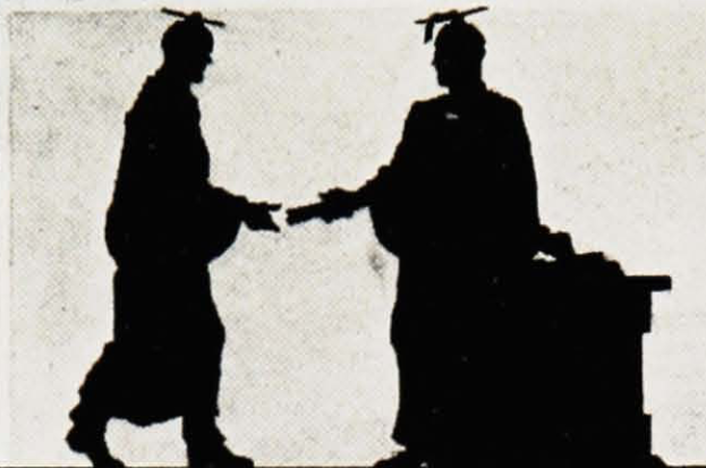
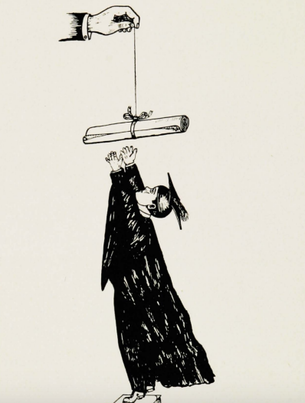
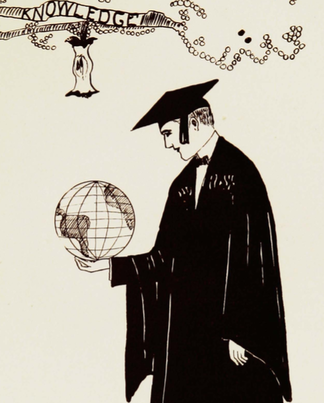
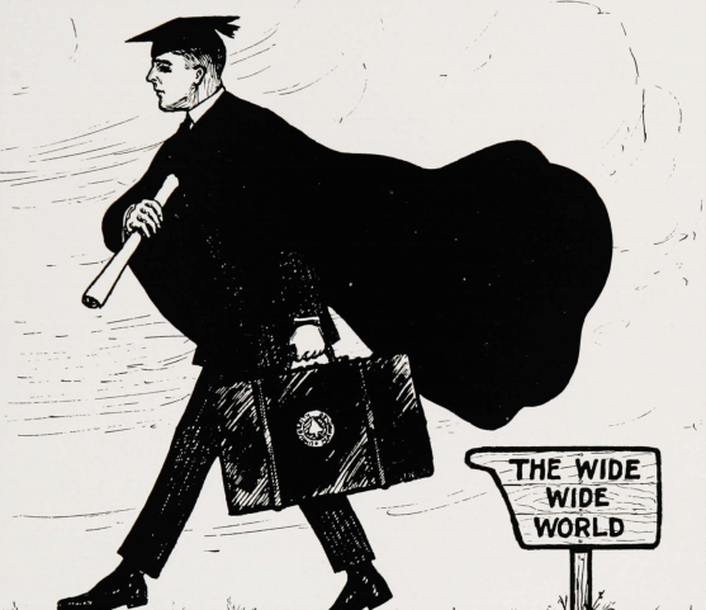
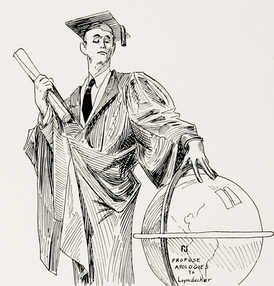

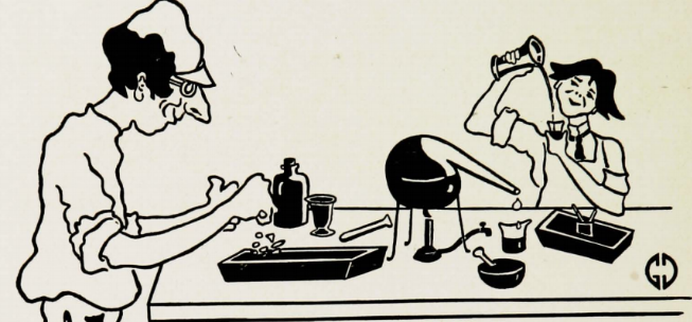
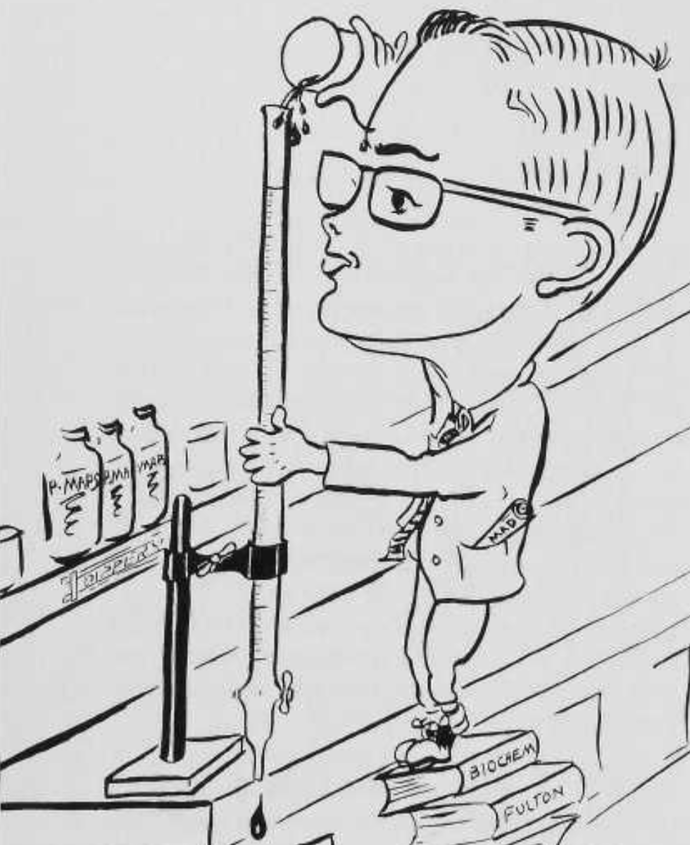

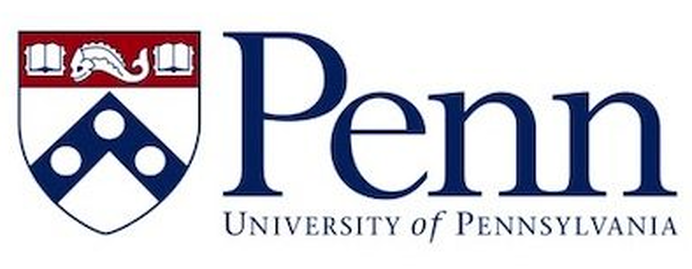
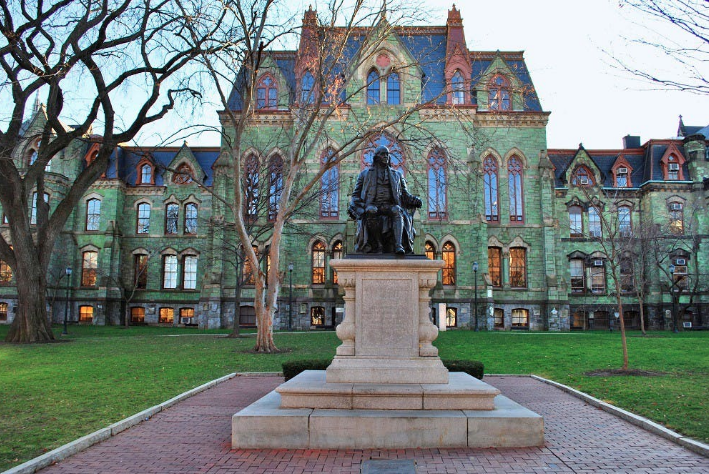
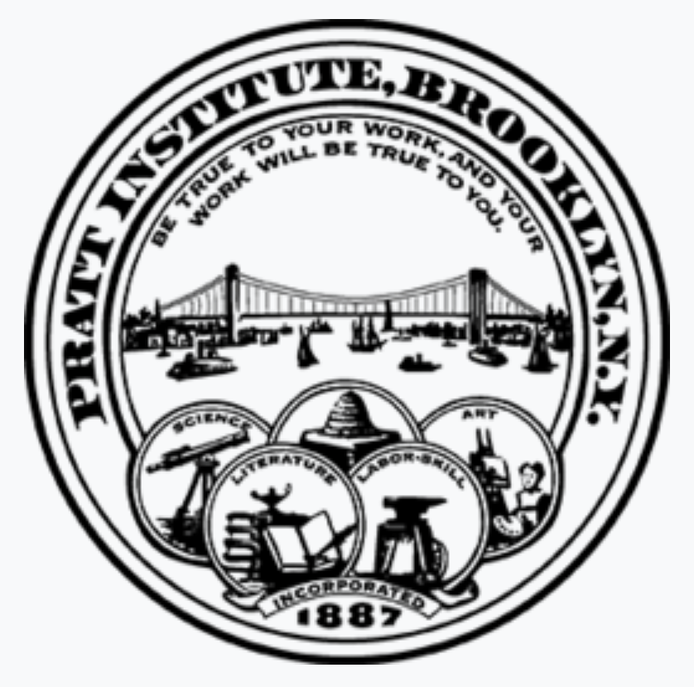

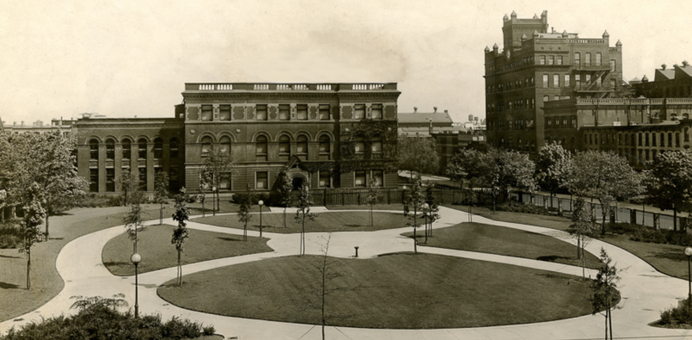
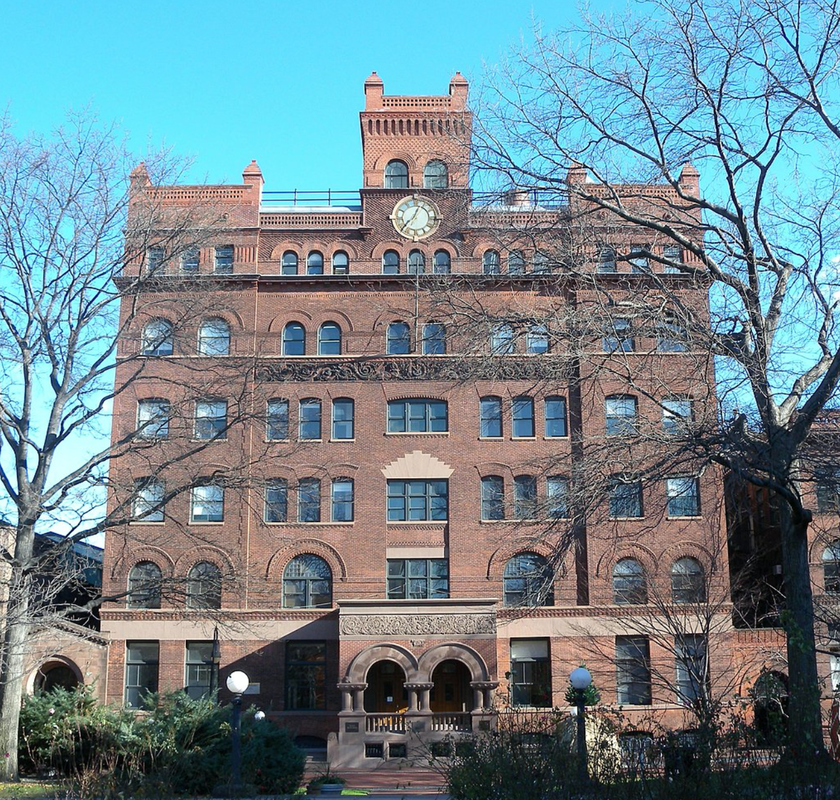
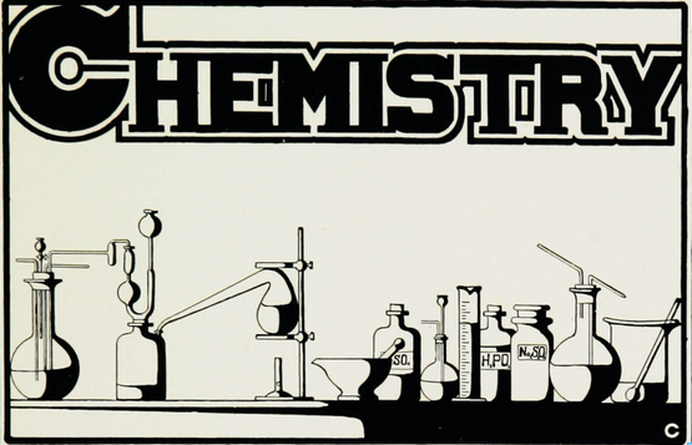

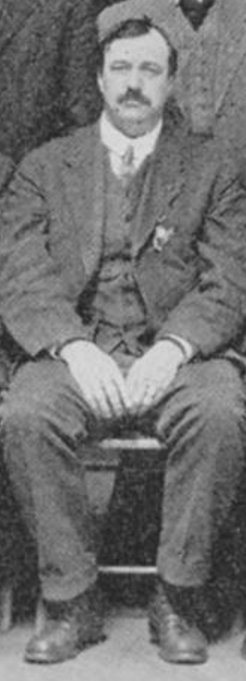
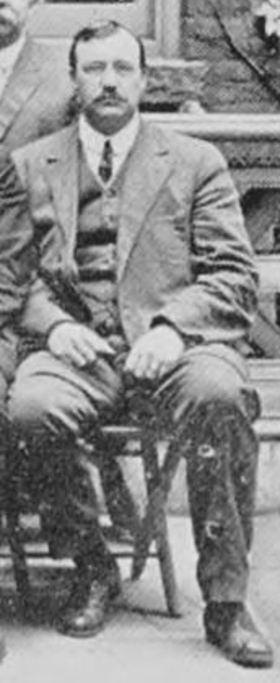
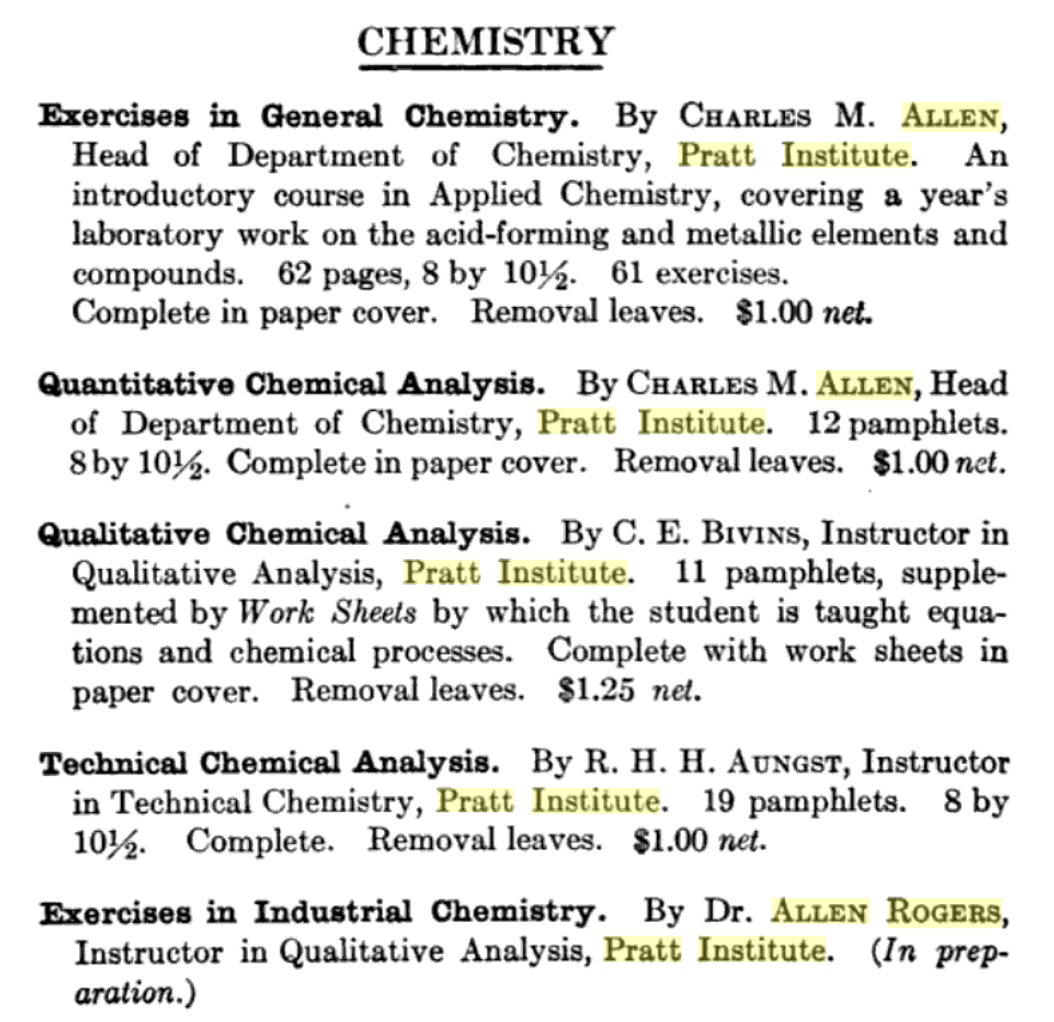
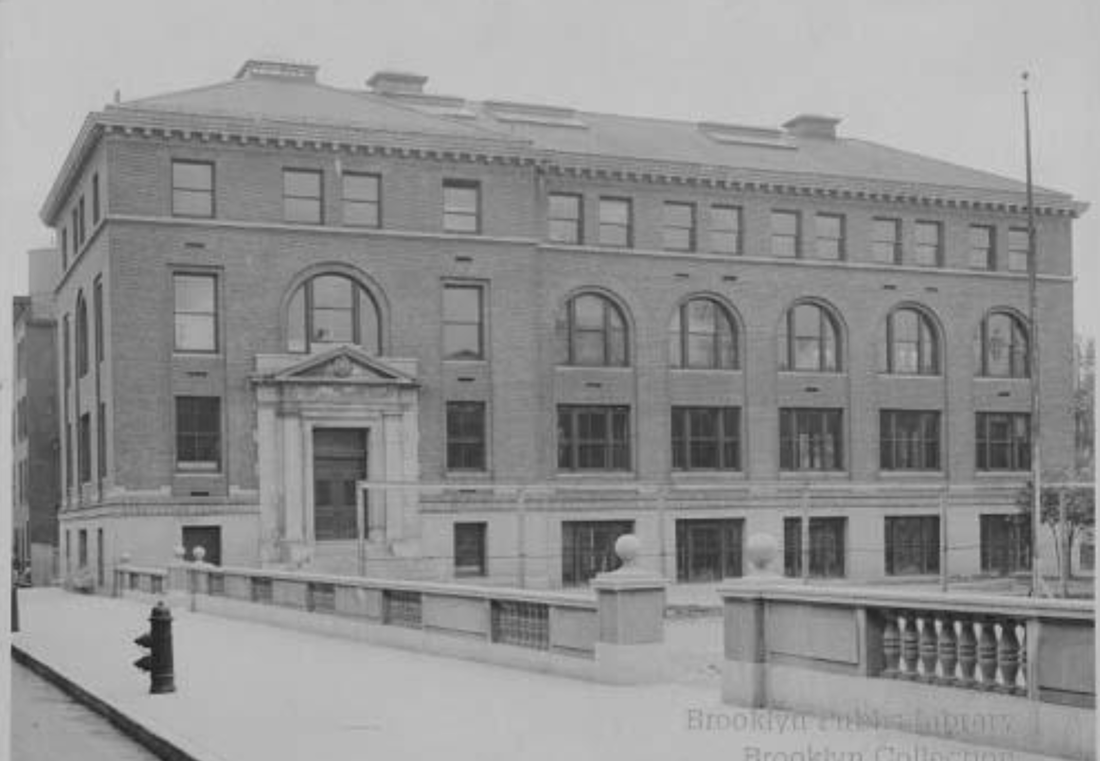
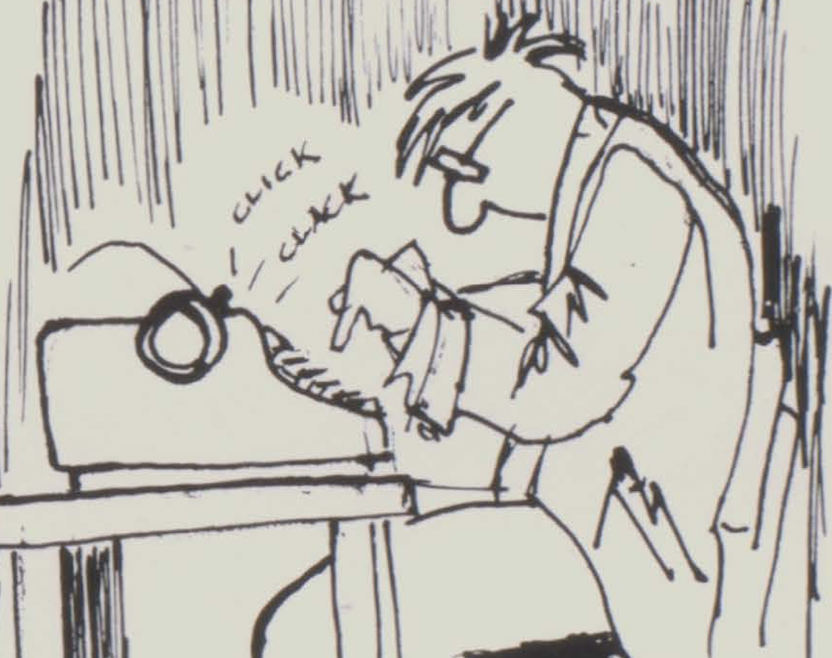
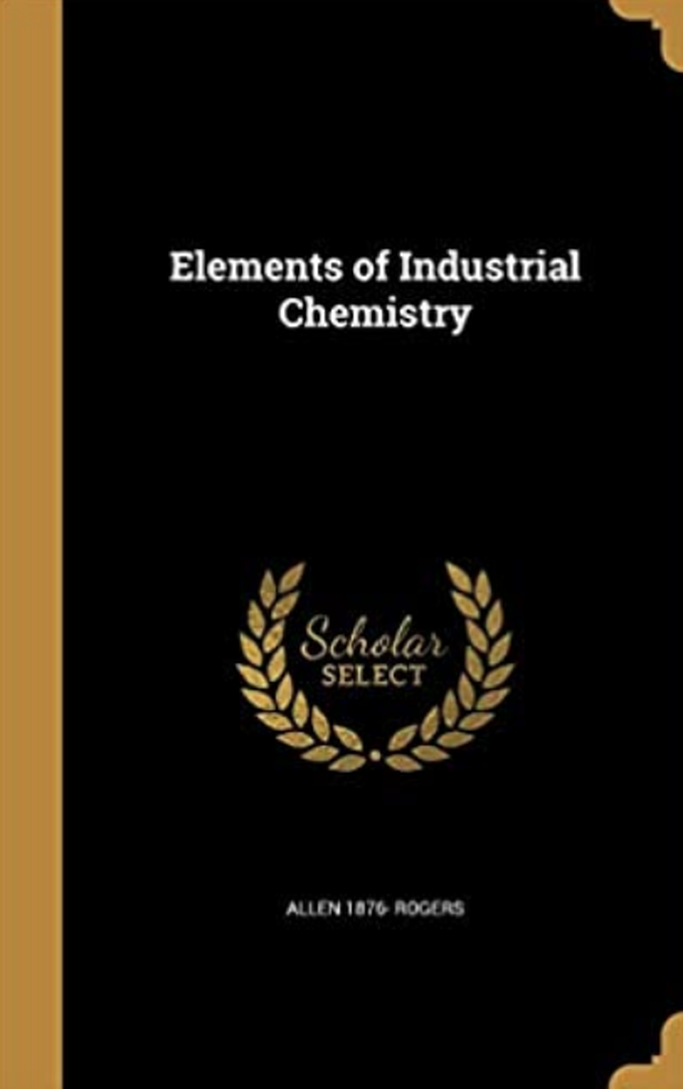

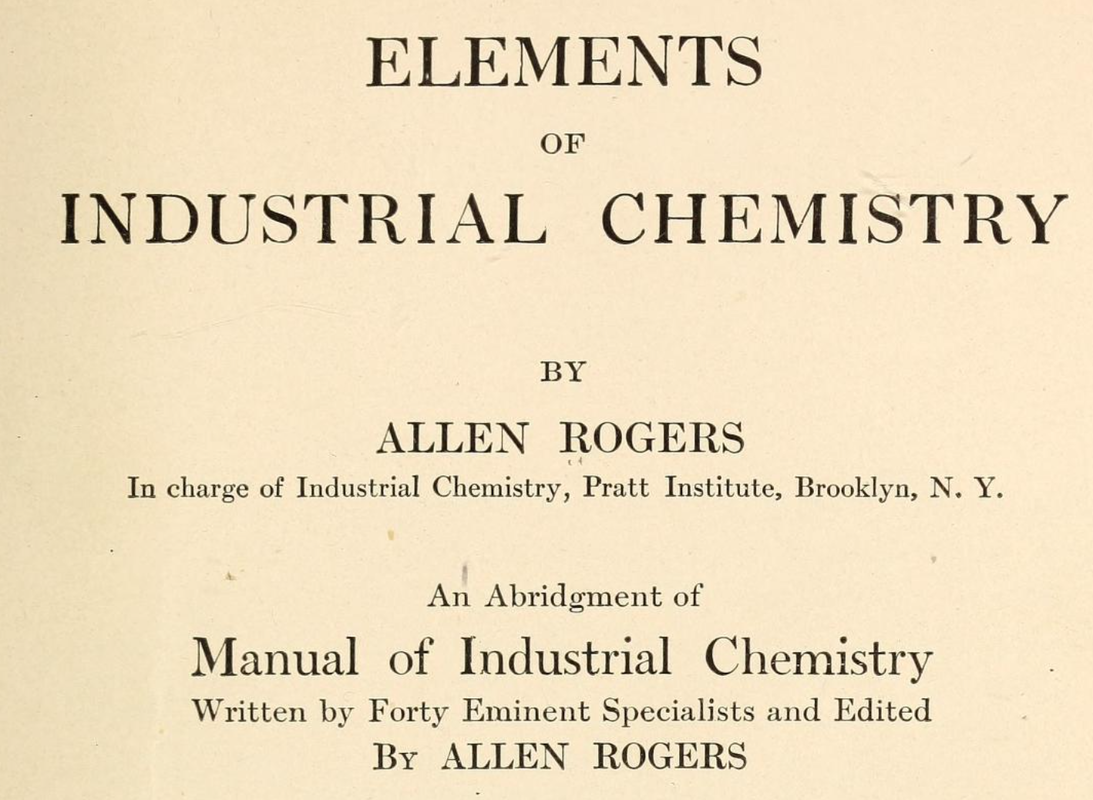
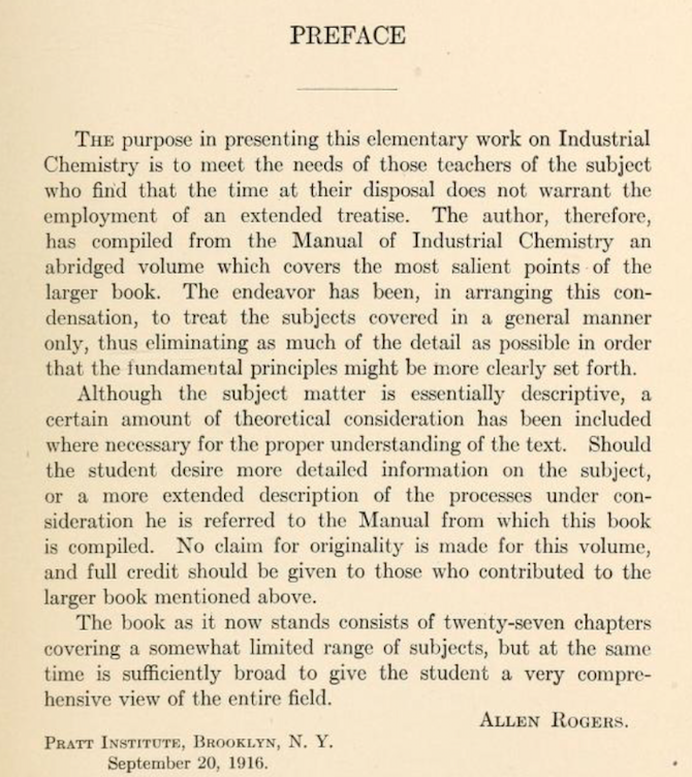

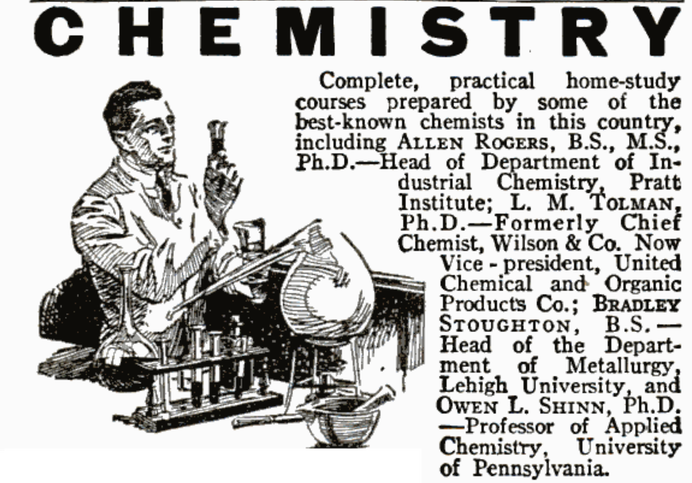




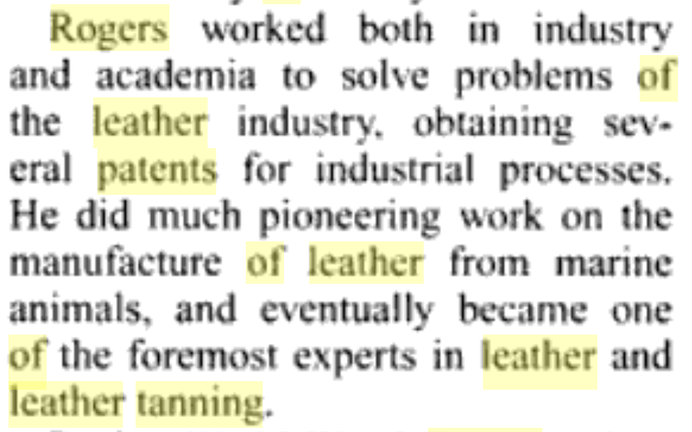


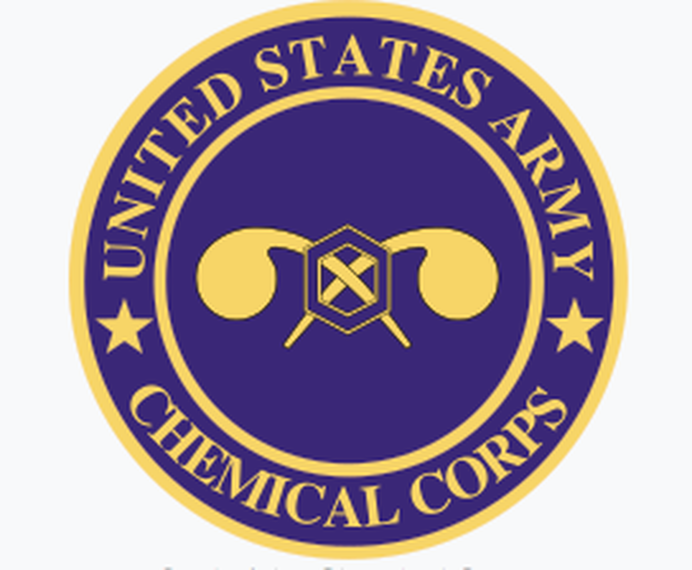
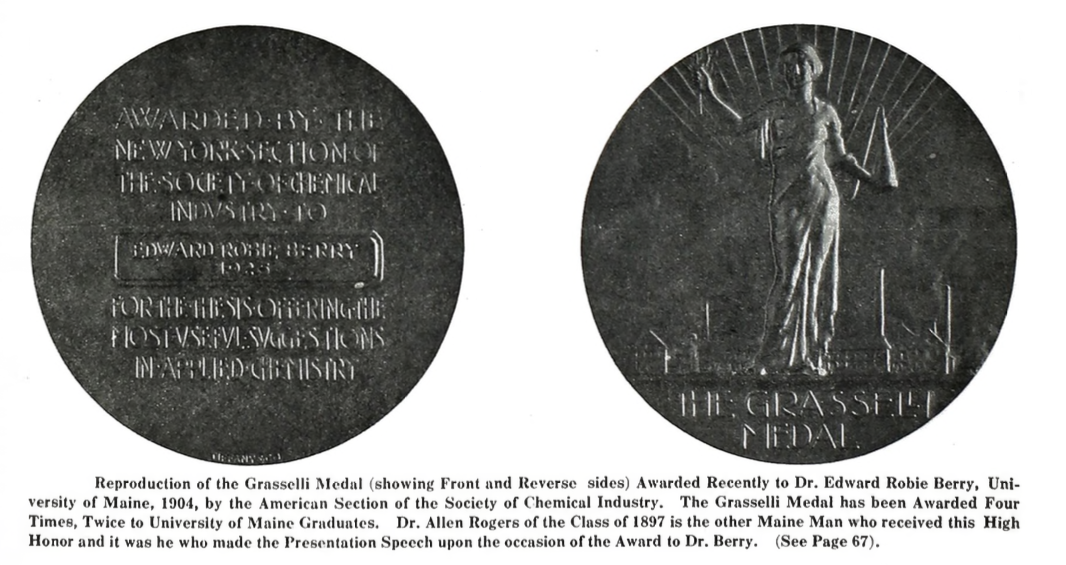
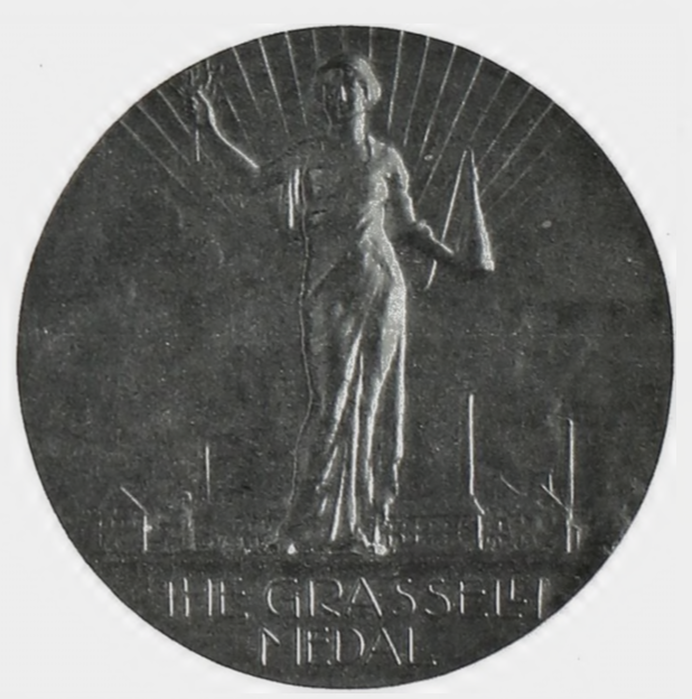

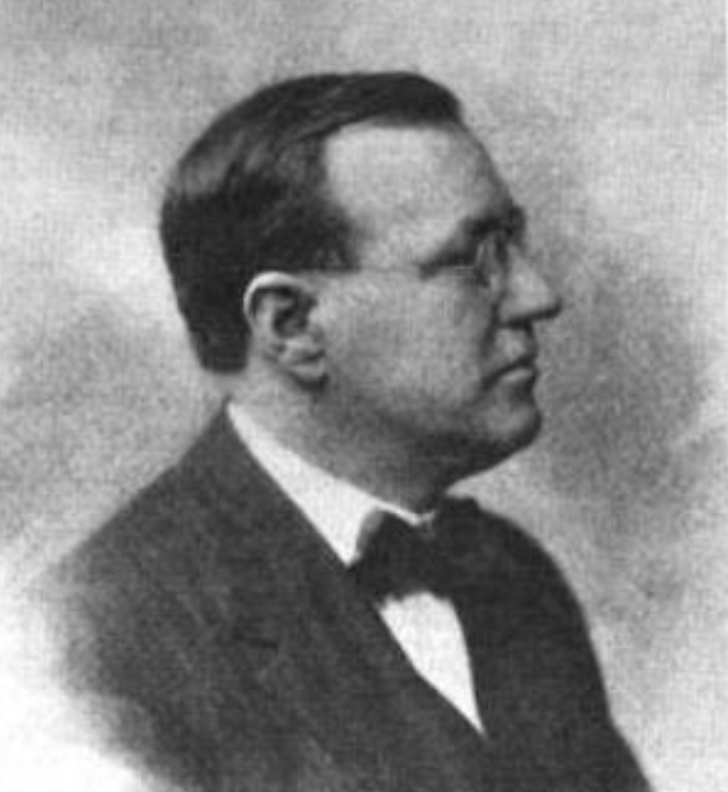
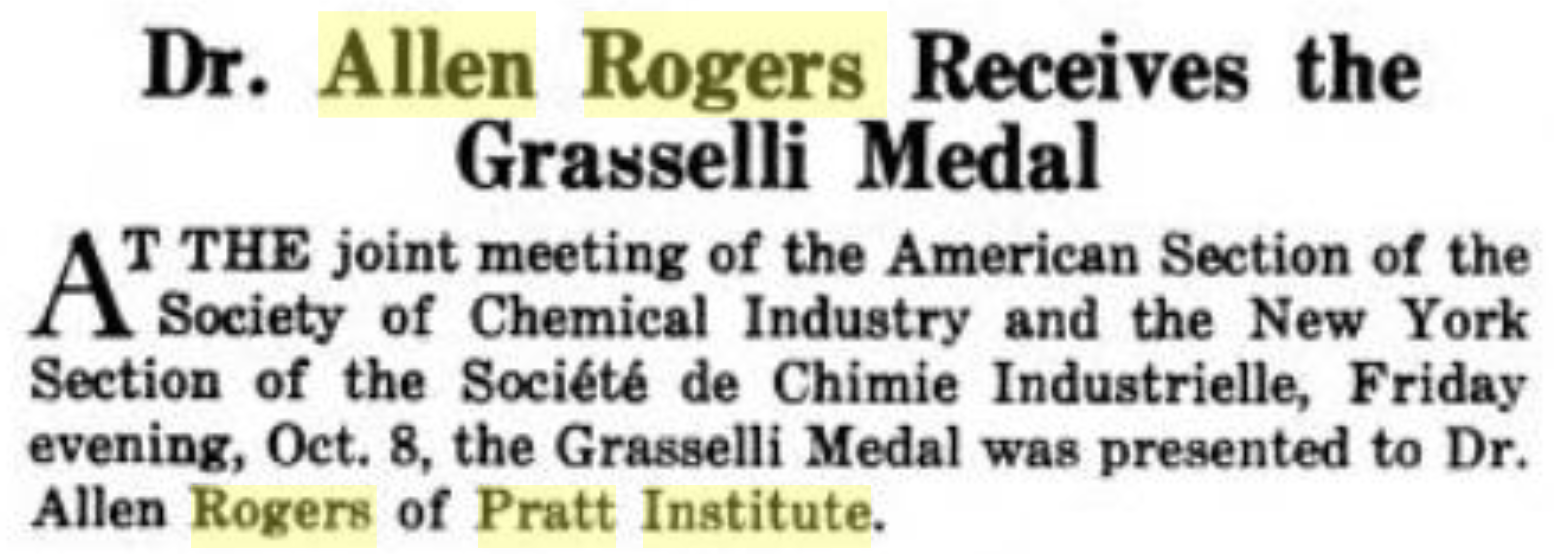
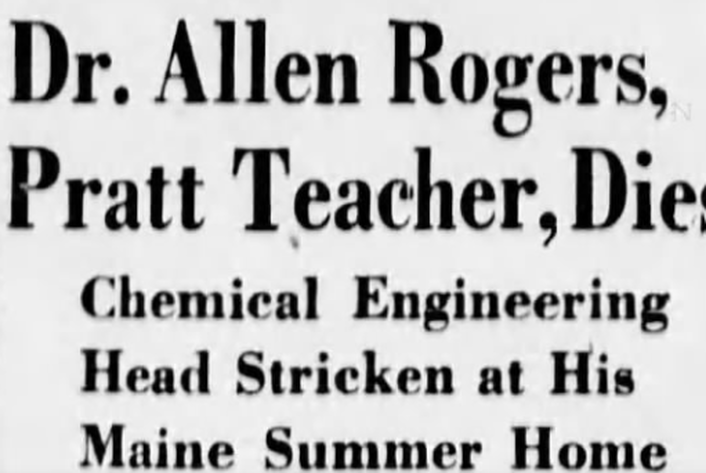
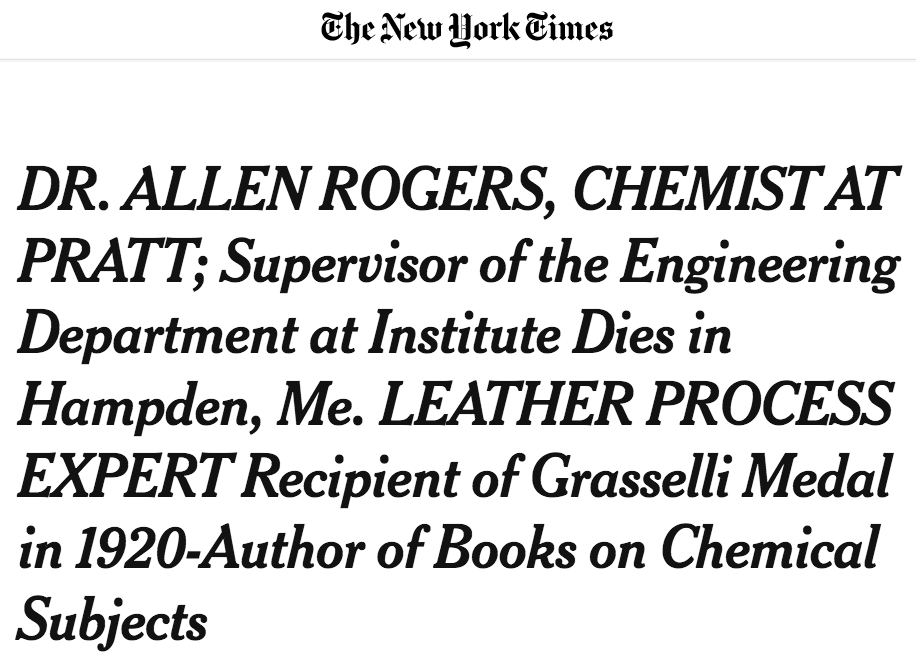
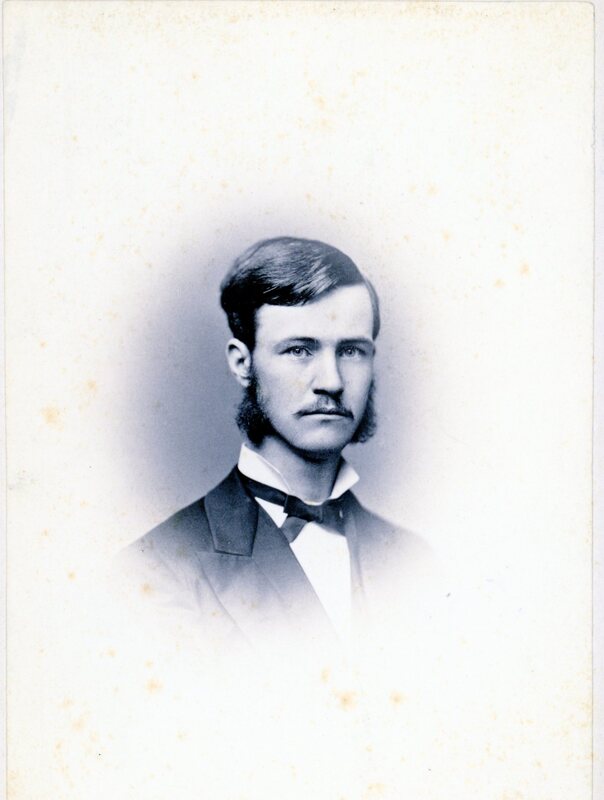
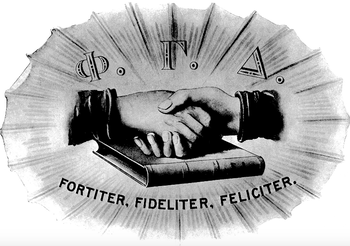

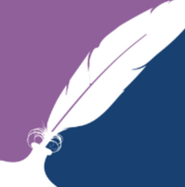
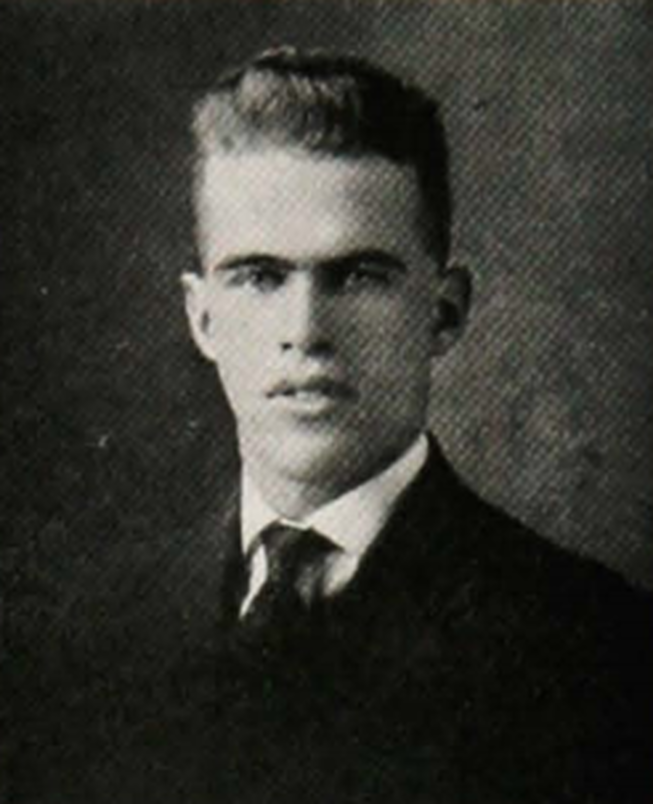
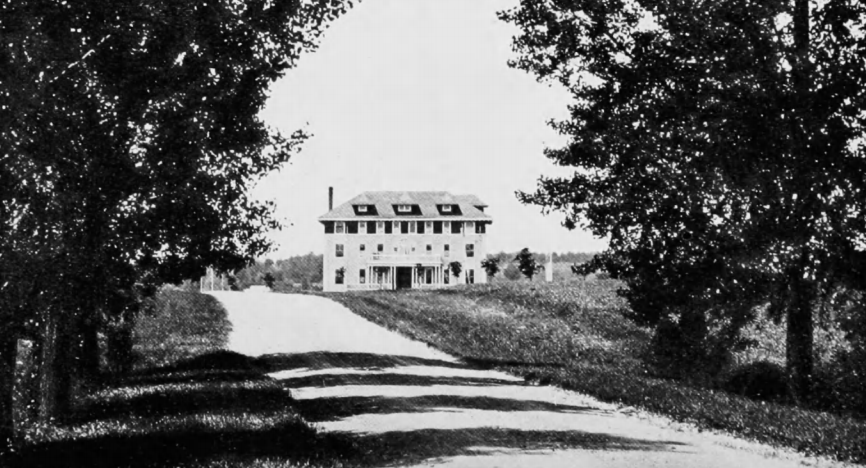
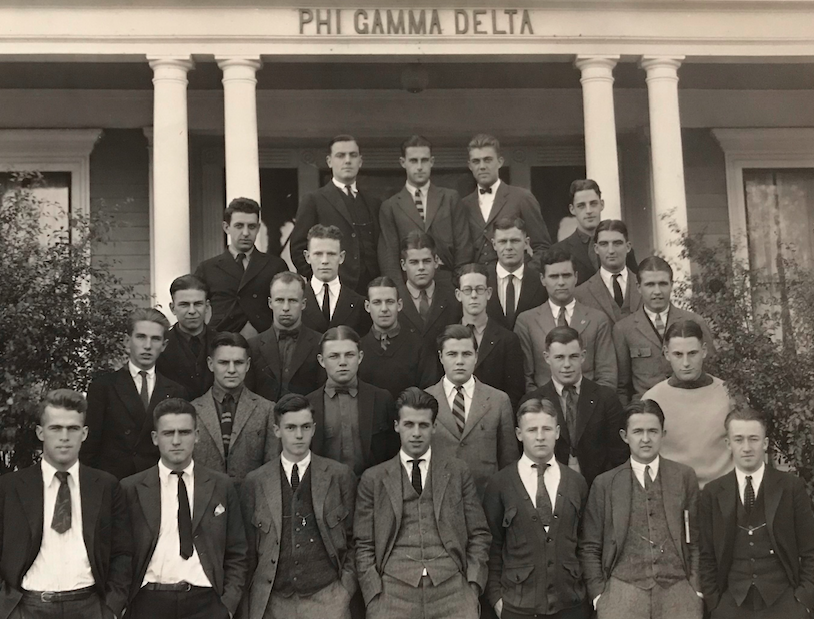
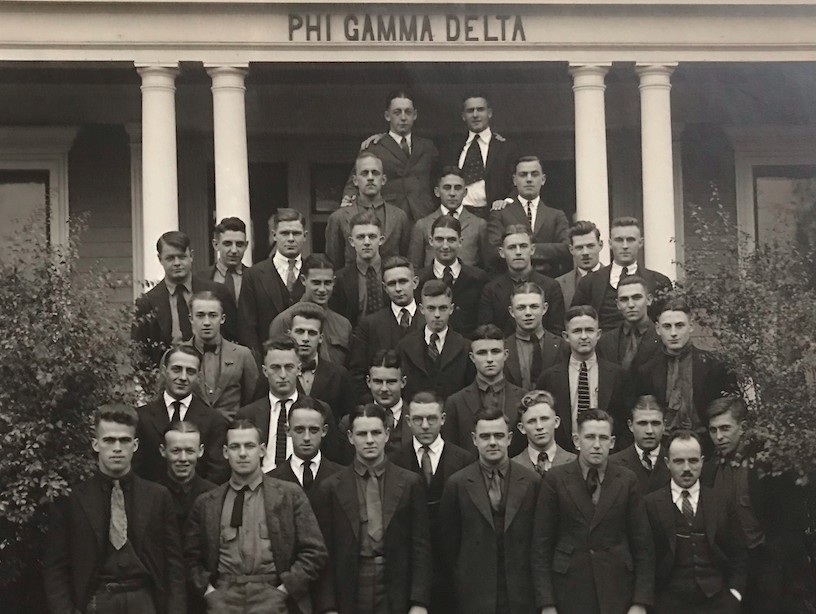
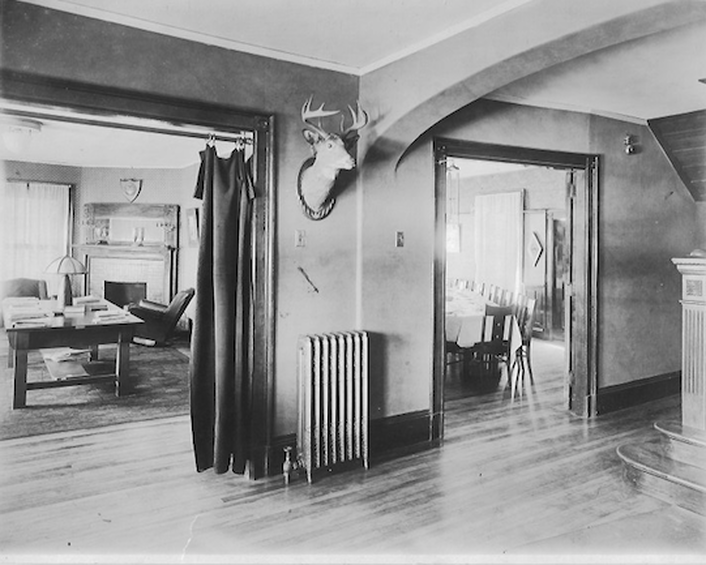
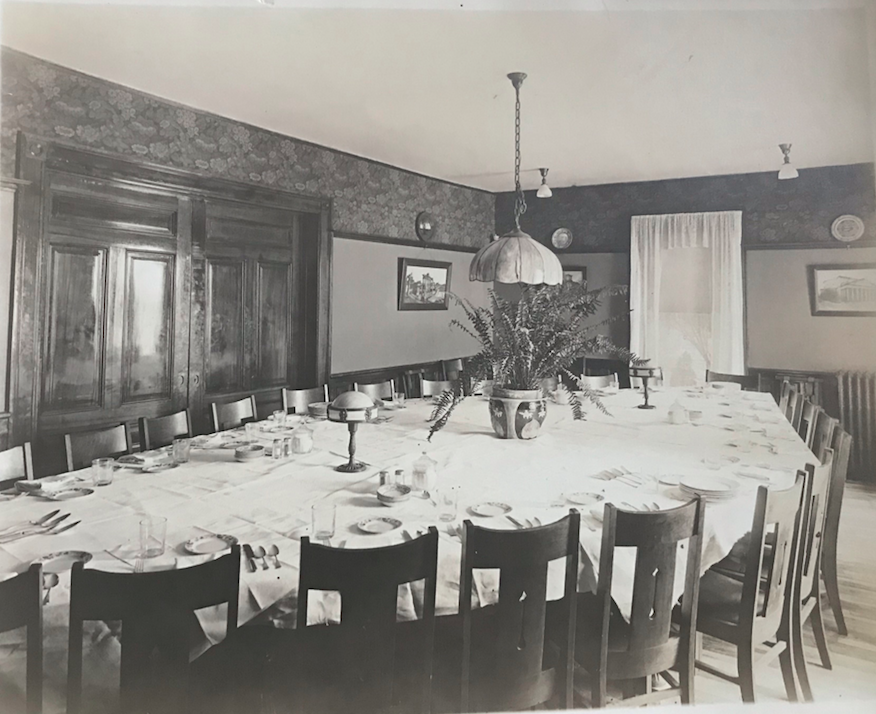
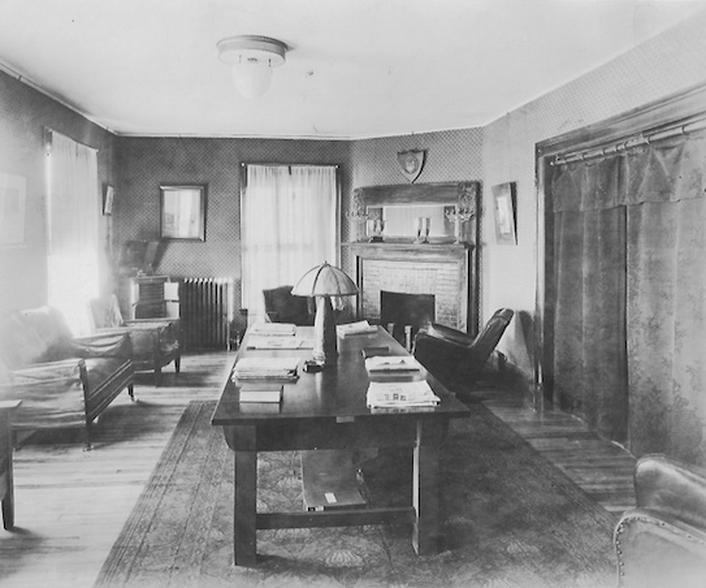
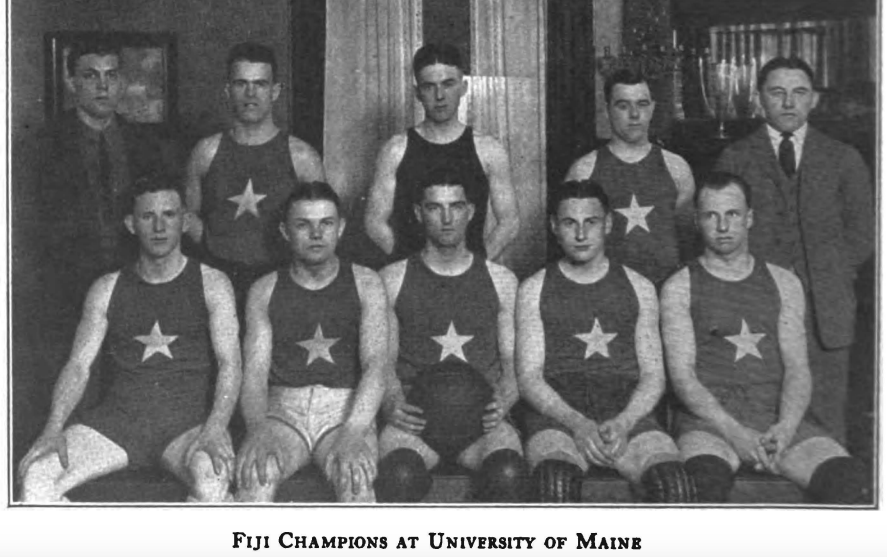
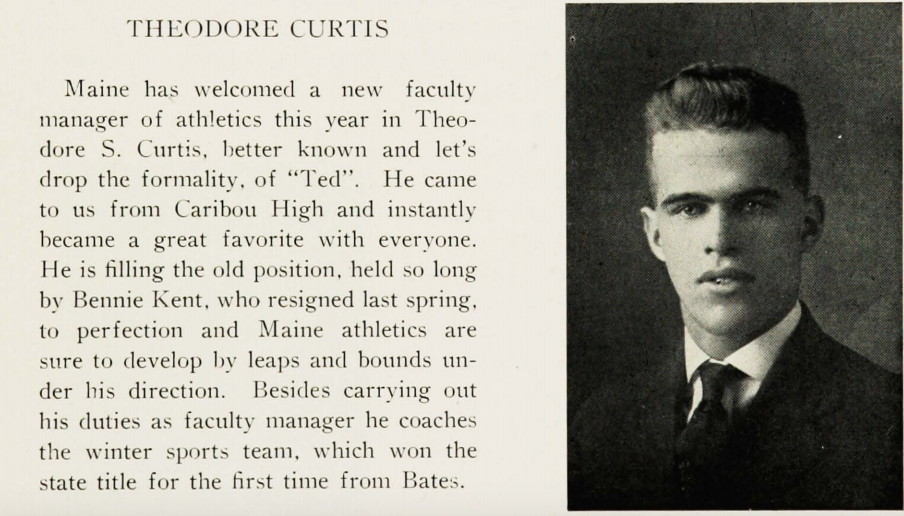
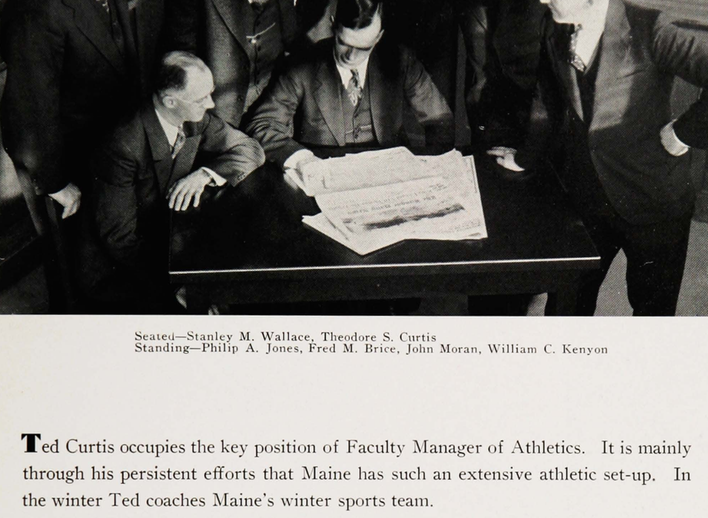
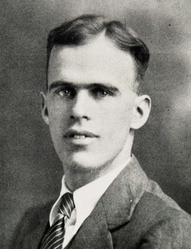
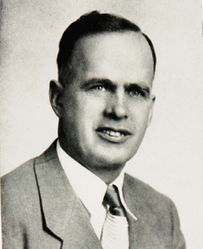
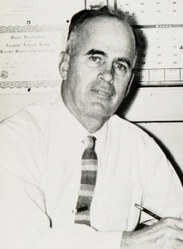
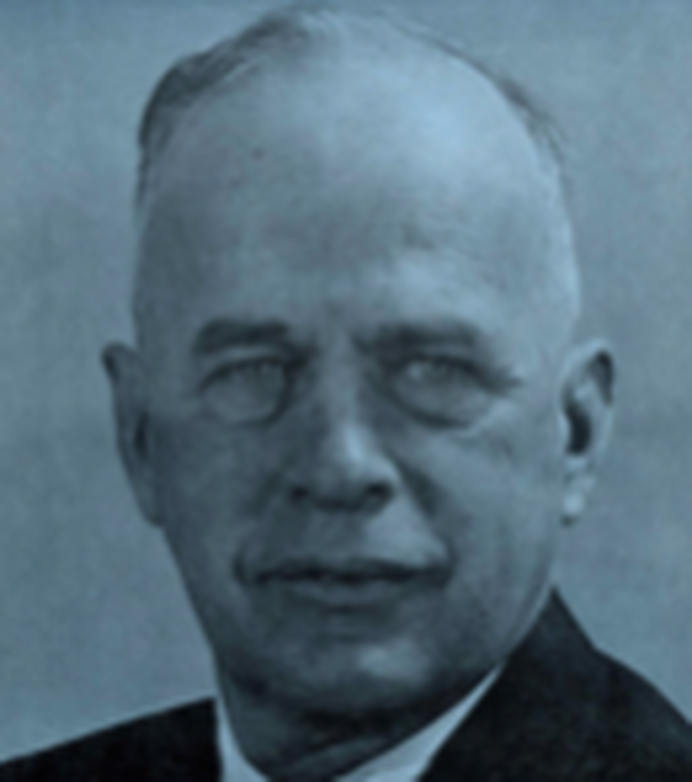




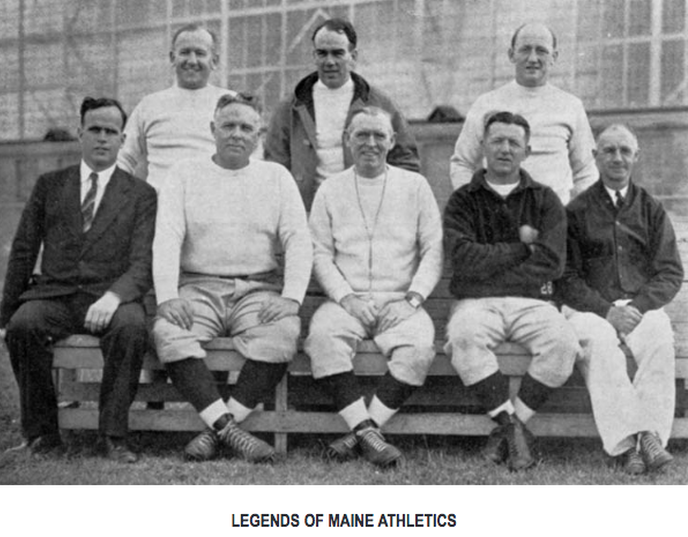
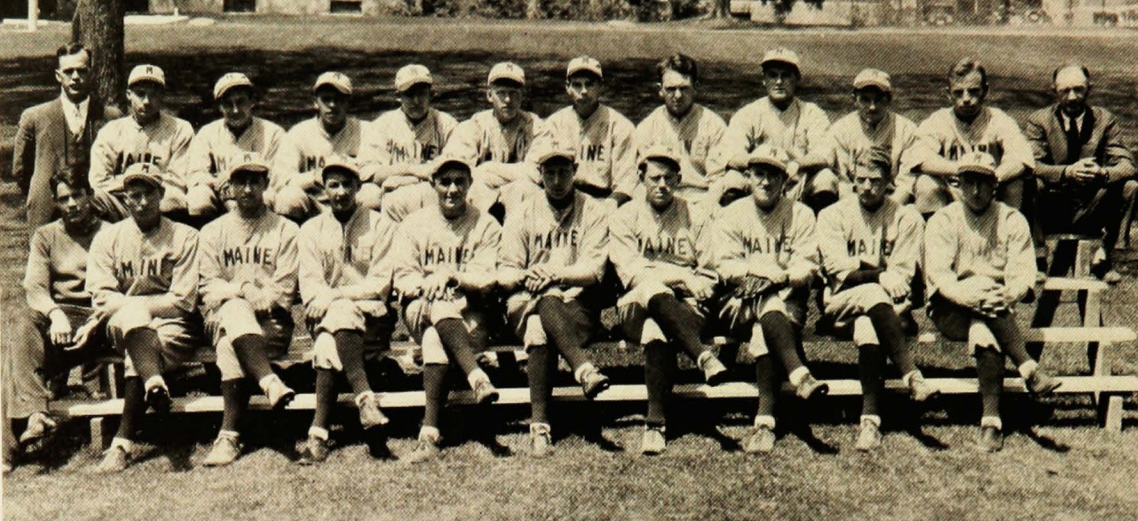

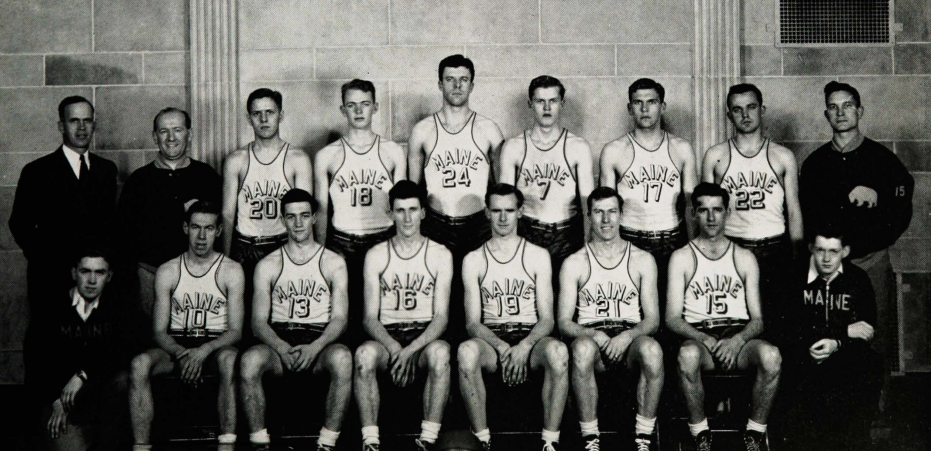
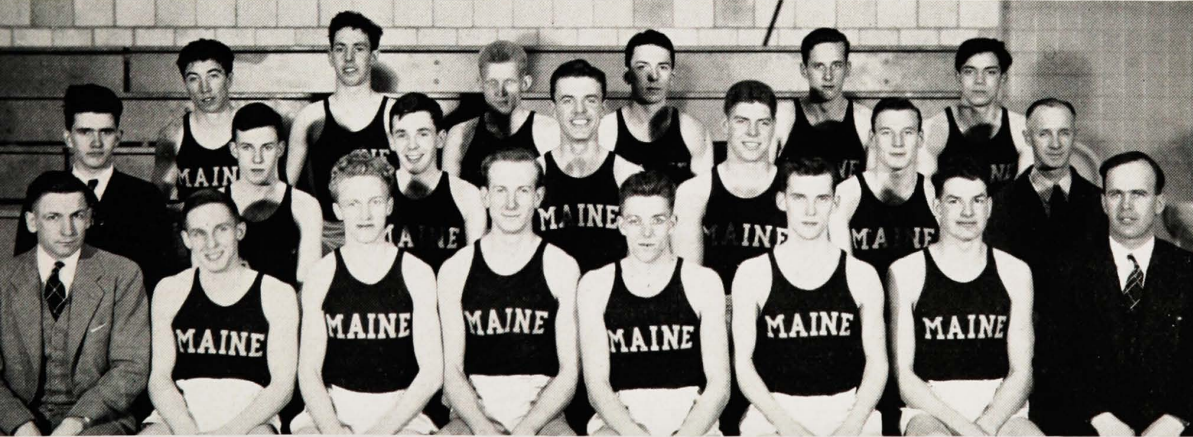
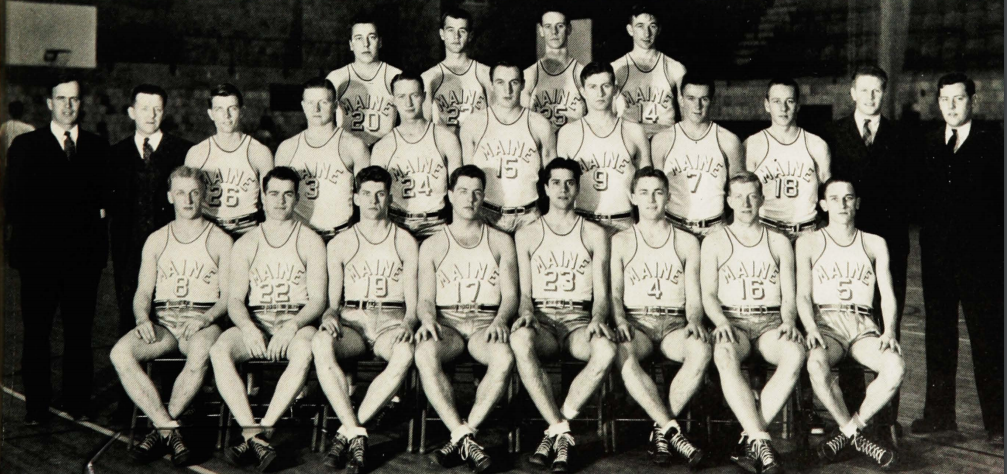
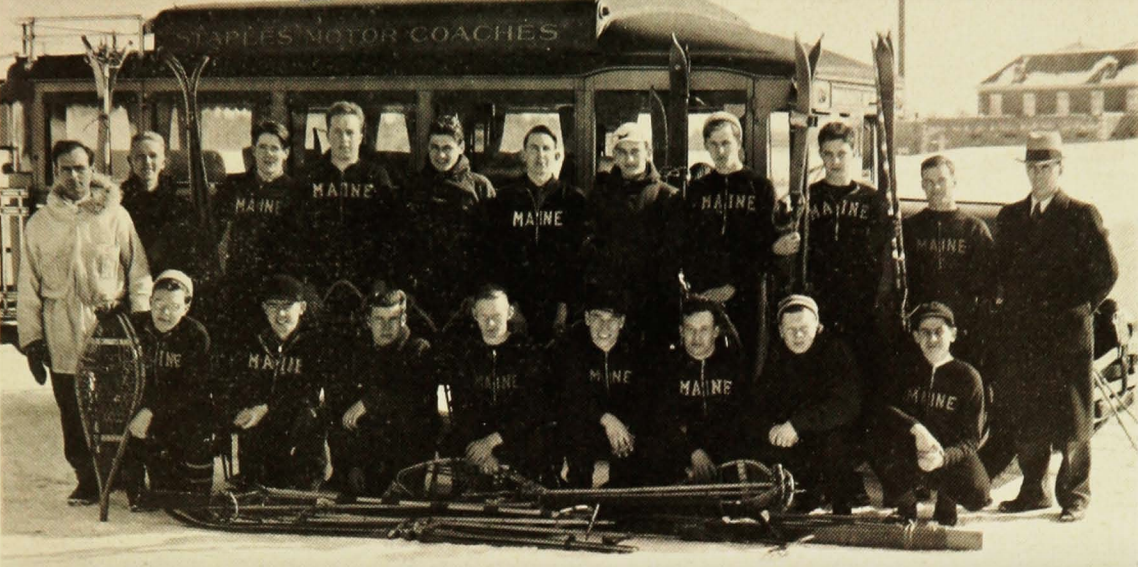
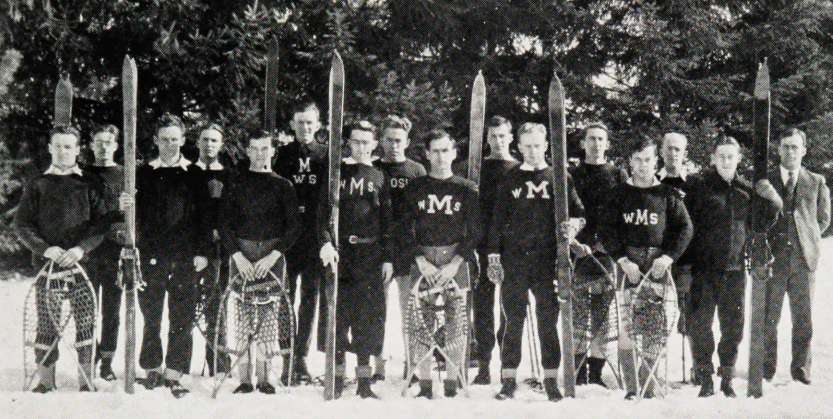
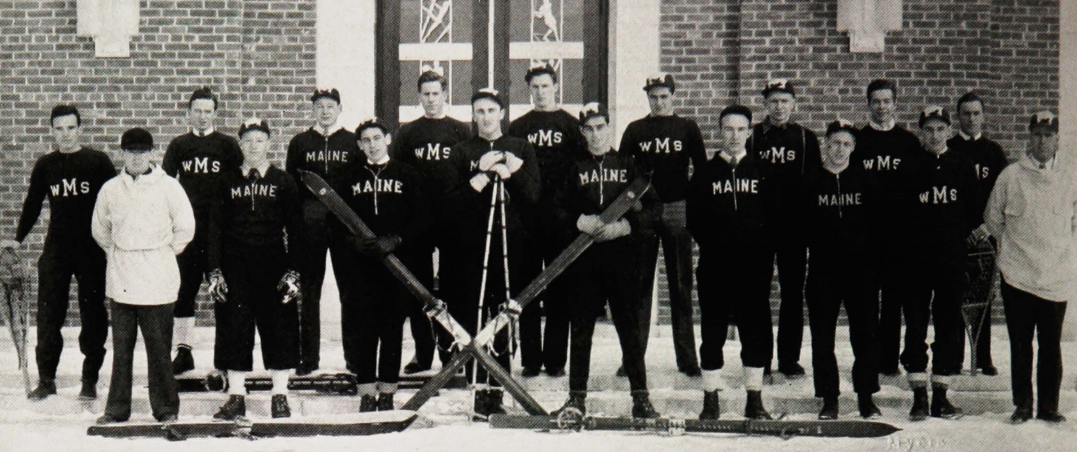
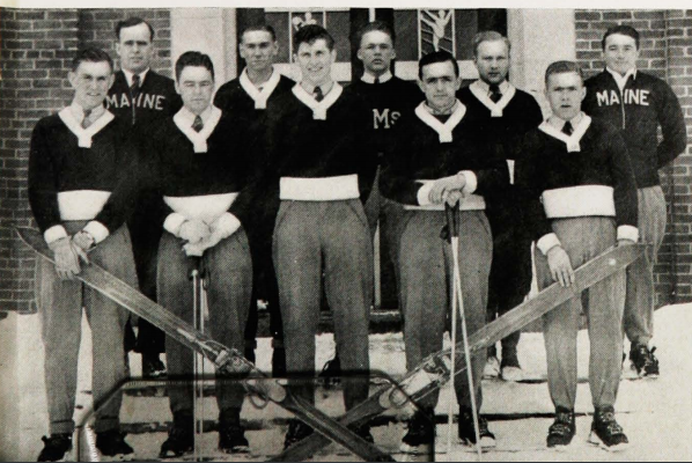
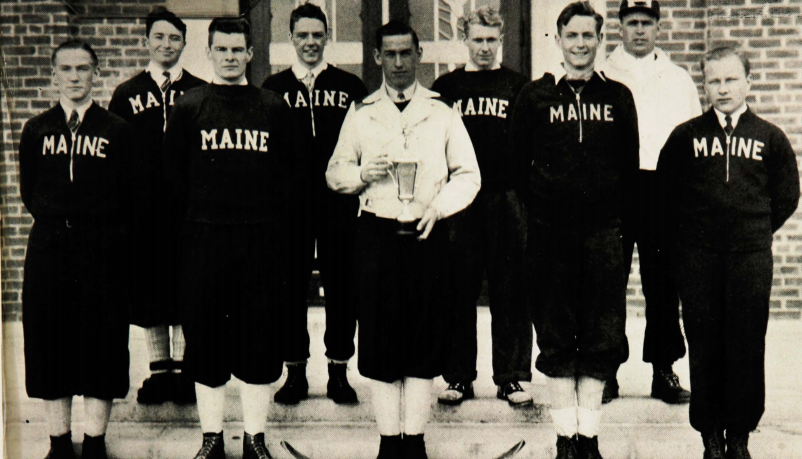
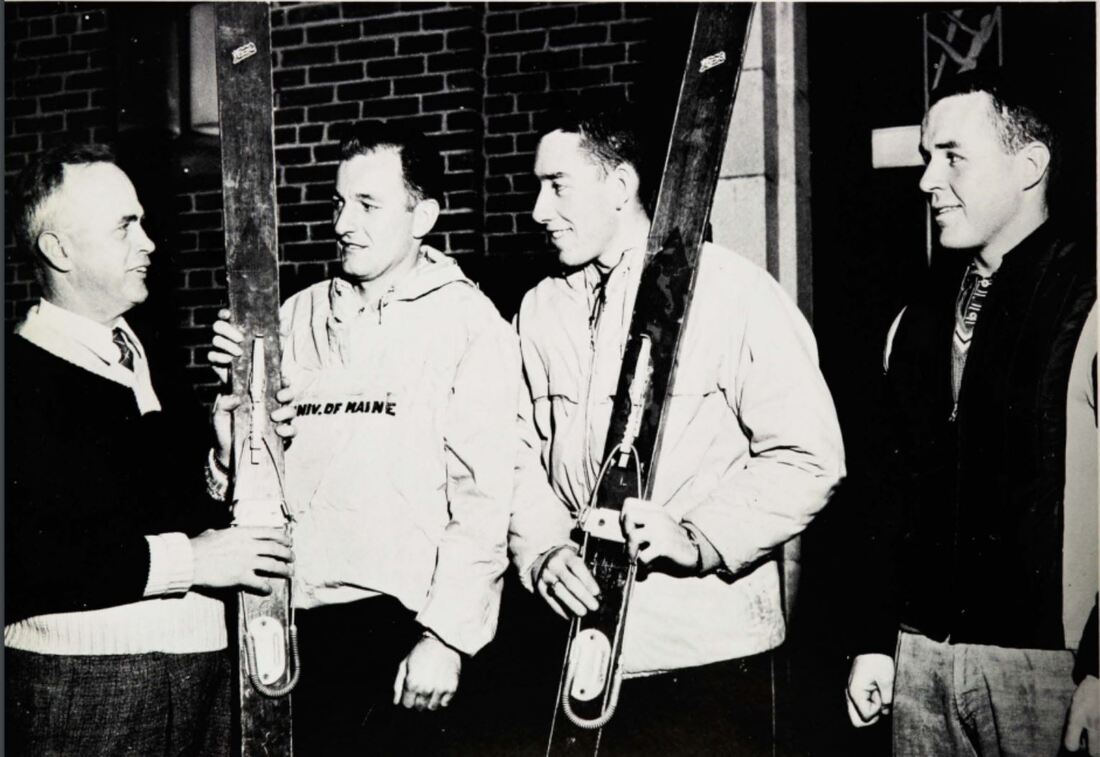
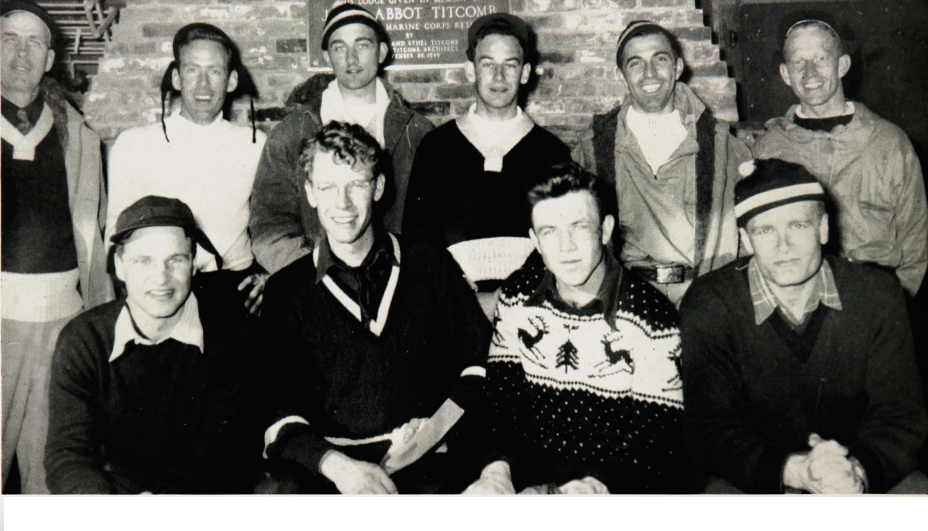
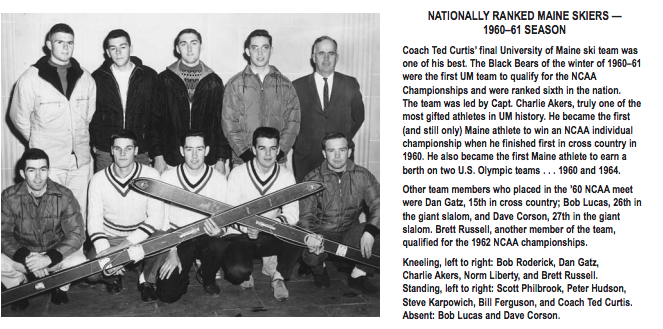
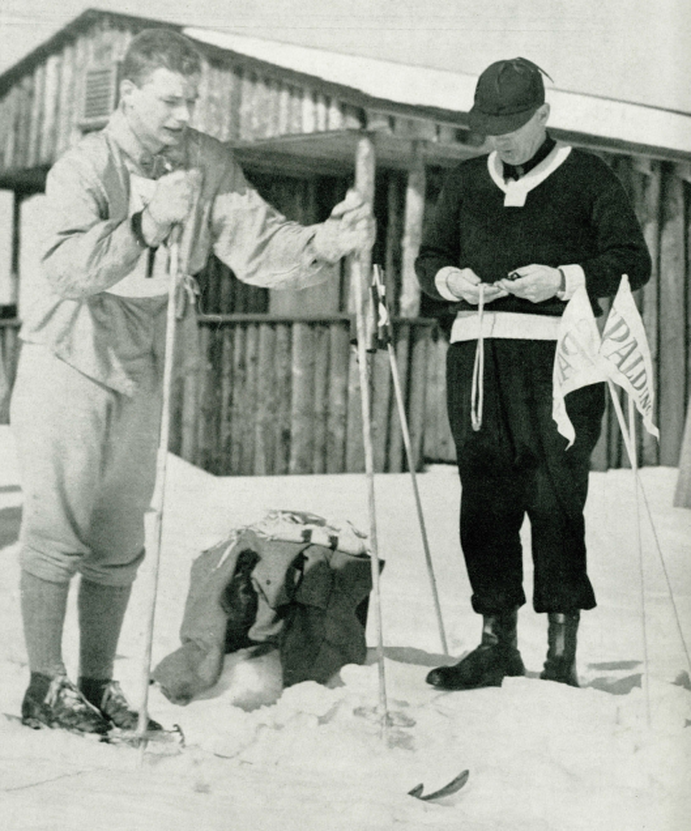
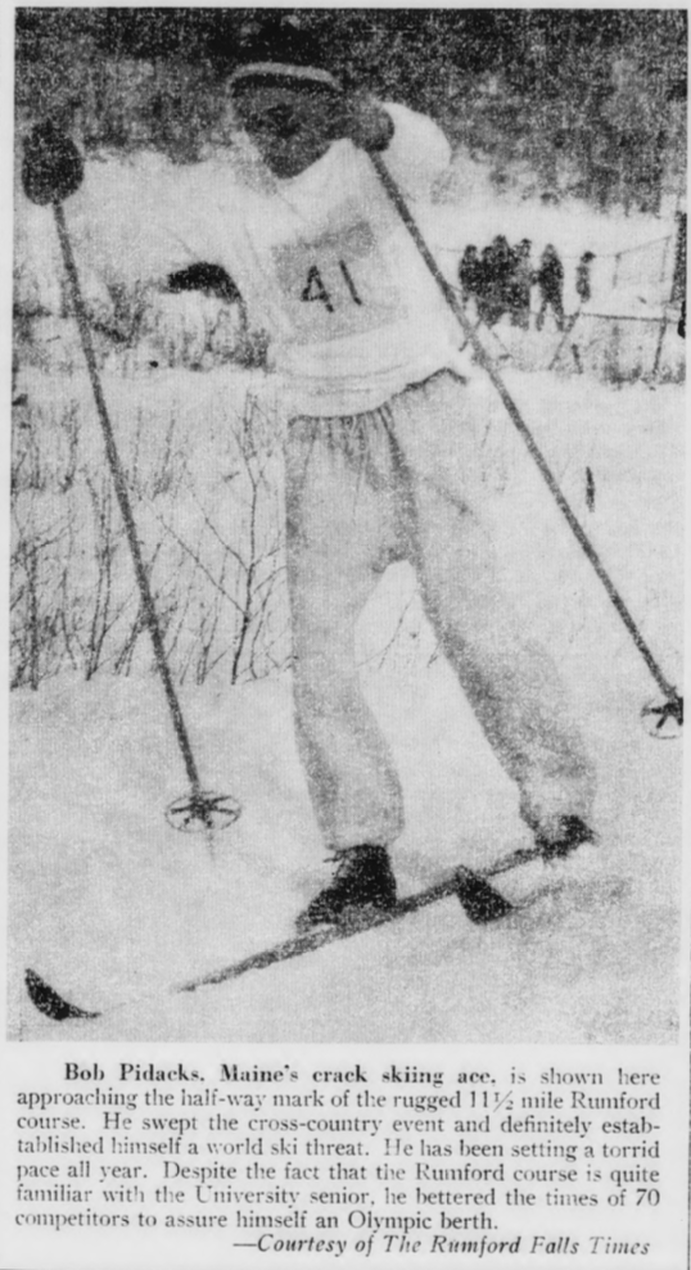
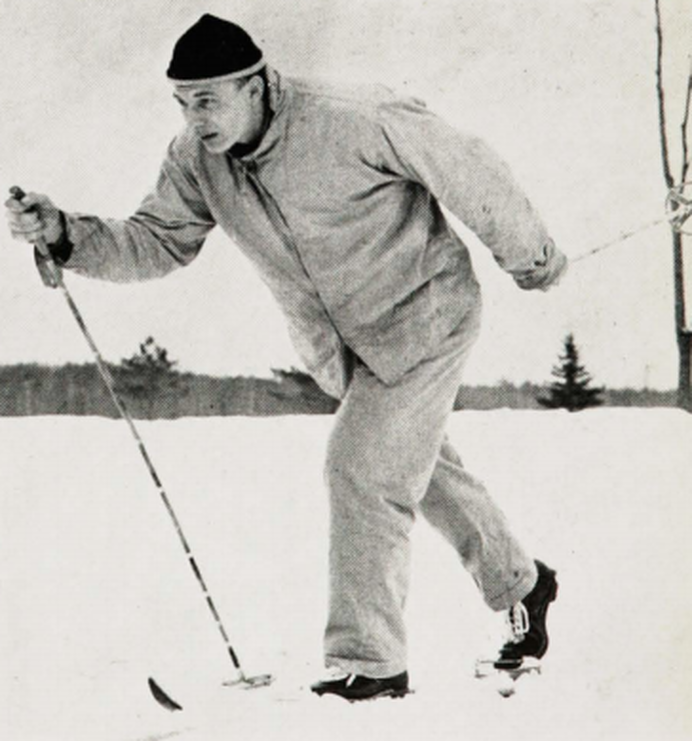
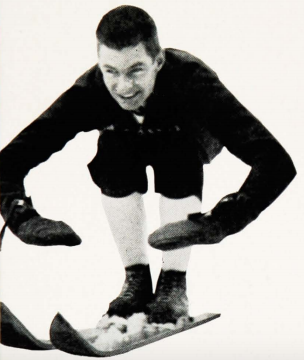
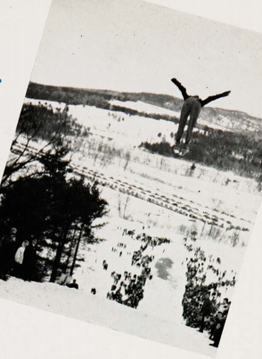
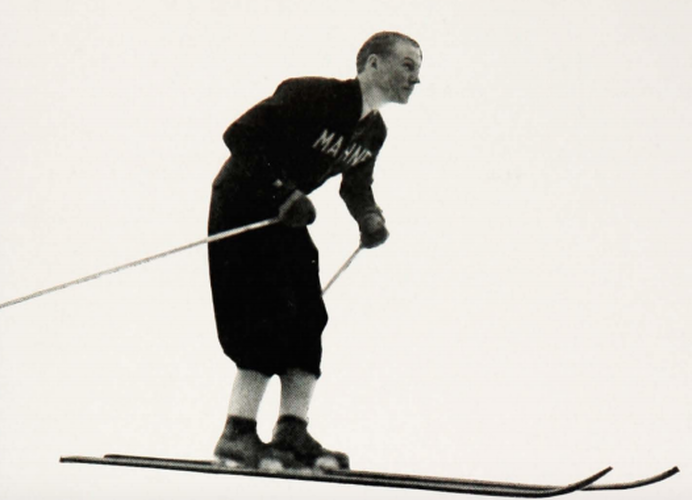
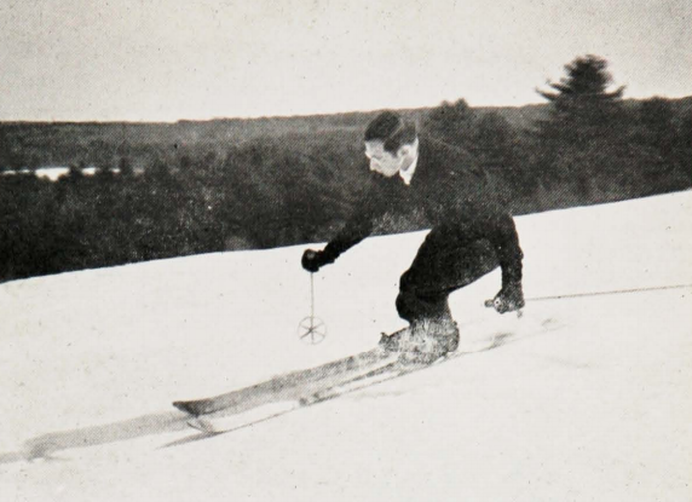
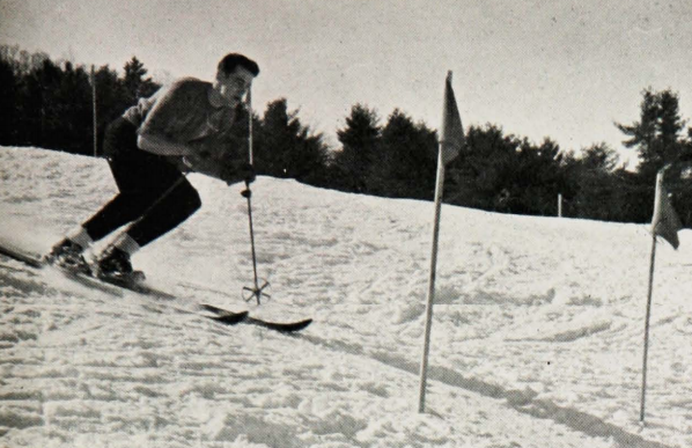
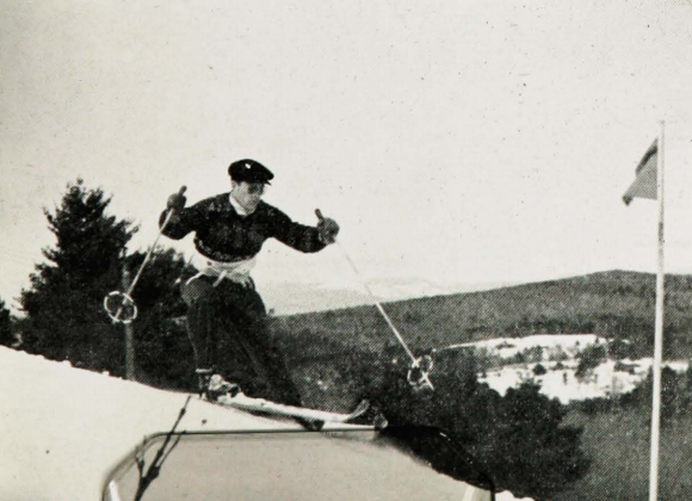
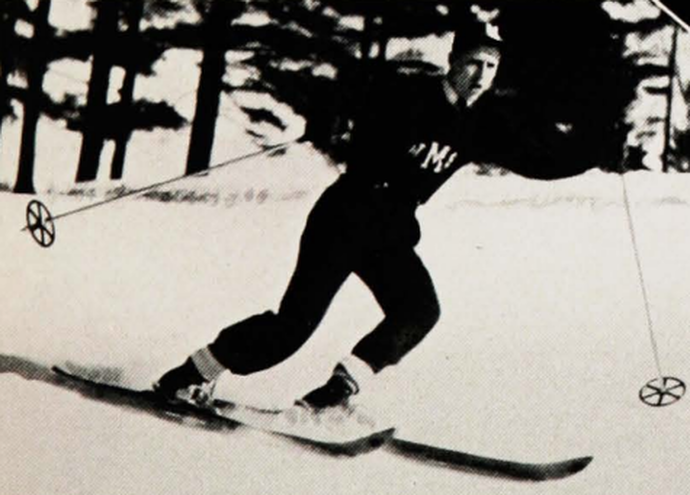
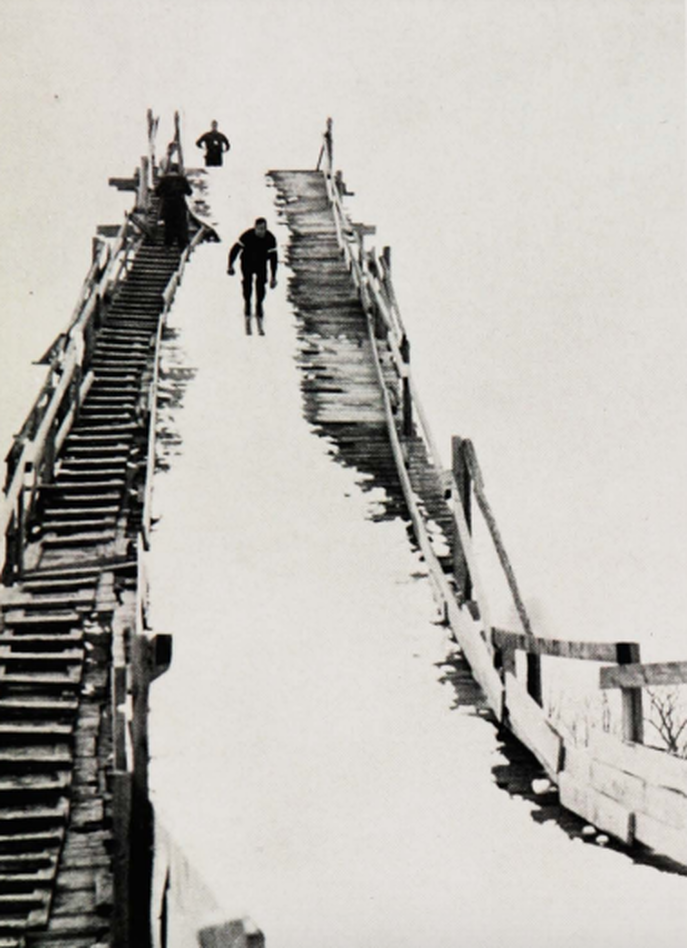
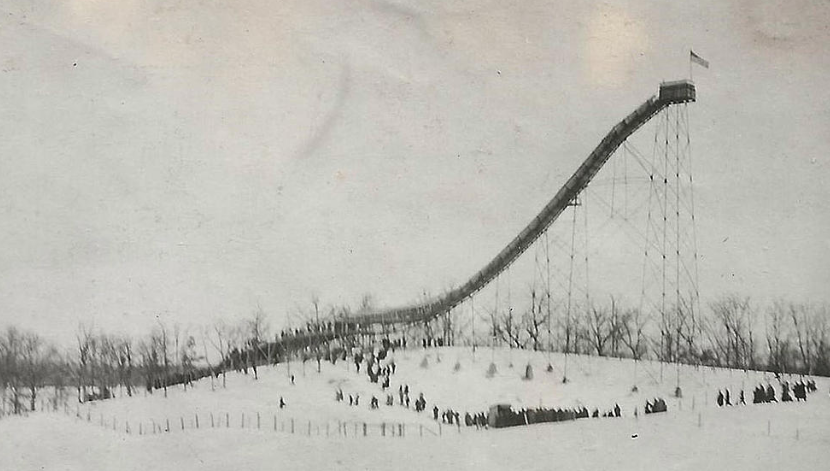
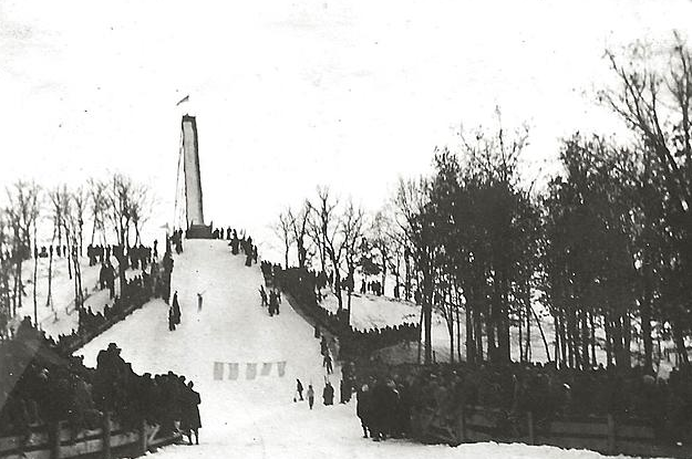
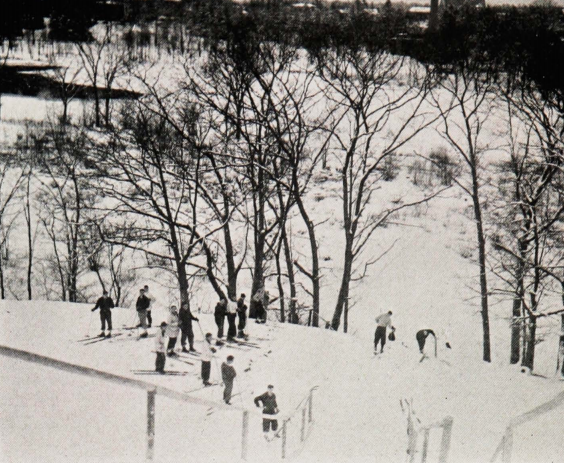
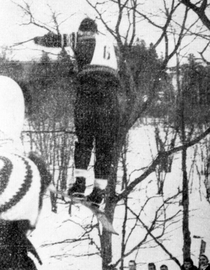
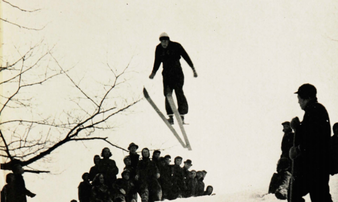
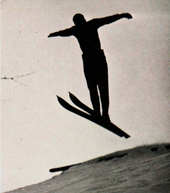

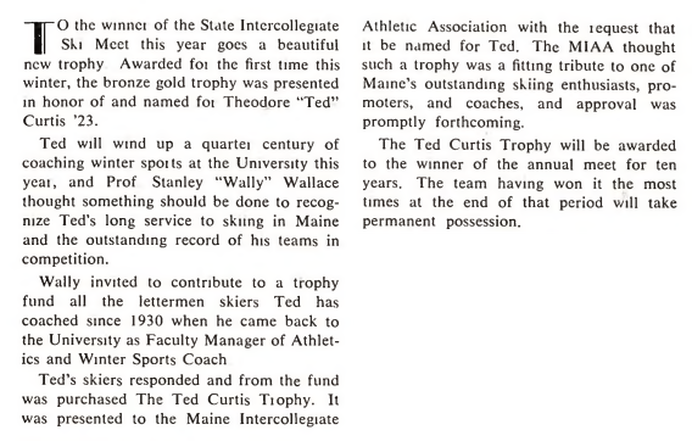
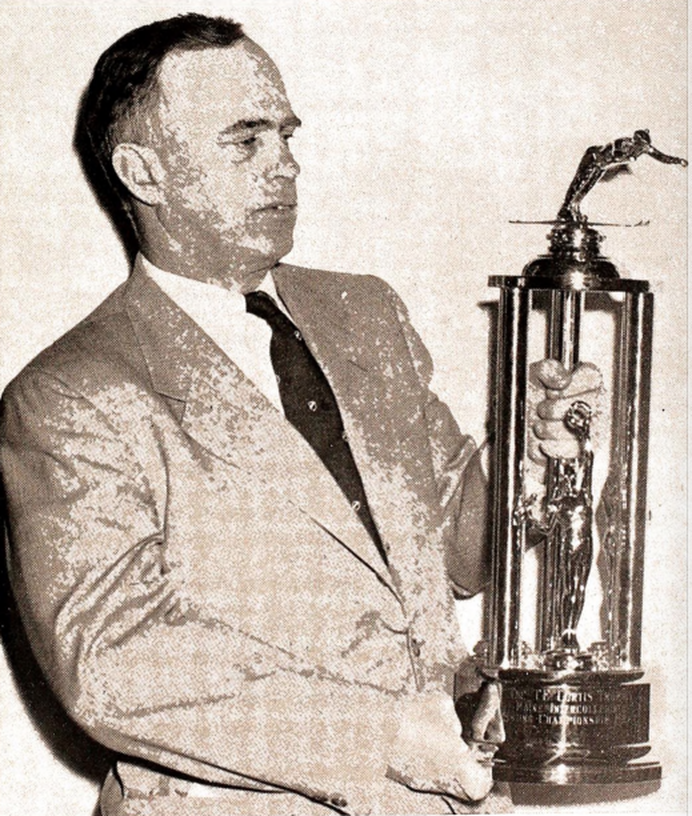
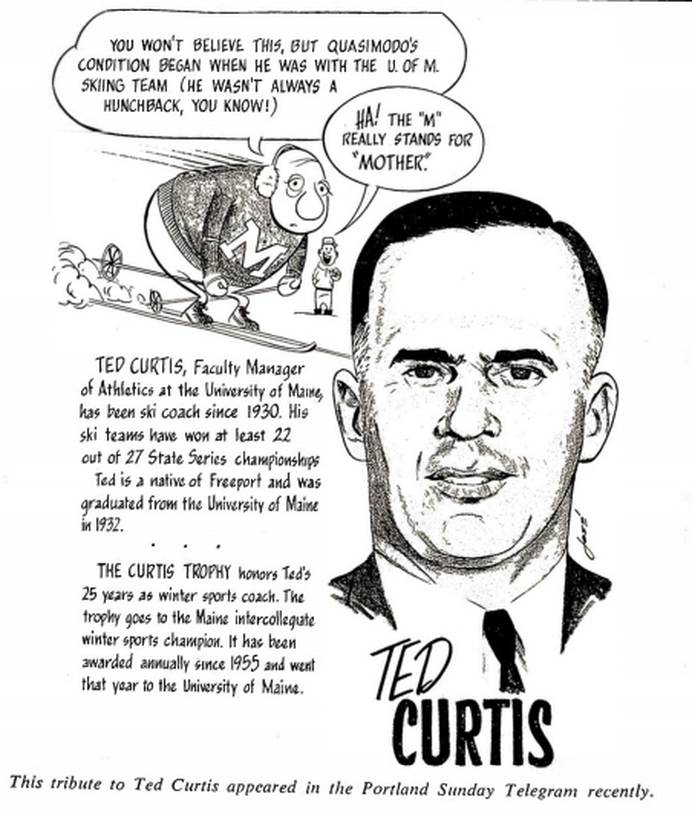
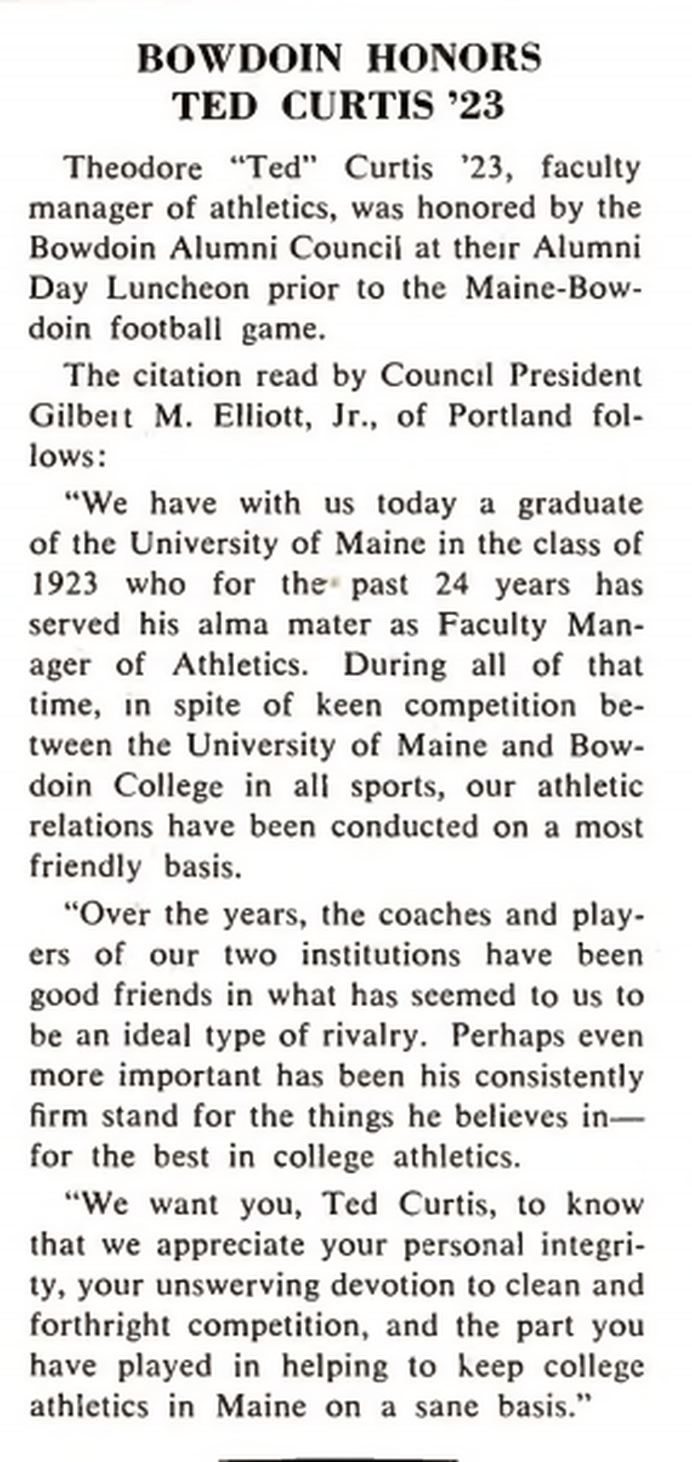
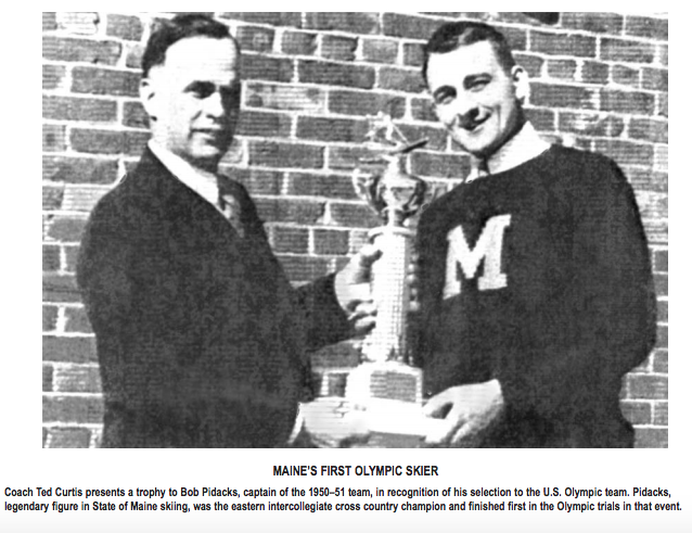
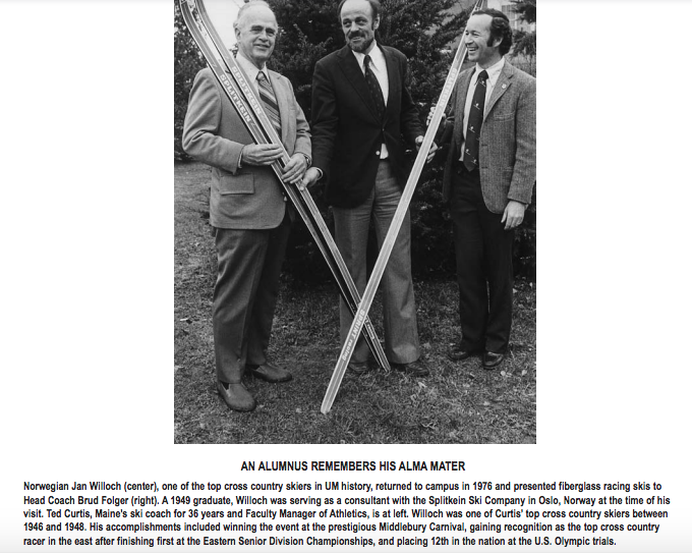





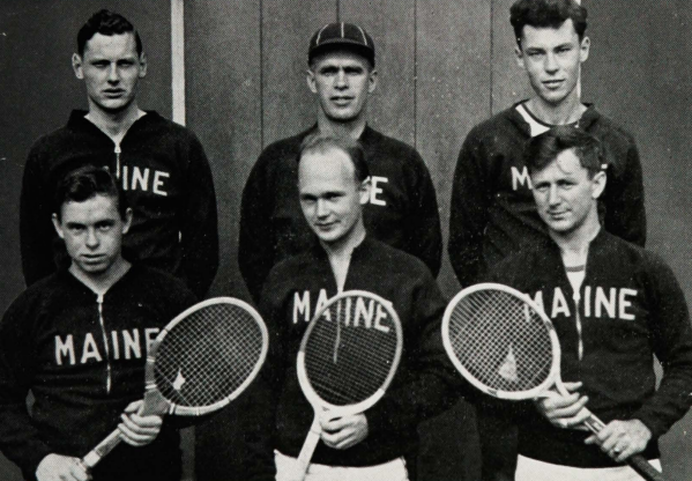
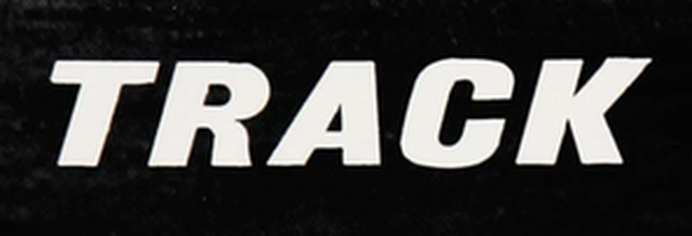
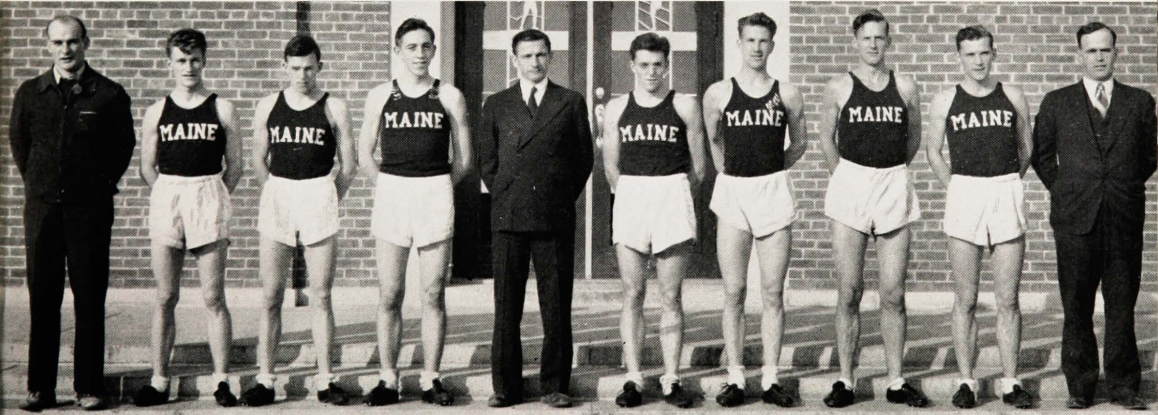
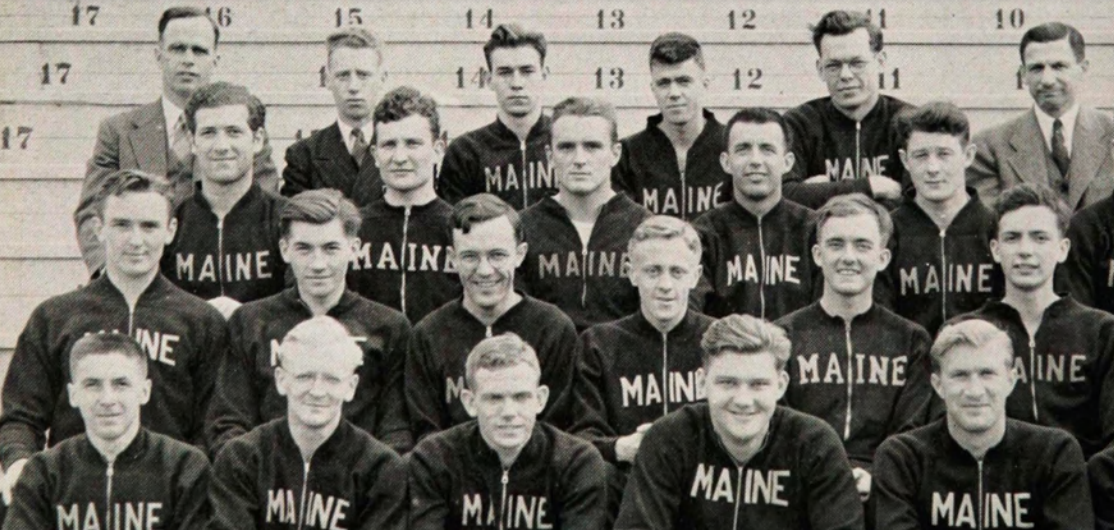
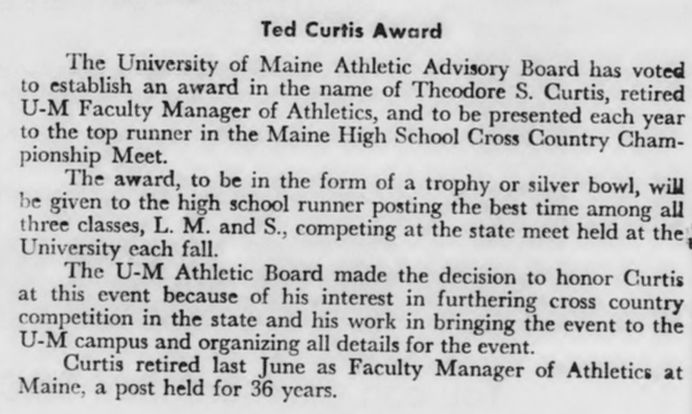
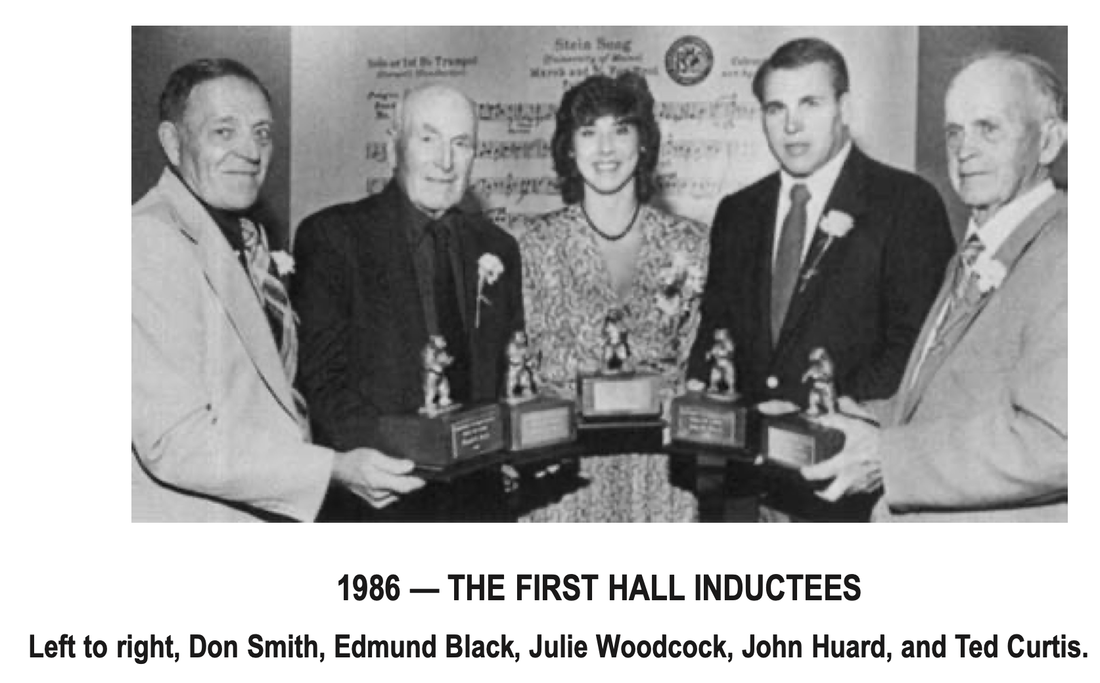
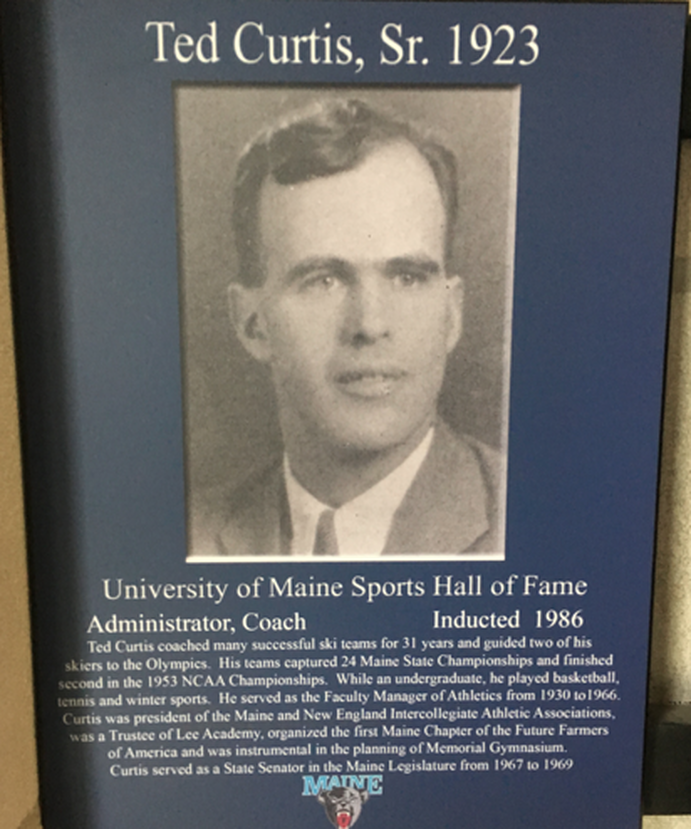
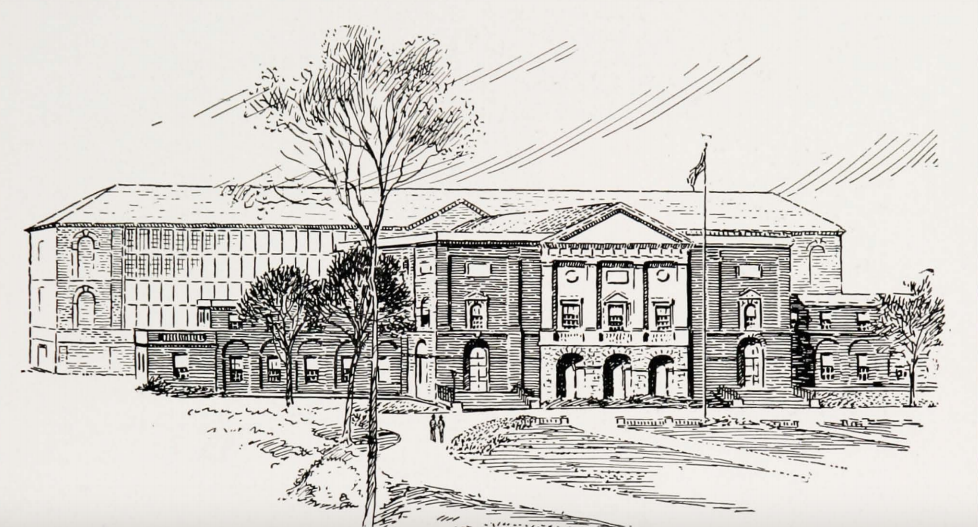
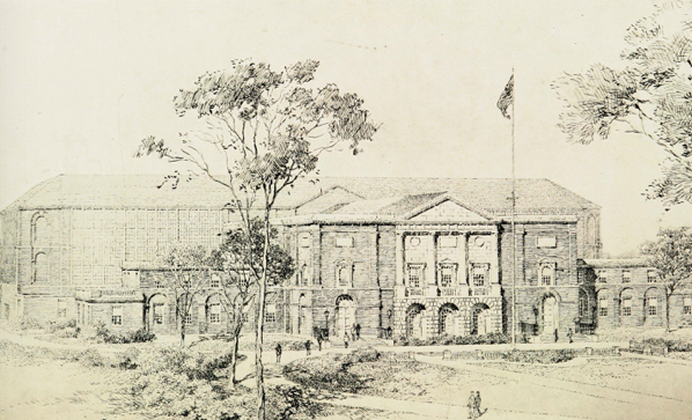
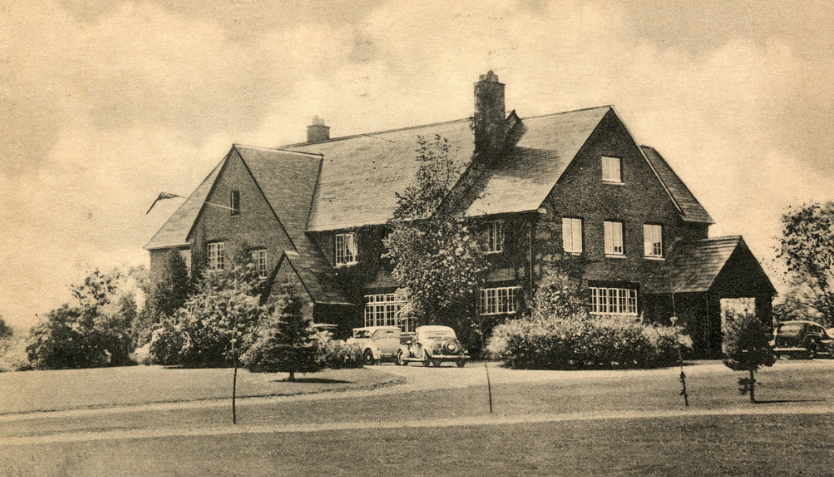
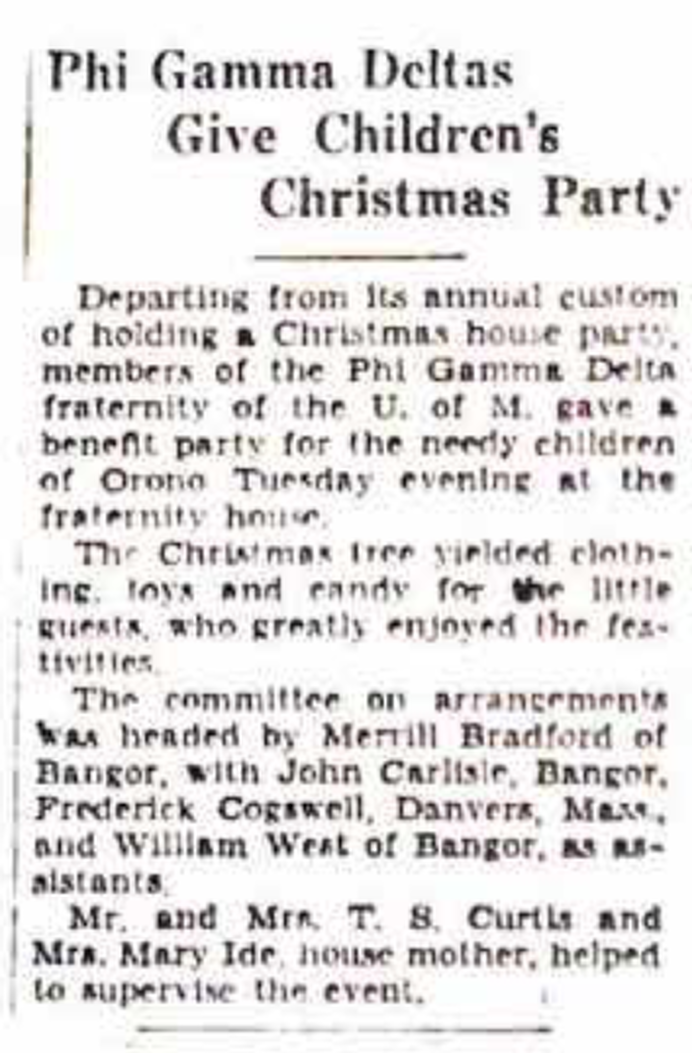
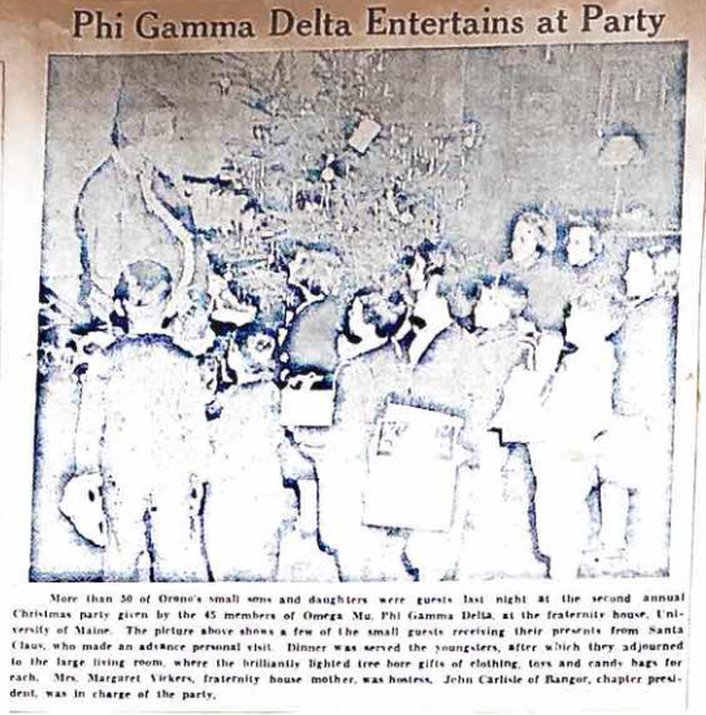
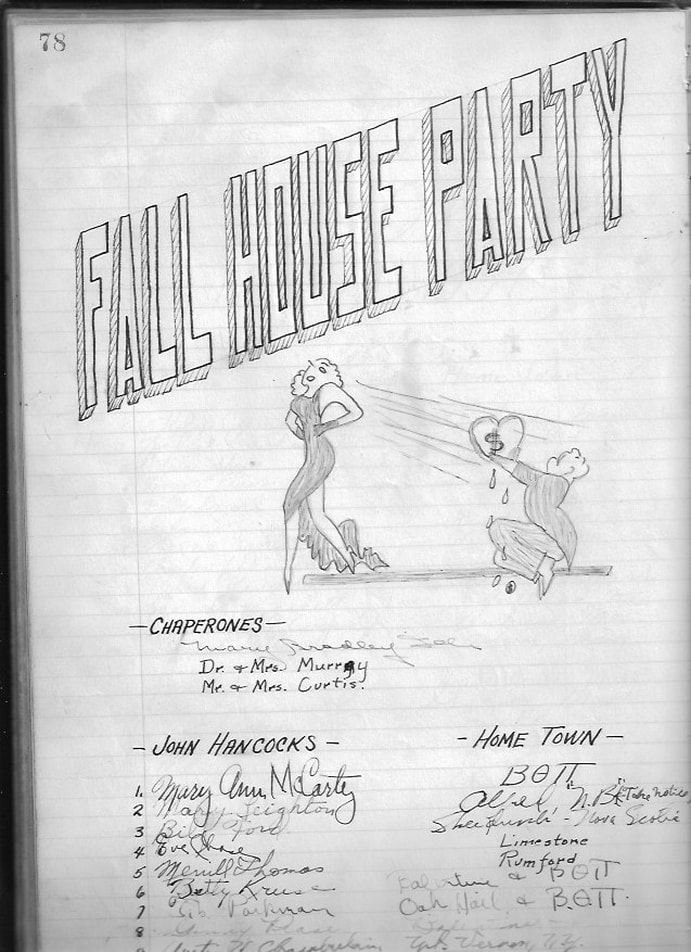
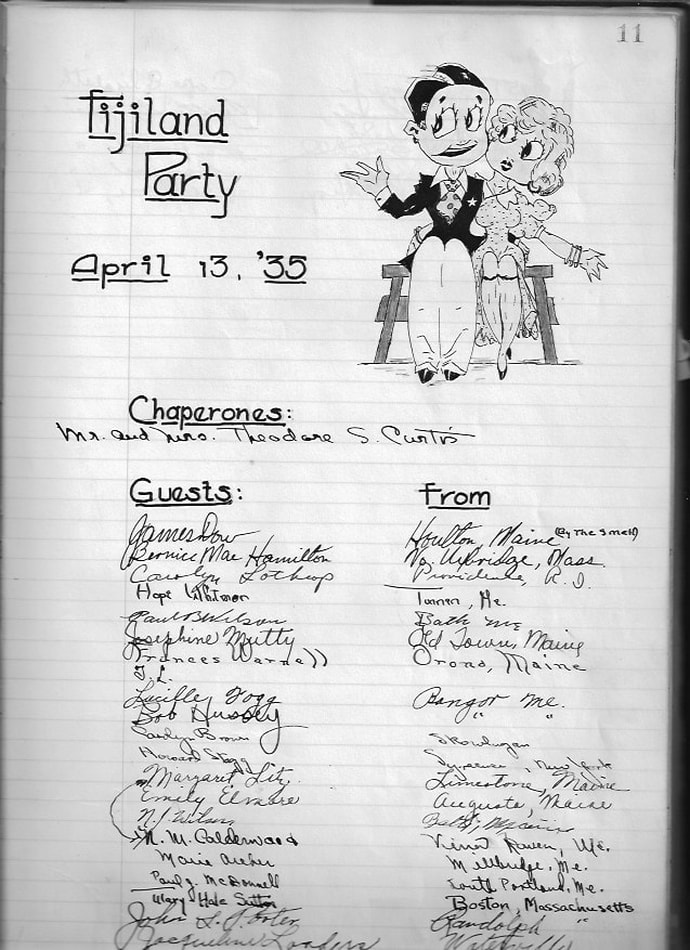
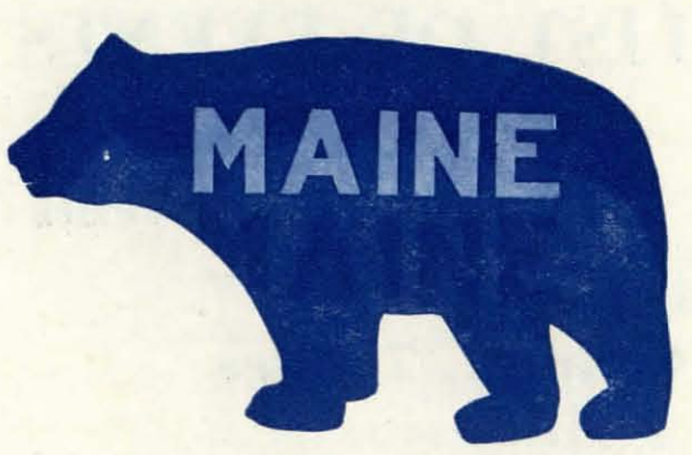
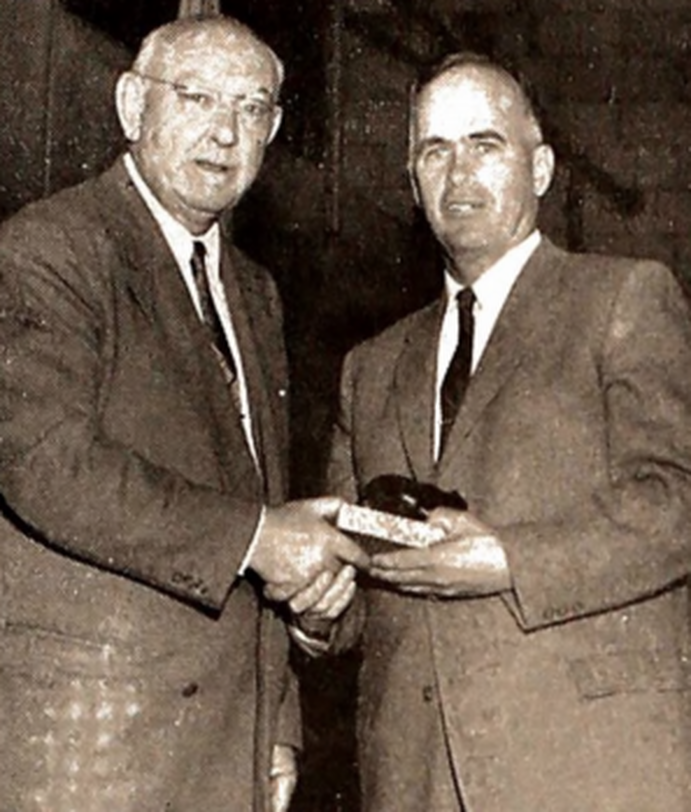
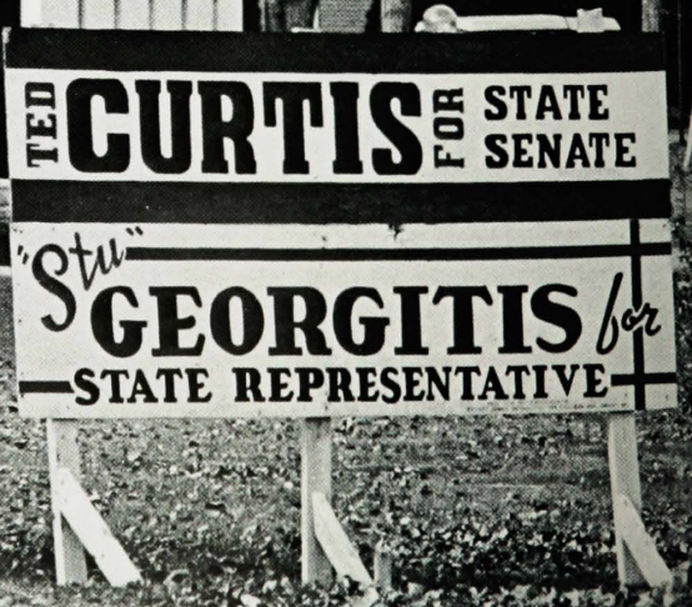


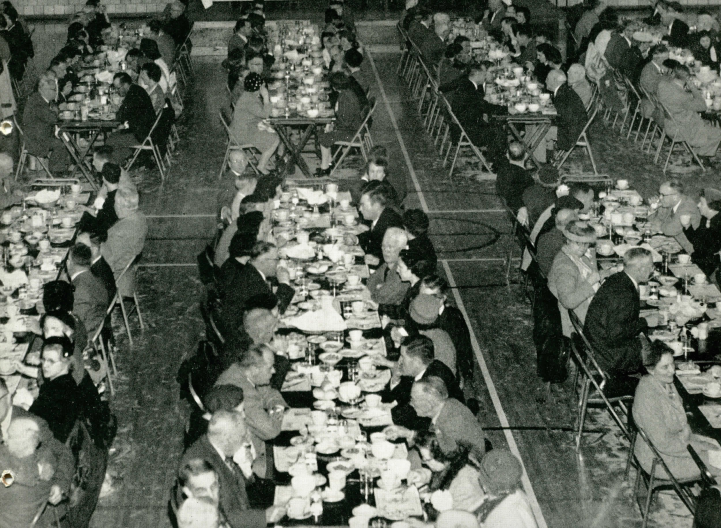

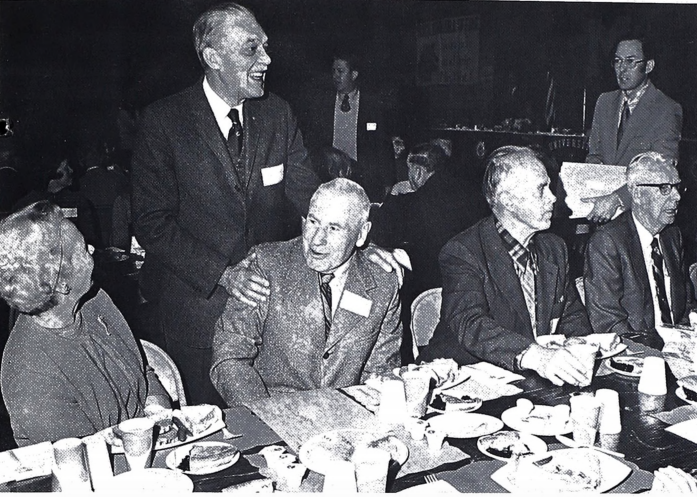

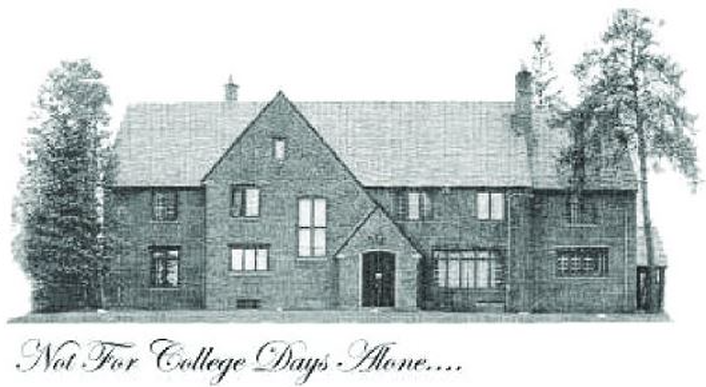
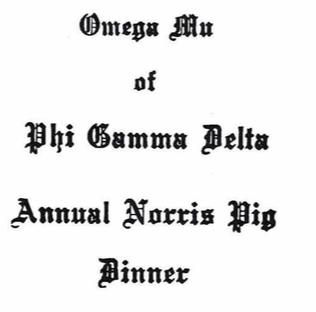
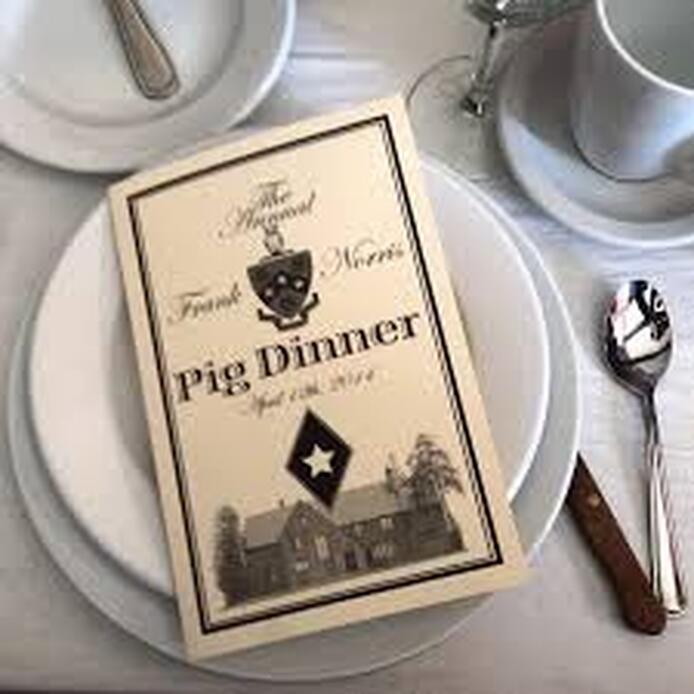
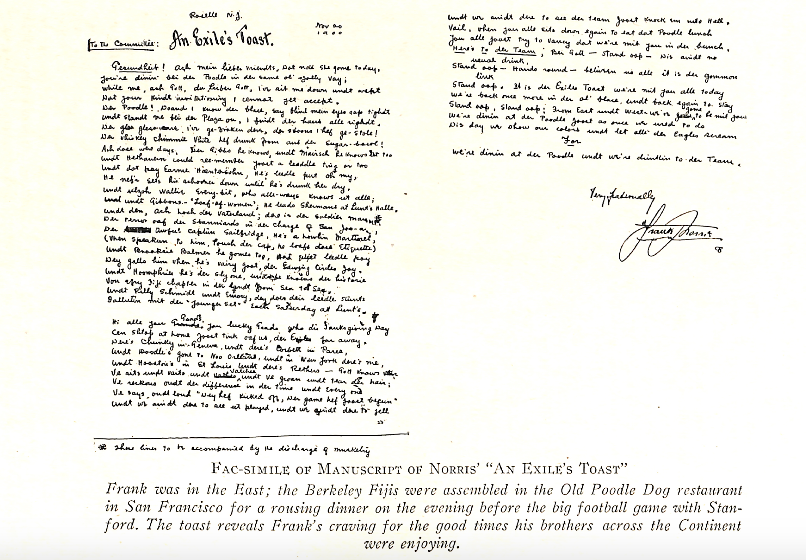
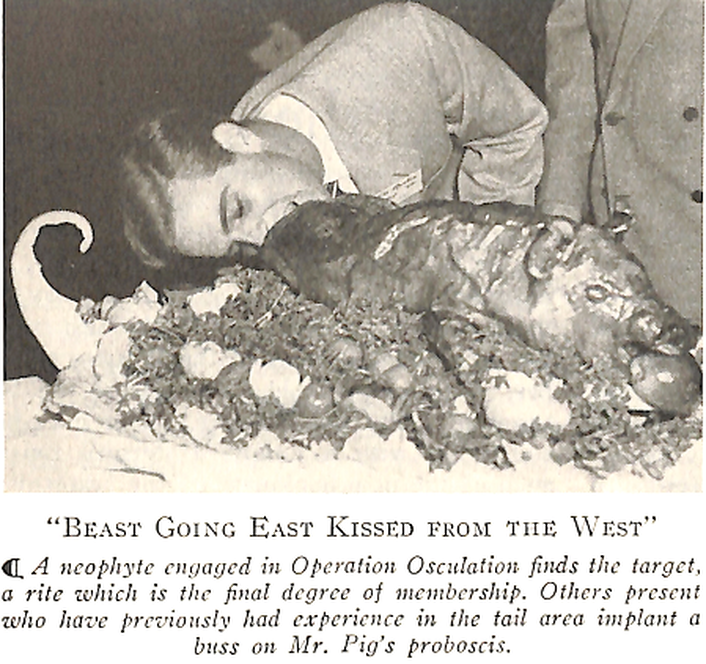
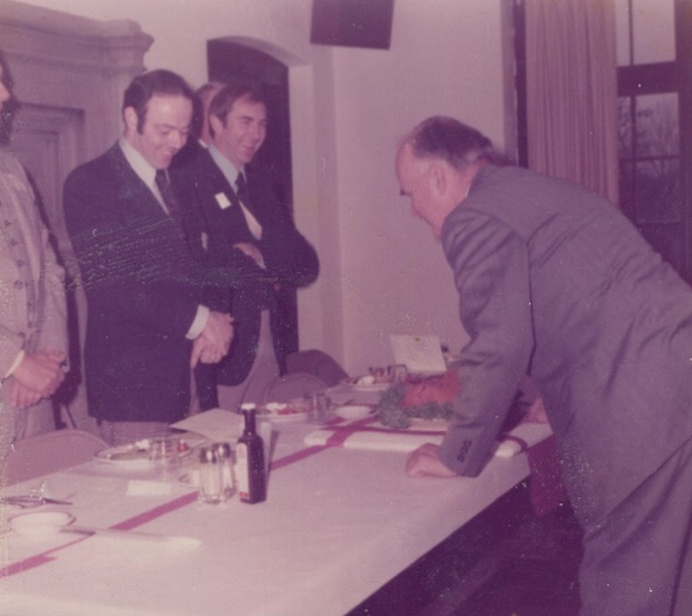
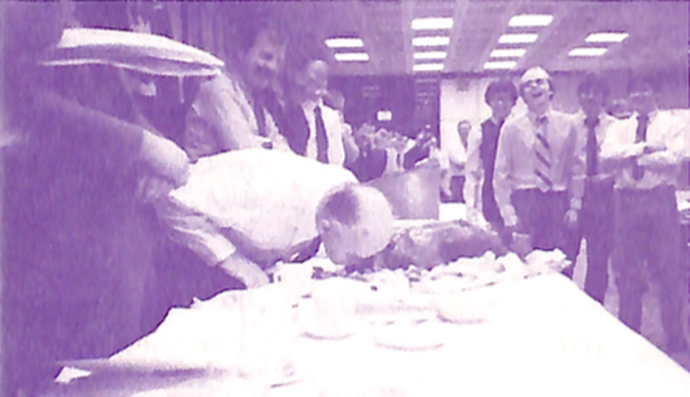
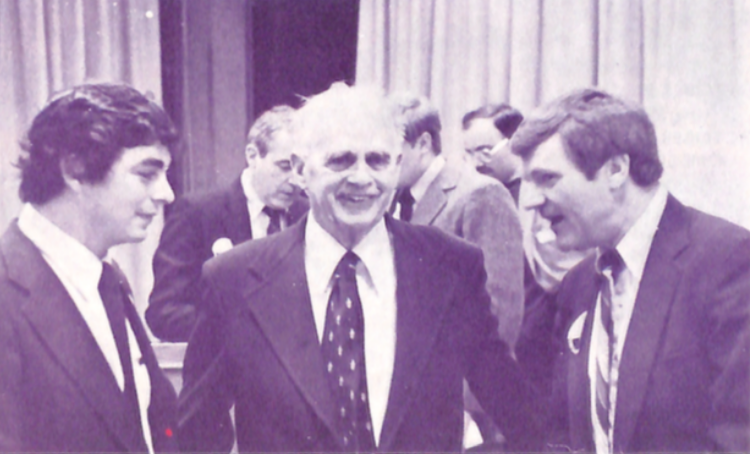
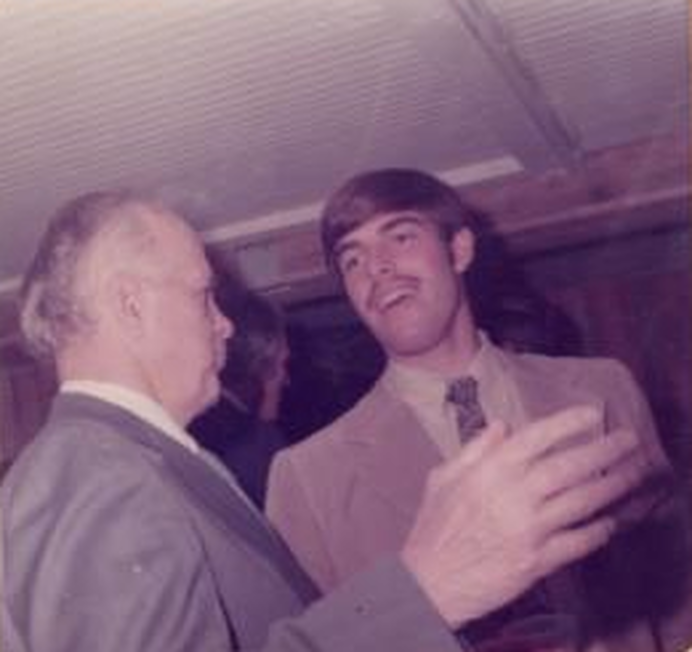
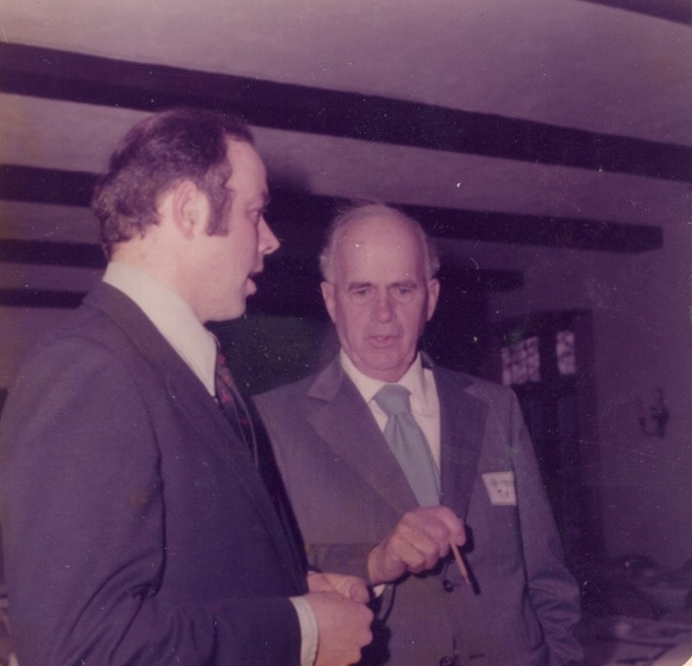
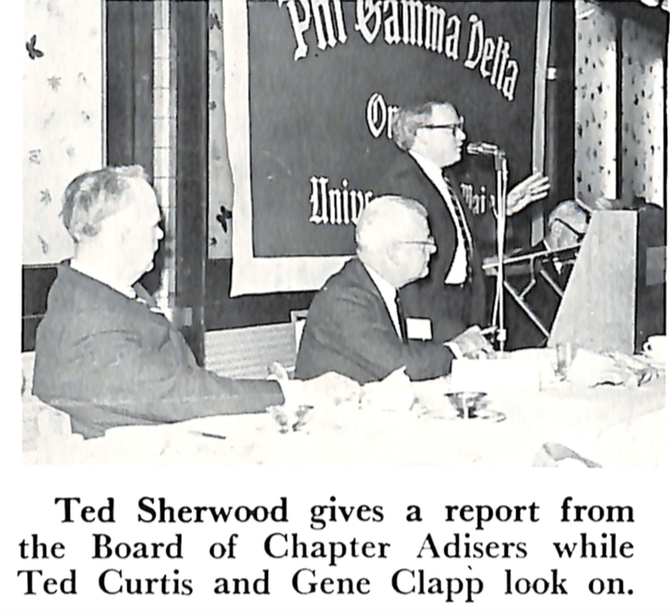
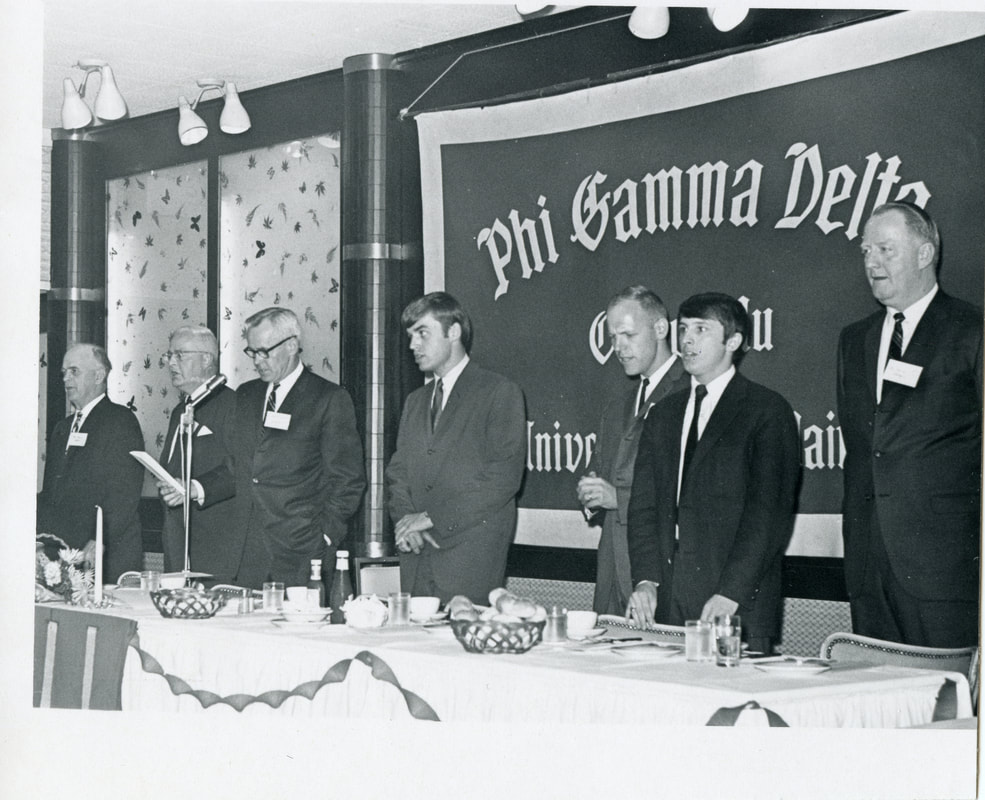
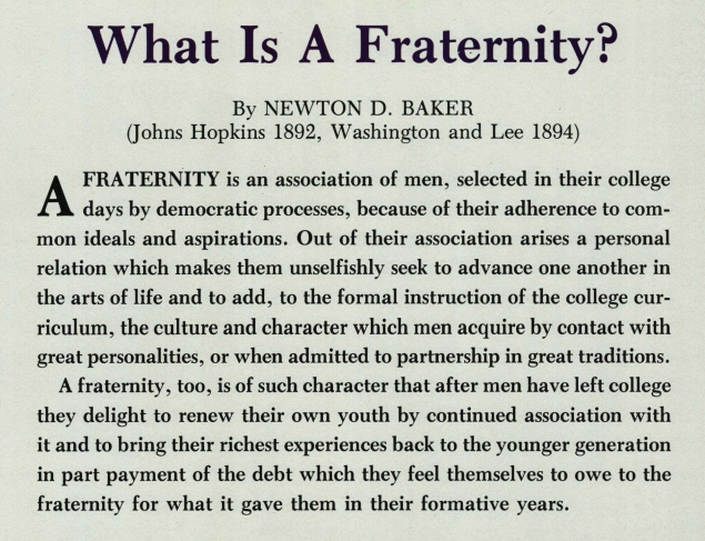
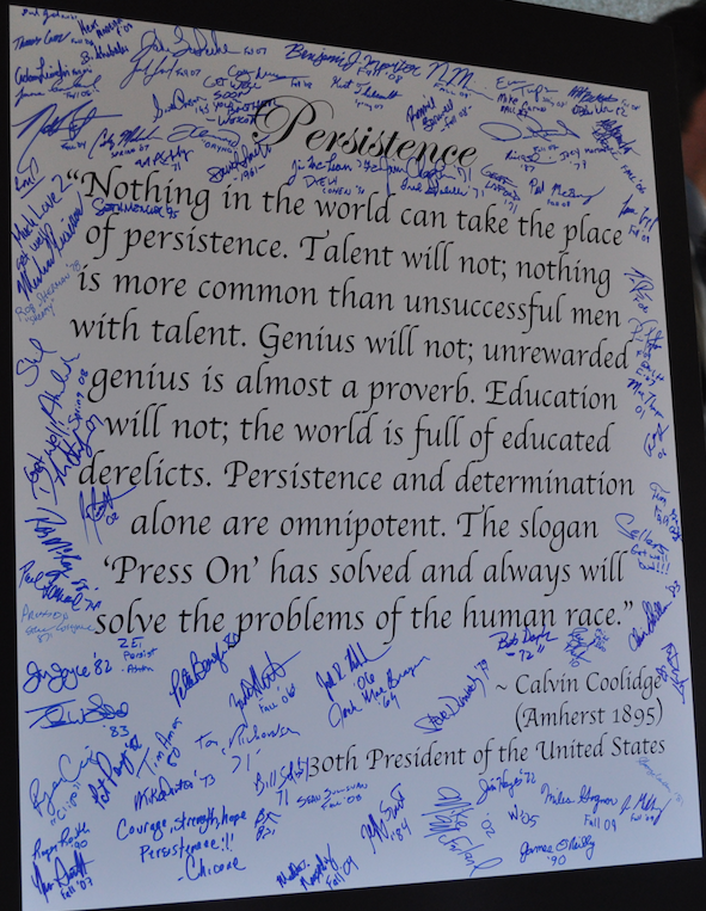
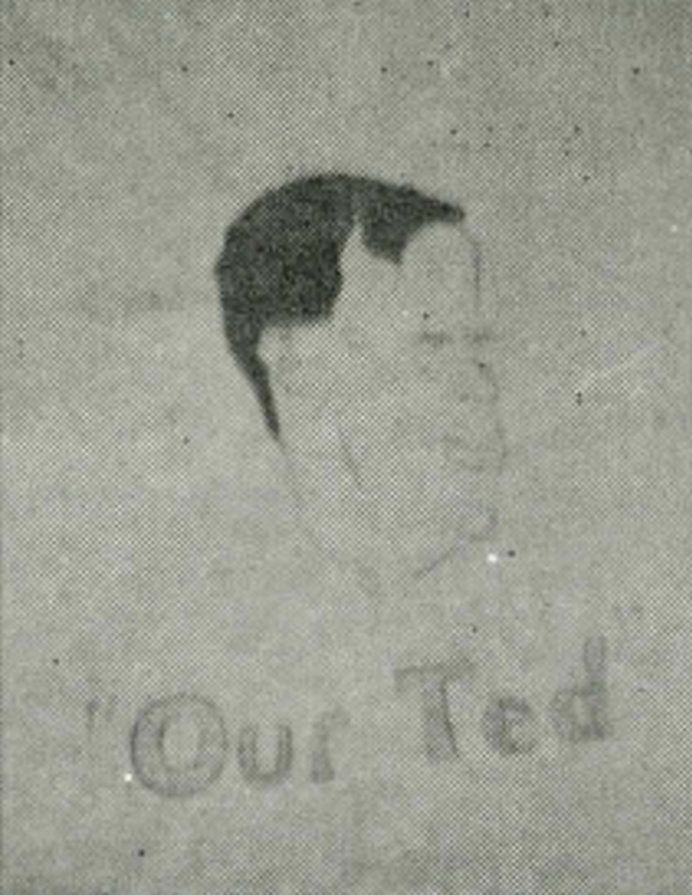
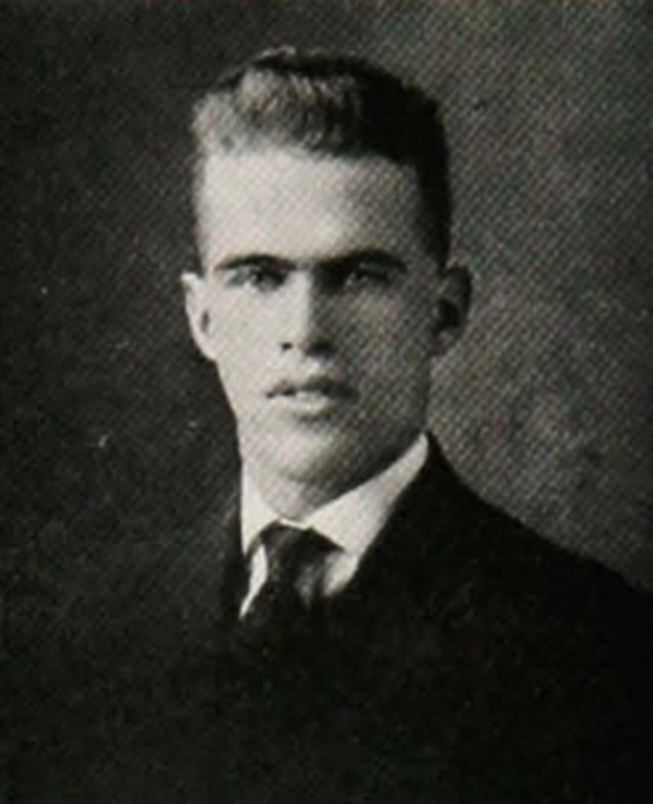

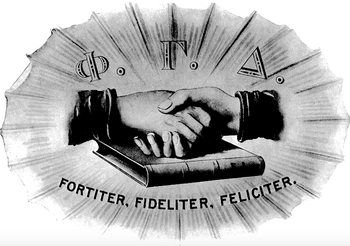

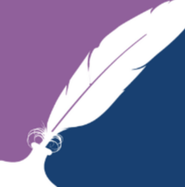
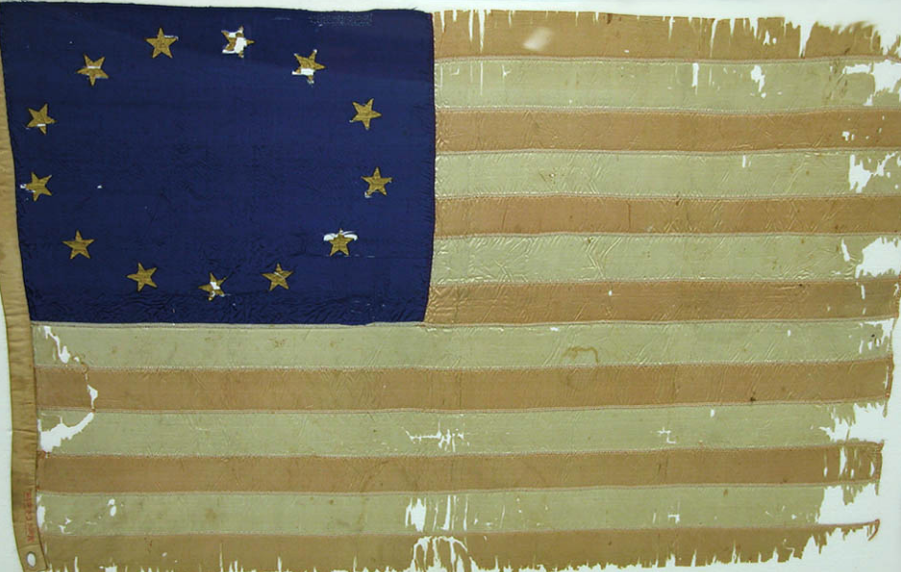
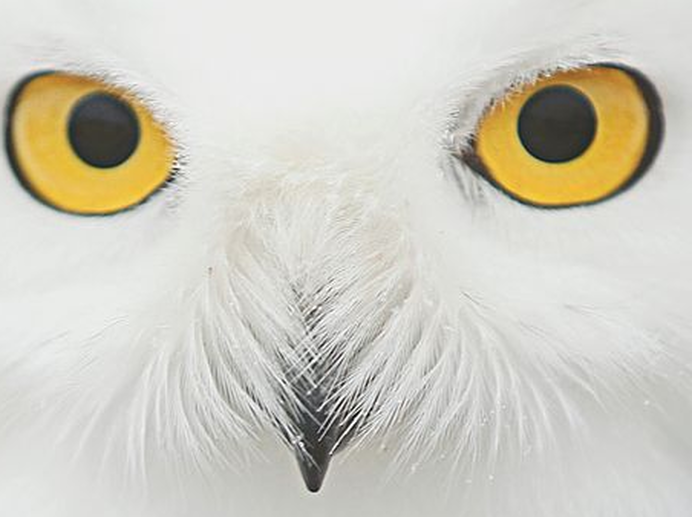
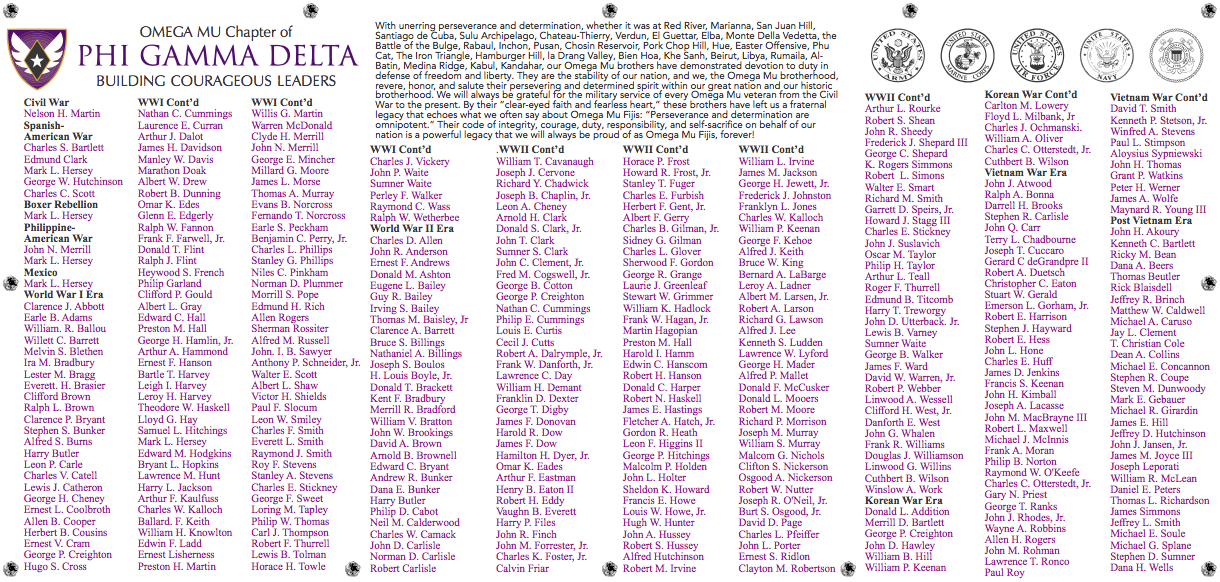
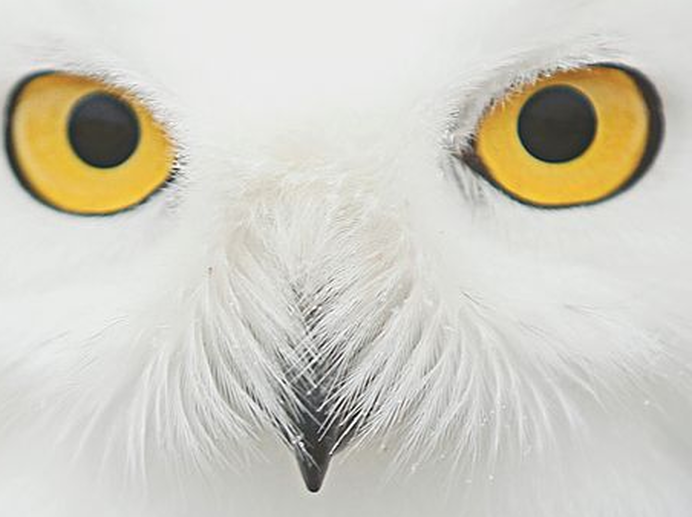
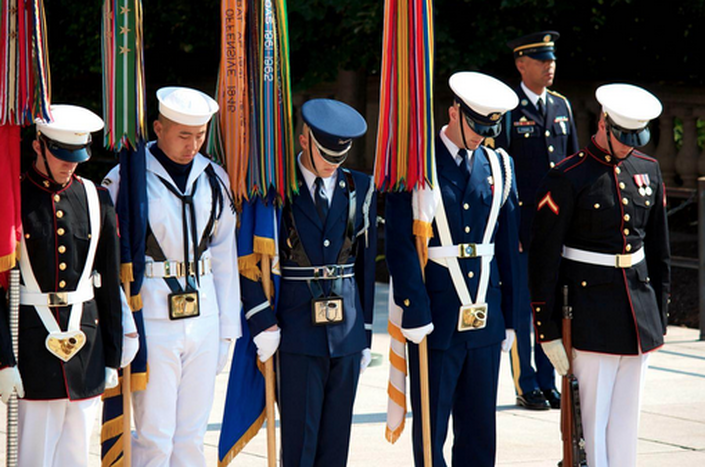
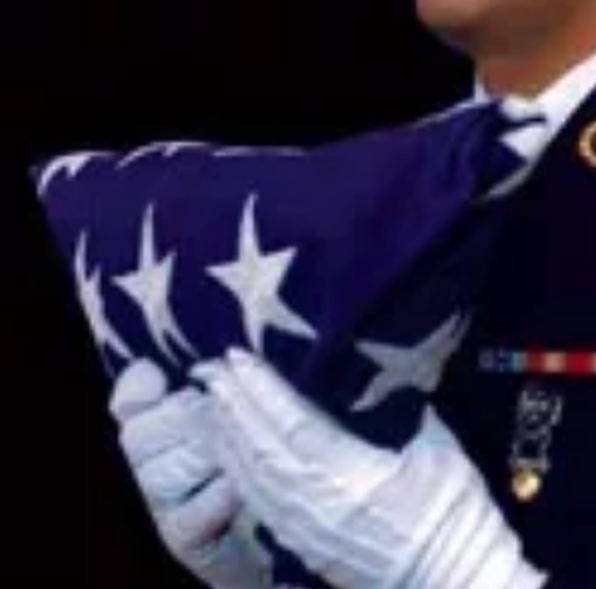
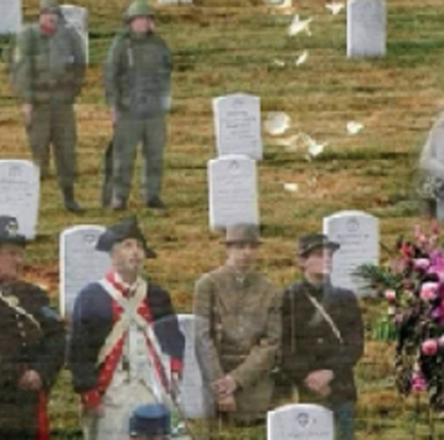
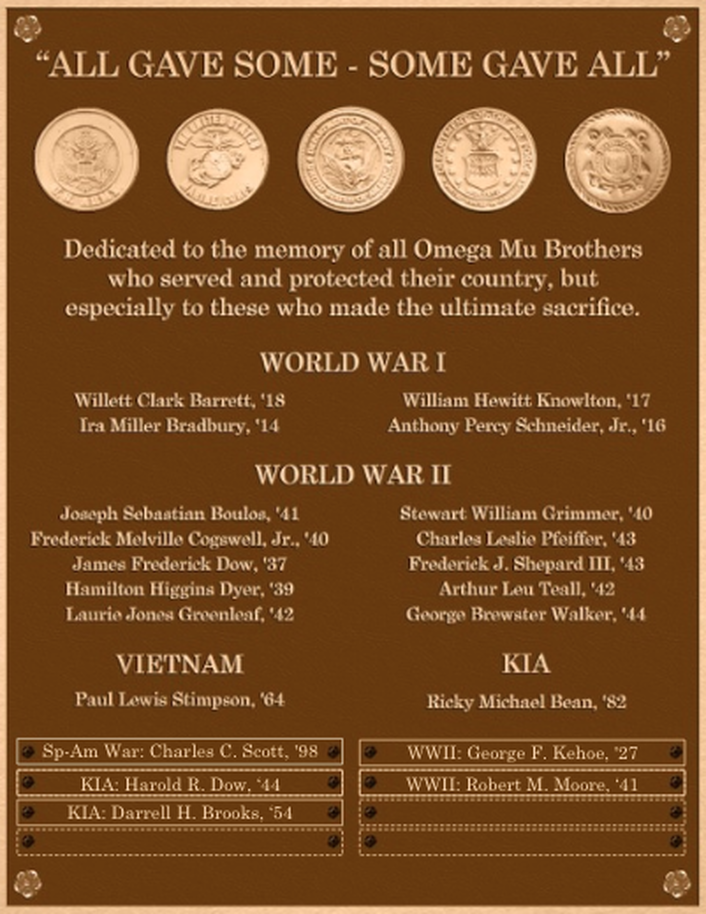
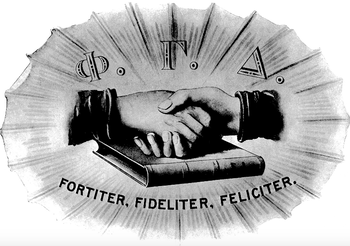

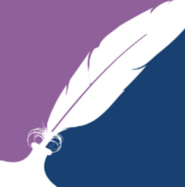

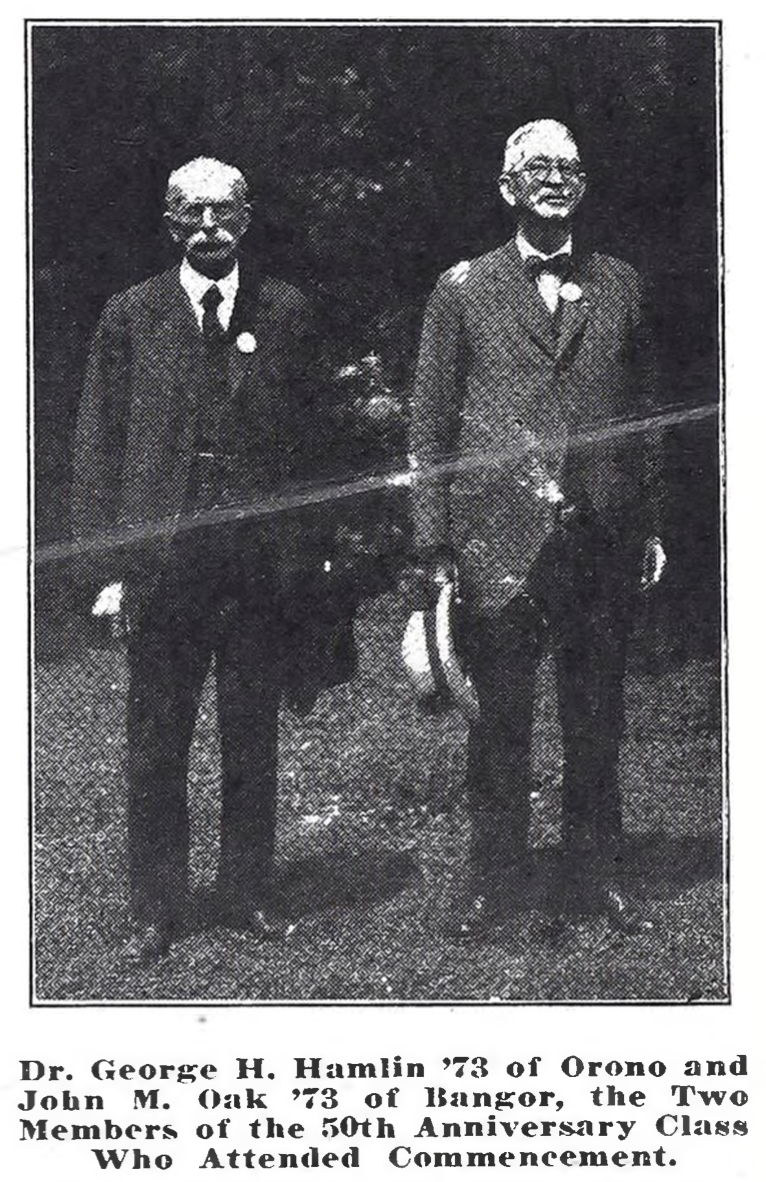
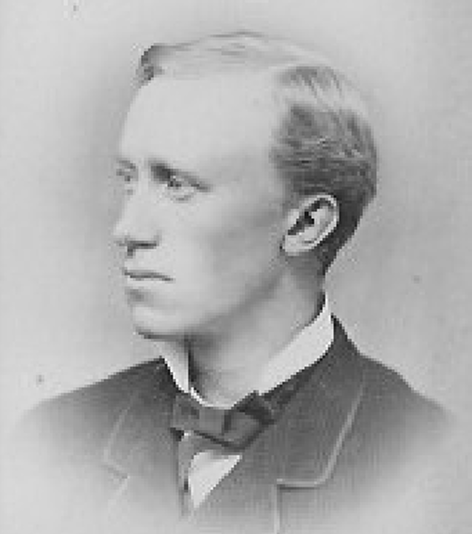

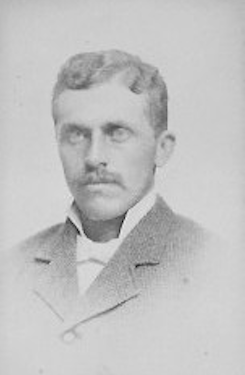
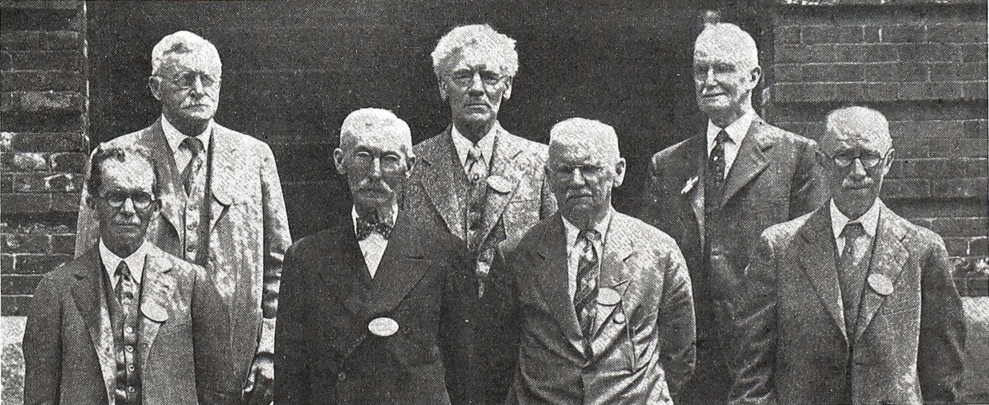
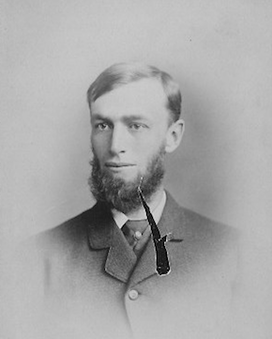


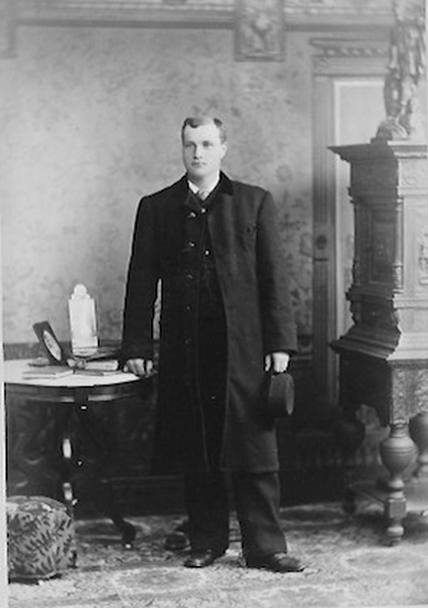

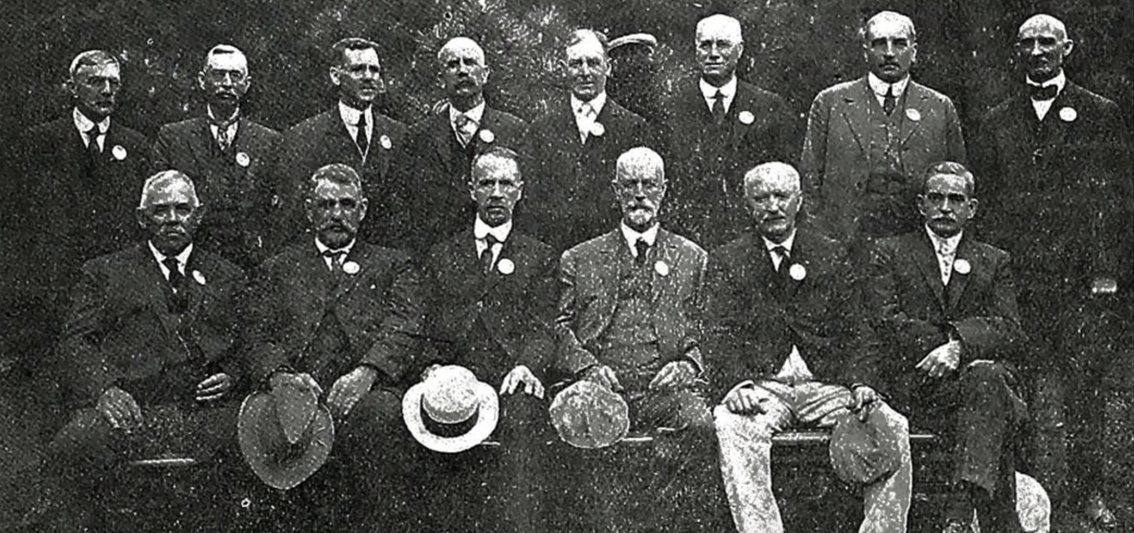
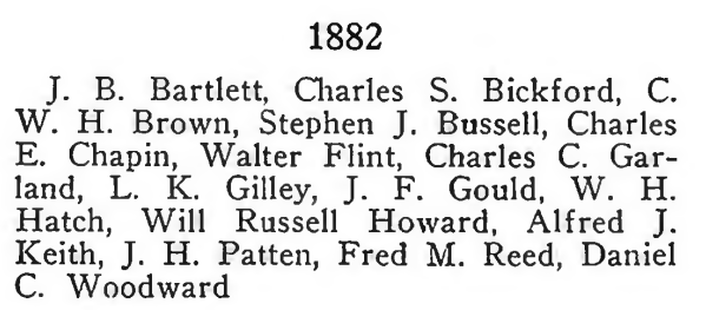
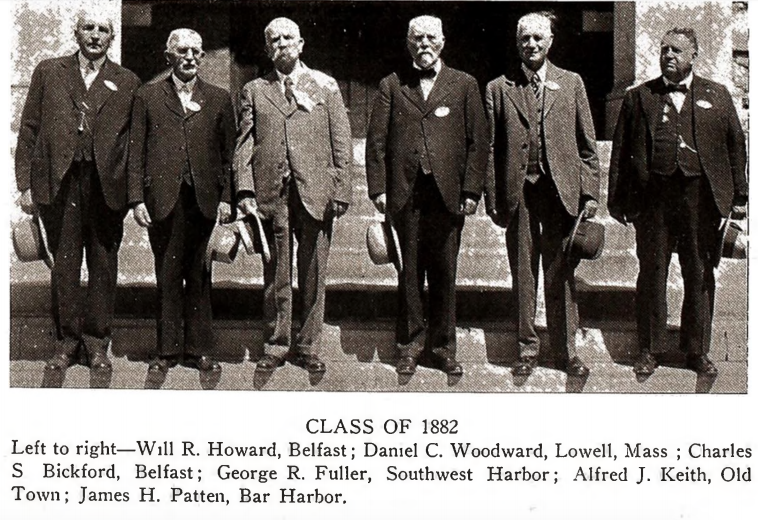

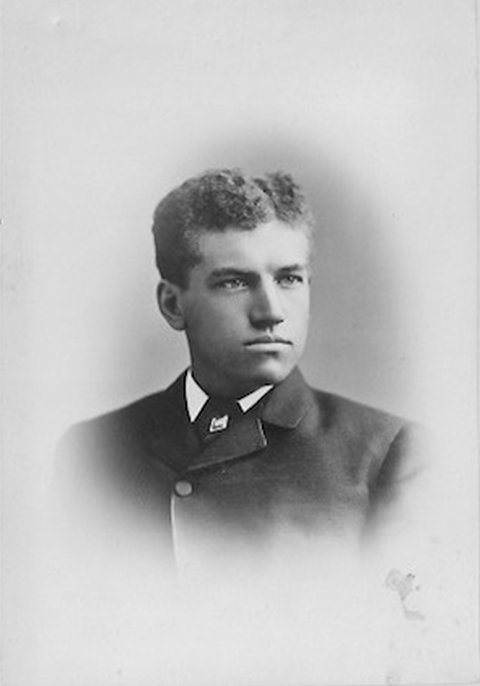
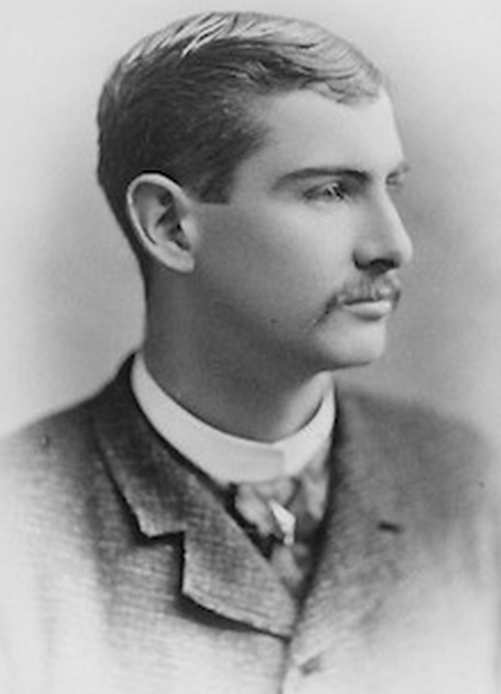
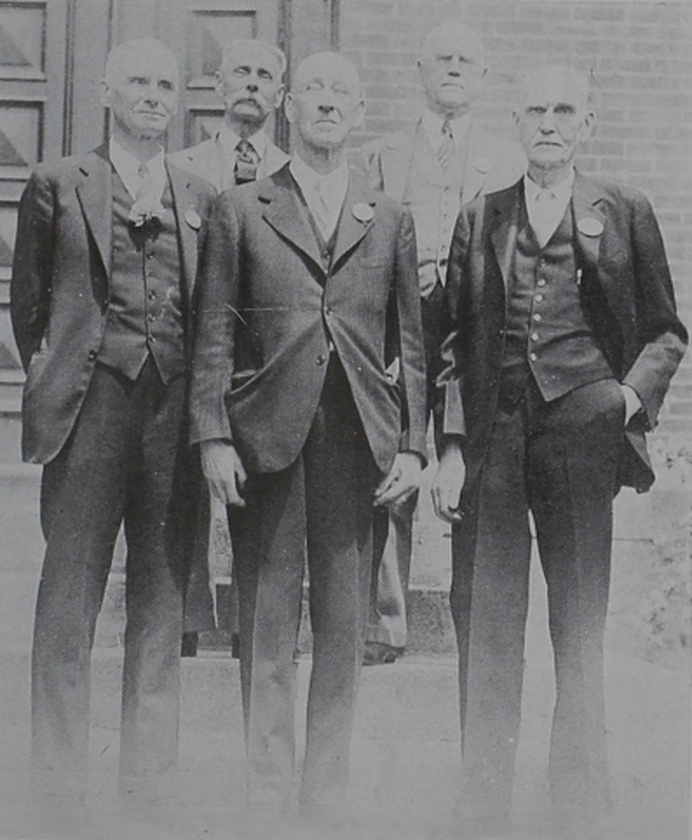

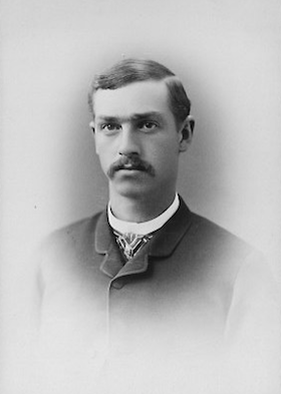
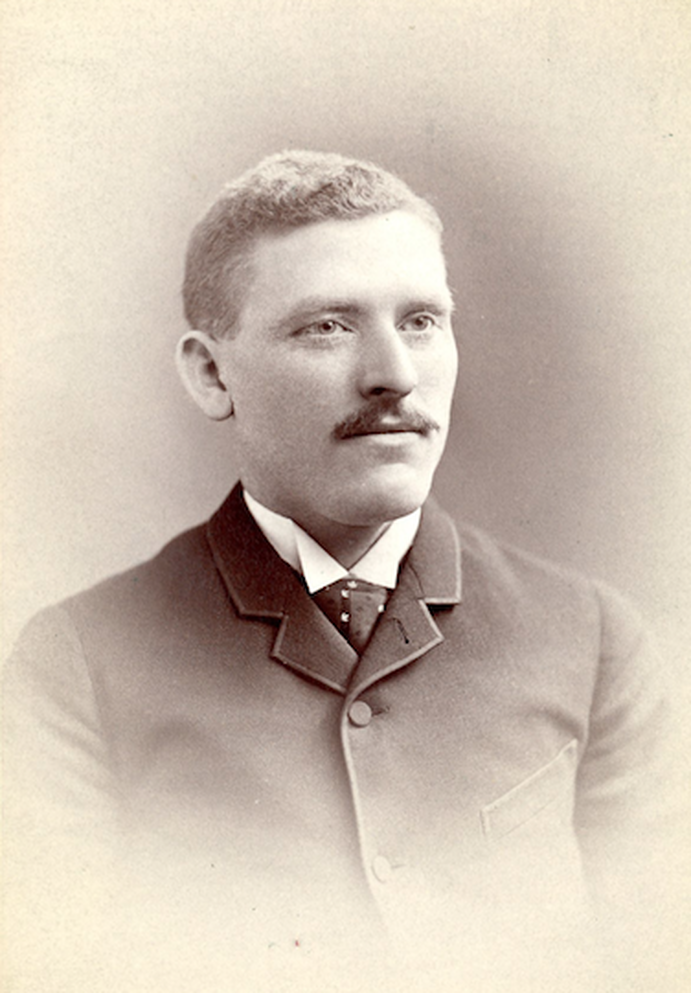
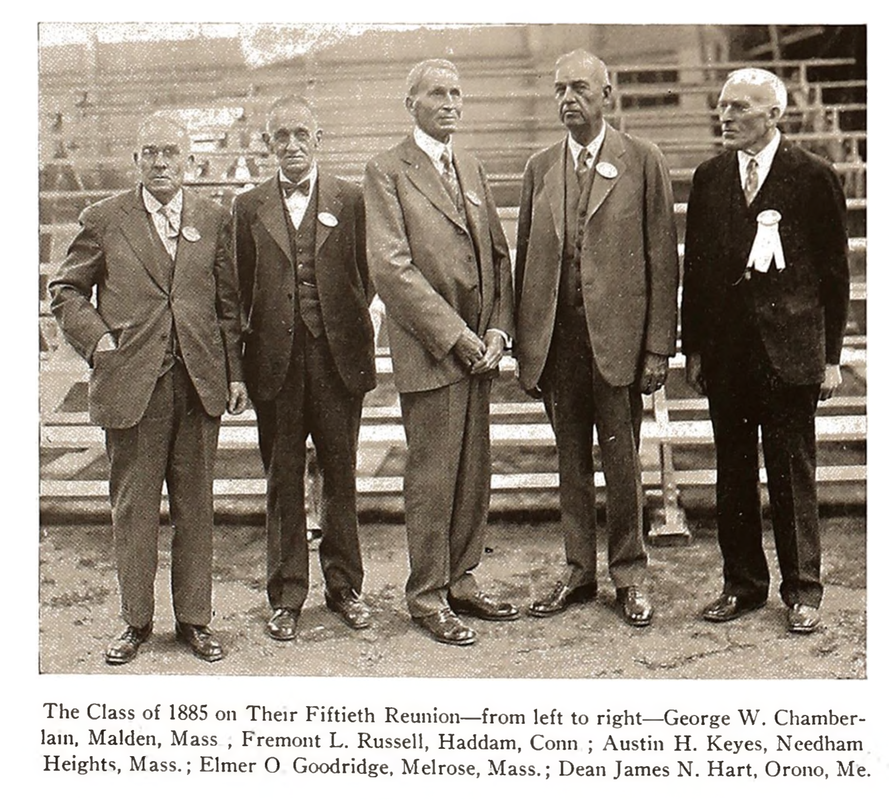
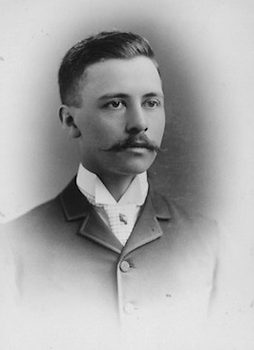
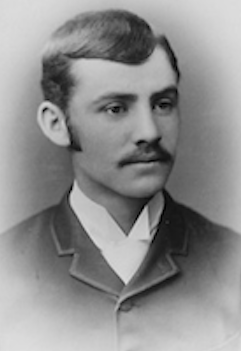
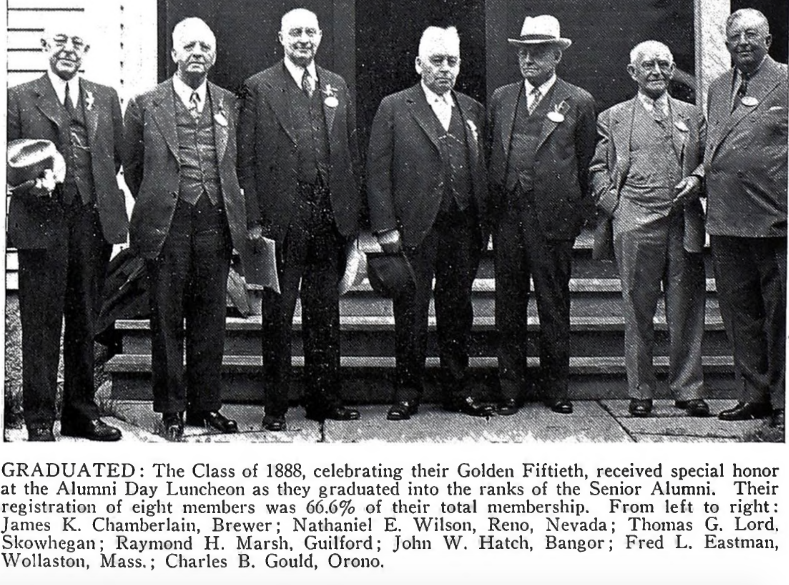





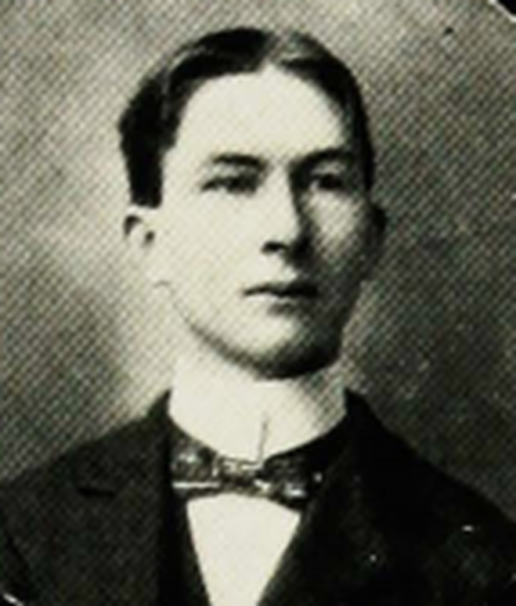
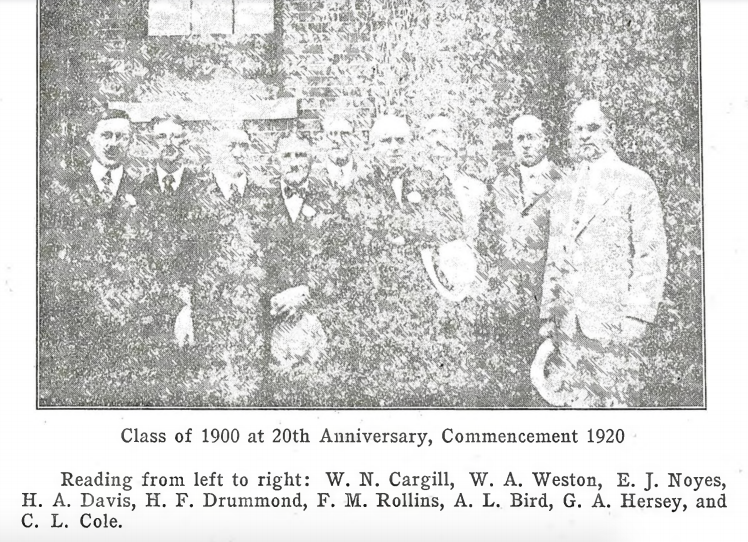

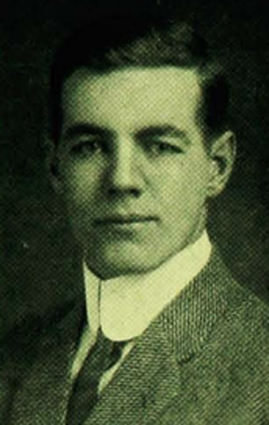

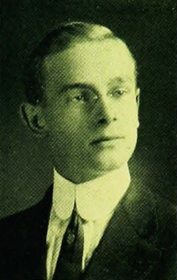
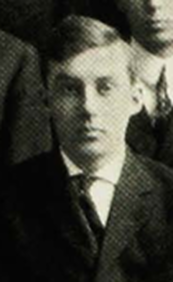


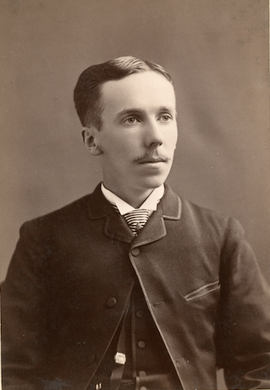

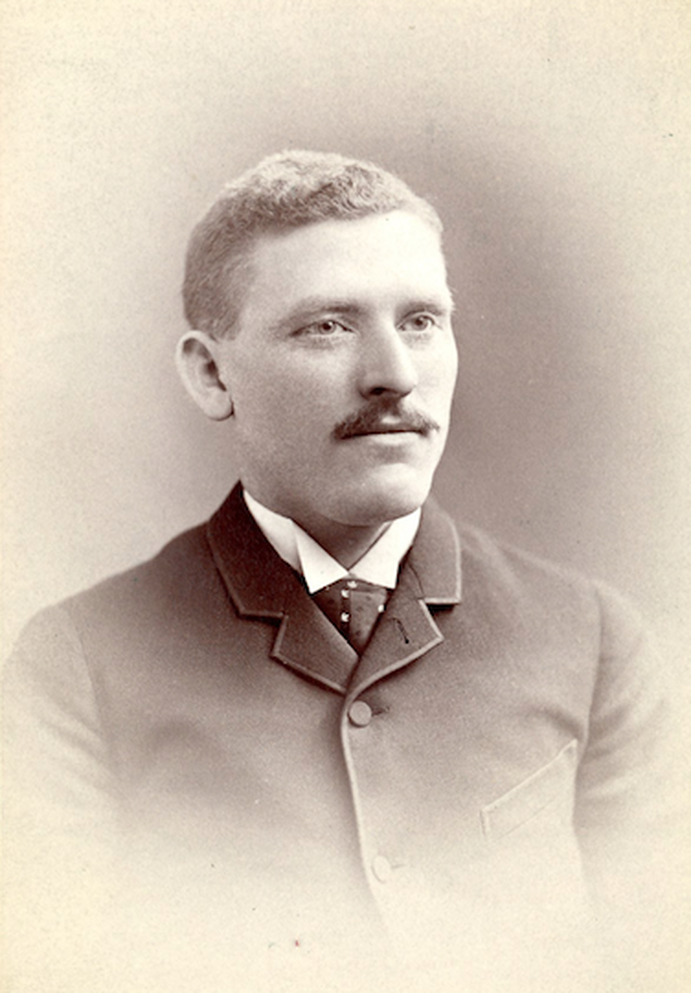


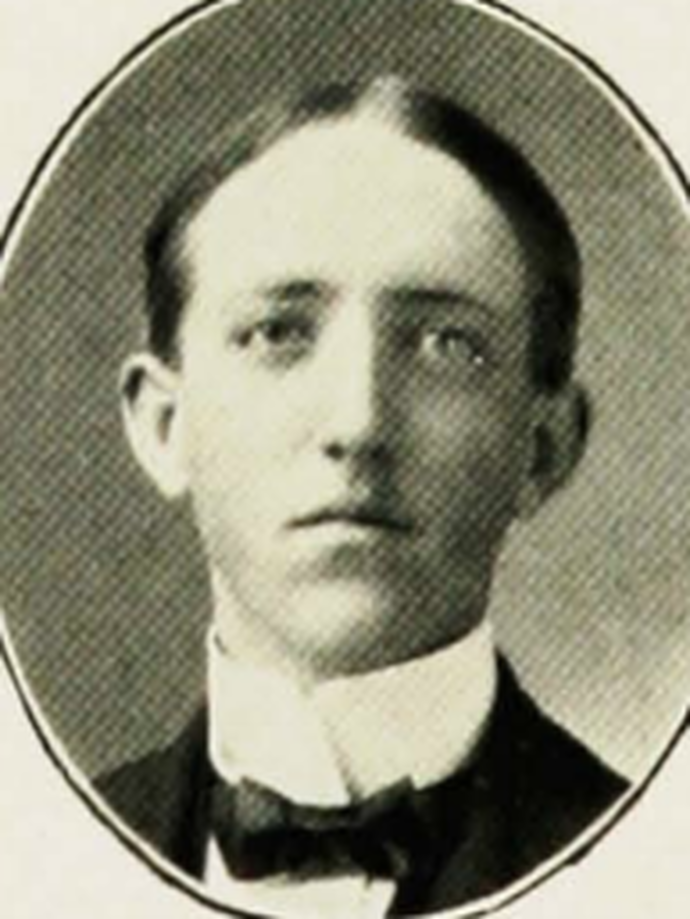
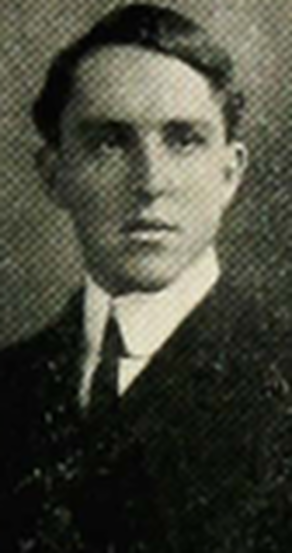
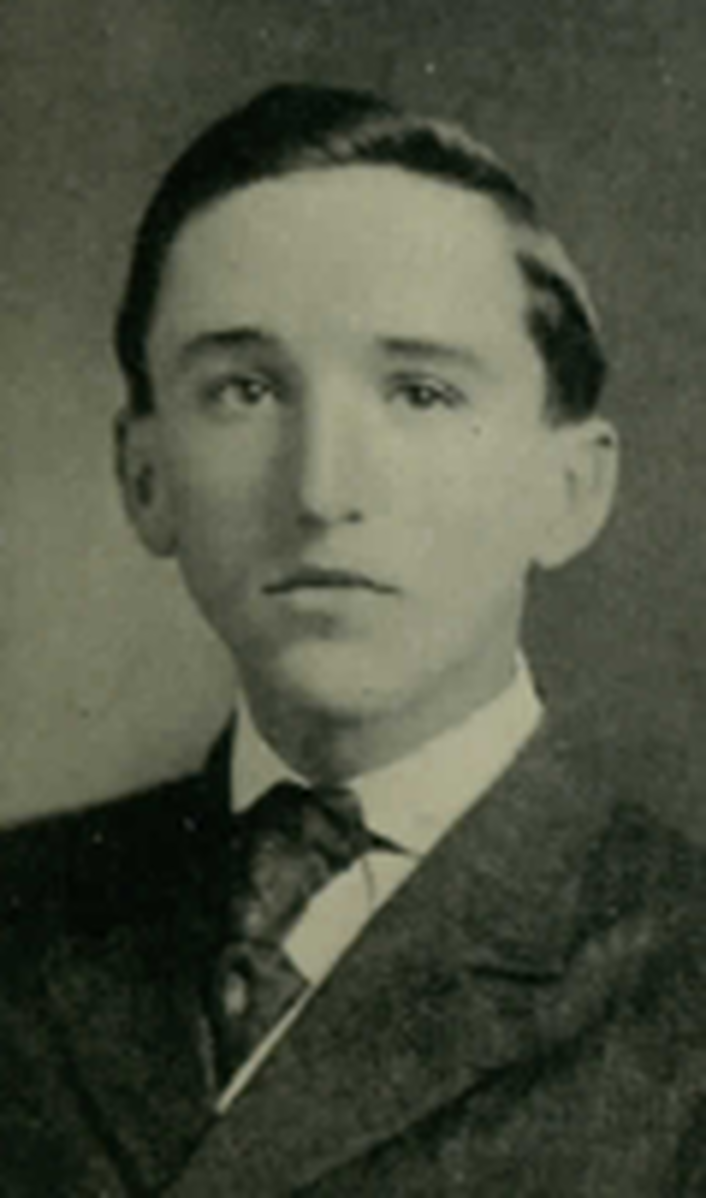
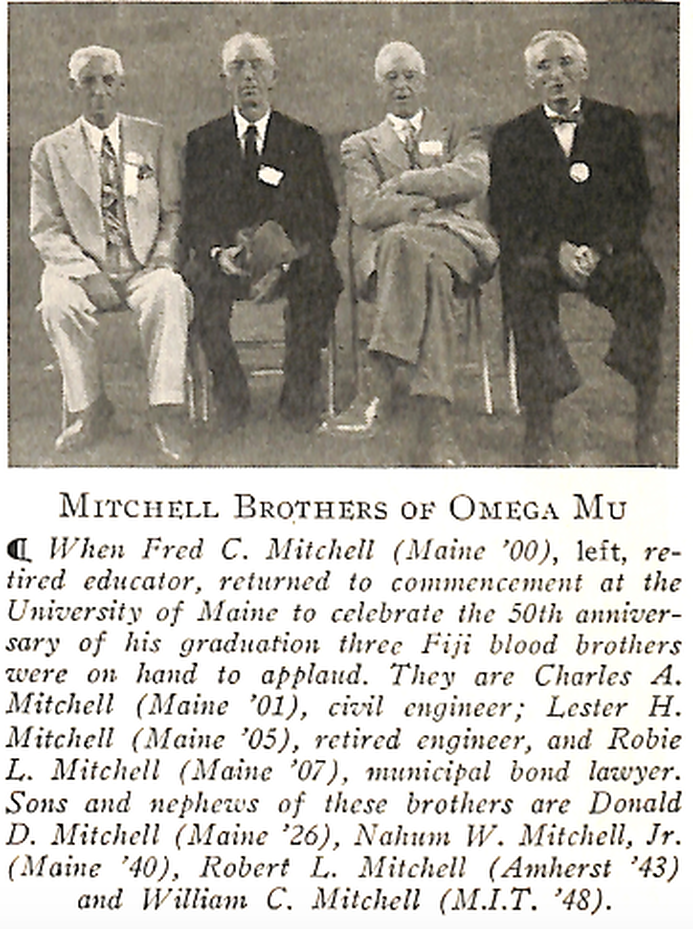
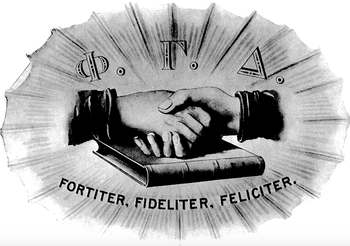

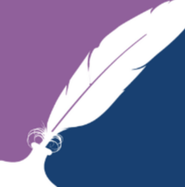
 RSS Feed
RSS Feed